












































































































As Spring approaches, we are all awaiting warmer weather, longer days, and hope: for the end of the pandemic and more reunions with our friends and family. At Rutgers, we approach the season with books that we hope you’ll enjoy as part of these pleasures. We are excited to publish OutWrite, a collection of speeches from the decade-long, foundational conference that helped to establish LGBTQ literary history. In that same vein, Beats in Mexico examines the way Mexico featured so prominently in Beat writers’ lives and also introduces readers to the larger universe of these writers, including pivotal women who are often overlooked in books about the Beat movement. We’re proud to publish a short history of the Paris Commune—the rst volume in a series of books on the Commune—on the heels of its 150th anniversary. The Press has long published foundational books in Jewish studies, and this season is no different: we are incredibly excited to present The Holocaust and the Exile of Yiddish, an important book that shows how the rich history of Yiddish knowledge, while tragically interrupted during the Holocaust, was never extinguished by it. As always, we have intriguing regional offerings including the celebratory New Jersey Fan Club and the launch of Ceres: Rutgers Studies in History with two volumes, Taking Sides in Revolutionary New Jersey and Separate Paths: Lenapes and Colonists in West New Jersey. We are honored to publish vital books from our partners at Bucknell and Delaware as well.
Happy reading,
—Micah Kleit, DirectorNothing Is Impossible by Ted Osius:

• POLITICO Playbook coverage,October 8.
• Newsweek feature, October 8.
• Business Insider reported on the Politico item on October 8 and Yahoo! reported on the Business Insider piece.
• Salon excerpt, October 12.
• Rolling Stone reported on the Politico piece.
The Audacity of a Kiss by Leslie Cohen:

•Cohen was interviewed by Business Insider on June 30.
• The Gay & Lesbian Review published Leslie Cohen’s essay about The Audacity of a Kiss on July 12.
• The San Francisco Bay Times spotlighted the book on October 7.
•Rosie O’Donnell posted a photo of The Audacity of a Kiss on Instagram on November 6.
•Leslie Cohen was feature on the cover of Queer Forty magazine in September.
The Movie Musical by Desiree J.Garcia:

•The Chicago Tribune reviewed The Movie Musical on June 4:
“Dartmouth College professor and author Desirée J. Garcia’s tightly packed and deeply researched study examines the genre’s illumination of more than just our collective daydreams and escape impulses.”
Welcome to Wherever We Are by Deborah J. Cohan:
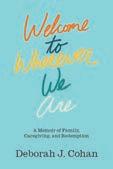
• Ms. Magazine featured an excerpt, July 7.
•Cohan’s “Tiny Love Story” appeared in the New York Times Modern Love section on October 12.
The Red Thread by Jacob Zumoff:
•The July 2021 issue of New Jersey Monthly Magazine featured The Red Thread
• Jacobin Magazine reviewed The Red Thread by Jacob A. Zumoff in the July 2021 issue:
“Jacob A. Zumoff pulls the story of one of New Jersey’s longest work stoppages from the historical shadows.”
“Red Thread is a sobering study on the reality of police brutality and repression against workers (the history of the nineteenth and early twentieth century tends to show that if you’re wondering why workers in the United States put up with such terrible conditions, violence and terrorism from the ruling class can never be ruled out)....Zumoff argues convincingly that Communist organizing was not the cause of the strike’s defeat; rather, Communist activism allowed the strike to go on for as long as it did. He rightly refrains from spinning the defeat as a victory — in fact, he criticizes the Communists for doing this — nor does Zumoff try too hard to explain the defeat. It’s common for strikes to fail.”
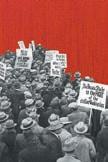
“This compelling account of the Paris Commune makes a complicated event understandable and vivid. Eichner’s rich portraits bring to life the freedom and empowerment the Communards experienced, juxtaposed with the bloody repression of its nal days.”
 —Sarah Fishman, author of From Vichy to the Sexual Revolution: Gender and Family Life in Postwar France
—Sarah Fishman, author of From Vichy to the Sexual Revolution: Gender and Family Life in Postwar France
At dawn on March 18, 1871, Parisian women stepped between cannons and French soldiers, using their bodies to block the army from taking the artillery from their working-class neighborhood. When ordered to re, the troops refused and instead turned and arrested their leaders. Thus began the Paris Commune, France’s revolutionary civil war that rocked the nineteenth century and shaped the twentieth. Considered a golden moment of hope and potential by the left, and a black hour of terrifying power inversions by the right, the Commune occupies a critical position in understanding modern history and politics. A 72-day con ict that ended with the ferocious slaughter of Parisians, the Commune represents for some the nal insurgent burst of the French Revolution’s long wake, for others the rst “successful” socialist uprising, and for yet others an archetype for egalitarian socioeconomic, feminist, and political change. Militants have referenced and incorporated its ideas into insurrections across the globe, throughout the twentieth and into the twenty- rst centuries, keeping alive the revolution’s now-iconic goals and images. Innumerable scholars in countless languages have examined aspects of the 1871 uprising, taking perspectives ranging from glorifying to damning this world-shaking event. The Commune stands as a critical and pivotal moment in nineteenth-century history, as the linchpin between revolutionary pasts and futures, and as the crucible allowing glimpses of alternate possibilities. Upending hierarchies of class, religion, and gender, the Commune emerged as a touchstone for the subsequent century-and-a-half of revolutionary and radical social movements.
CAROLYN J. EICHNER teaches in the Departments of History and Women’s & Gender Studies at the University of Wisconsin, Milwaukee. Her books include Surmounting the Barricades: Women in the Paris Commune and Feminism’s Empire Introducing a new series: Reinventions of the Paris Commune (see Literature and Revolution:British Responses to the Paris Commune of 1871 on page 22)
144 pp 2 b/w, 8 color images 5.5 x 8.5
978-1-9788-2768-4 paper $19.95T
978-1-9788-2769-1 cloth $65.00SU
March 2022
History
Table of Contents
1. Illumination
2. Fluorescence
3. Explosion Acknowledgments
Notes
Bibliography Index
GEET I KA RUDRA
“Here to Stay re ects a great deal of primary source research that the author has conducted along with a compelling narrative that braids aspects of her life story into the historic narrative of America’s whiteness as well as the biographies of A.K. Mozumbar, Bhagat Singh Thind, Kala Bagai, and many other early Indian emigres. This book makes a strong contribution to South Asian American Studies scholarship.”
—Himanee Gupta-Carlson, author of Middletown and Asian AmericaGEETIKA RUDRA
232 pp 17 b/w images 5.5 x 8.5
978-0-8135-8403-4 cloth $27.95T
March 2022
Today, South Asians are a rapidly growing demographic in the United States, comprising nearly 2% of the population. But there was a time in the not-too-distant past when the U.S. was far less hospitable to South Asian immigrants. In fact, until 1952, only white immigrants could become naturalized American citizens. Yet in the rst half of the twentieth century, many states still had thriving communities of South Asians.
In Here to Stay, Geetika Rudra, a second-generation Indian immigrant and American history buff, takes readers on a journey across the country to unearth the little-known histories of earlier generations of South Asian Americans. She visits storied sites such as Oregon’s “Hindoo Alley,” home to many lumber workers at the turn of the century, and Angel Island, California’s immigration hub. She also introduces readers to such inspiring gures as Bhagat Singh Thind, an immigrant who had enlisted in the U.S. army to serve his adopted country in World War I, but who was later denied citizenship and took his case all the way to the U.S. Supreme Court. In turns both serious and joyful, this book vividly reveals how South Asians have always been a vital part of the American tapestry.
GEETIKA RUDRA is an amateur history buff with a deep love of American history. She is the daughter of Indian immigrants from Queens, New York, and she lives in Manhattan with her book collection. Find her on Instagram or Twitter at @GGGeetika.
“This close study of Beat writers in the context of their experiences in Mexico is a revelation many times over. The author has plumbed the depths, discovering whole new dimensions in the US avant-garde, with an emphasis on women Beat writers long overdue. What we have here is a critical classic in the making, a must-read for anyone interested in the saga of the Beats.”
—Paul Buhle, co-editor, with Harvey Pekar, of The Beats: A Graphic History“With The Beats in Mexico, David Stephen Calonne nally lls a critical gap in Beat Generation scholarship—tracing not only the in uences of Mexico on the major Beat writers, but on their predecessors, followers, and contemporaries. We devoured this thoroughly-researched, beautifully written study. Highly recommended!”
—Arthur S. Nusbaum, Third Mind Books“Calonne’s book brings together a mass of description, information, knowledge and quotation to form a wide-ranging compendium of Mexican connections across the Beat eld. It should inspire scholars to examine in more depth a literary history too often chronicled in only the colourful but reductive terms of Beat biography.”
—Oliver Harris, Professor of American Literature at Keele University and President of the European Beat Studies NetworkMexico features prominently in the literature and personal legends of the Beat writers, from its depiction as an extension of the American frontier in Jack Kerouac’s On the Road to its role as a refuge for writers with criminal pasts like William S. Burroughs. Yet the story of Beat literature and Mexico takes us beyond the movement’s superstars to consider the important roles played by lesser-known female Beat writers.
The rst book-length study of why the Beats were so fascinated by Mexico and how they represented its culture in their work, this volume examines such canonical gures as Kerouac, Burroughs, Ginsberg, Lamantia, McClure, and Ferlinghetti. It also devotes individual chapters to women such as Margaret Randall, Bonnie Bremser, and Joanne Kyger, who each made Mexico a central setting of their work and interrogated the misogyny they encountered in both American and Mexican culture.
The Beats in Mexico not only considers individual Beat writers, but also places them within a larger history of countercultural gures, from D.H. Lawrence to Antonin Artaud to Jim Morrison, who mythologized Mexico as the land of the Aztecs and Maya, where shamanism and psychotropic drugs could take you on a trip far beyond the limits of the American imagination.
DAVID STEPHEN CALONNE is the author of many books, including The Spiritual Imagination of the Beats and Diane di Prima: Visionary Poetics and the Hidden Religions. He has also edited ve volumes of prose by Charles Bukowski as well as interviews with Gary Snyder and Allen Ginsberg. Calonne lives in Ann Arbor, Michigan and has taught at the University of Texas at Austin, the University of Michigan, and the University of Chicago. He currently teaches at Eastern Michigan University in Ypsilanti.
266 pp 10 b/w, 10 color images 6.125 x 9.25 978-1-9788-2872-8 cloth $29.95T
April 2022

Literary History
“Calonne takes readers on a much-needed tour through the complex, often surprising relationship between the Beats and Mexico, offering insight after insight into numerous writers and their works—a book the size of the Pyramid of Kukulcán.”




—Steven Belletto, author of The Beats: A Literary History
Table of Contents

Introduction
1 Lawrence Ferlinghetti: The Mexican Night



2 William S. Burroughs: Something Falls Off When You Cross the Border into Mexico




3 Philip Lamantia: A Surrealist in Mexico
4 Margaret Randall: Poet, Feminist, Revolutionary, and El Corno Emplumado
5 Jack Kerouac: The Magic Land at the End of the Road



6 Allen Ginsberg: I Would Rather Go Mad, Gone Down the Dark Road to Mexico


7 Bonnie Bremser: Troia: Mexican Memoirs
8 Michael McClure and Jim Morrison: Break On Through to the Other Side
9 Joanne Kyger: Phenomenological Mexico
Epilogue
Acknowledgments
Notes
Index




PETER J. WOSH AND PATRICIA L. SCHALL
“Drawing on fascinating and impressive archival research, Wosh and Schall demonstrate how a local tragedy, involving three marginal characters, can shine a light on larger historical trends in the United States. Written in an engaging and accessible style, with a depth and breadth of research that will appeal to many readers.”
—Cara Robertson, author of The Trial of Lizzie Borden
History • True Crime
Table of Contents
Chapter One: The Gallows
Chapter Two: Communities
Chapter Three: Murder
Chapter Four: Trial
Chapter Five: Jail
Chapter Six: Aftermath


Margaret Klem and John Meierhofer were Bavarian immigrants who arrived in New Jersey in the 1850s, got married, and started a small farm in West Orange. When John returned from the Civil War, he was a changed man, neglecting his work and beating his wife. Margaret was left to manage the farm and endure the suspicion of neighbors, who gossiped about her alleged affairs. Then one day in 1879, John turned up dead with a bullet in the back of his head. Margaret and her farmhand, Dutch immigrant Frank Lammens, were accused of the crime, and both went to the gallows, making Margaret the last woman to be executed by the state of New Jersey.
Was Margaret the calculating murderess and adulteress portrayed by the press? Or was she a battered wife pushed to the edge? Or was she, as she claimed to the end, innocent? Murder on the Mountain considers all sides of this fascinating and mysterious true crime story. In turn, it examines why this murder trial became front-page news, as it resonated with public discussions about capital punishment, mental health, anti-immigrant sentiment, domestic violence, and women’s independence. This is a gripping and thought-provoking study of a murder that shocked the nation.
PETER J. WOSH directed the graduate education program in archives and public history at New York University from 1994 until his retirement in 2016. He previously served as archivist at both Seton Hall University in South Orange, New Jersey and the American Bible Society in New York. His many books include Covenant House: Journey of a Faith-Based Charity
PATRICIA L. SCHALL (1945-2020) was a professor at Saint Elizabeth University in Morristown, New Jersey from 1992 to 2016, where she held many leadership positions, including head of the education department. Author of Protecting the Right to Teach and Learn, she was also a former president of the New Jersey Council of Teachers of English.
“An expert critic of the ideological construction of transmedia worlds, Dan Hassler-Forest offers a tour de force analysis of virtuoso music and media artist Janelle Monae as a vernacular theorist and intersectional gure. The resulting book makes a compelling case that her interventions into popular culture may help to shape how we collectively imagine our futures and the world according to Janelle Monae is a better one by far.”
—Henry Jenkins, co-editor of Popular Culture and the Civic Imagination: Case Studies of Creative Social Change“Building on a close reading of the transformative potential central to Afrofuturism, Janelle Monáe’s Queer Afrofuturism highlights how Monáe’s mix of speculation and liberation shines a light on acceptance, care, and community central to Afrofuturism’s appeal. Carefully framing intersectional concerns around bodies and power expressed in Monáe’s artistic work allows Hassler-Forest to provide an intriguing examination of an artist who has quickly come to embody the transformative potential of black speculative practice.”
—Julian C. Chambliss, co-editor of Cities Imagined: The African Diaspora in Media and HistorySinger. Dancer. Movie star. Activist. Queer icon. Afrofuturist. Working class heroine. Time traveler. Prophet. Feminist. Android. Dirty Computer.
Janelle Monáe is all these things and more, making her one of the most fascinating artists to emerge in the twenty- rst century. This provocative new study explores how Monáe’s work has connected different media platforms to strengthen and enhance new movements in art, theory, and politics. It considers not only Monáe’s groundbreaking albums The ArchAndroid, The Electric Lady, and Dirty Computer, but also Monáe’s work as an actress in such lms as Hidden Figures and Antebellum, as well as her soundtrack appearances in socially-engaged projects ranging from I May Destroy You to Us. Examining Monáe as a cultural icon whose work is profoundly intersectional, this book maps how she is actively reshaping discourses around race, gender, sexuality, and capitalism. Tracing Monáe’s performances of joy, desire, pain, and hope across a wide range of media forms, it shows how she imagines Afrofuturist, posthumanist, and postcapitalist utopias, while remaining grounded in the realities of being a Black woman in a white-dominated industry. This is an exciting introduction to an audacious innovator whose work offers us fresh ways to talk about identity, desire, and power.
DAN HASSLER-FOREST is an assistant professor of media studies at Utrecht University in the Netherlands. He is the author of Capitalist Superheroes and Science Fiction, Fantasy, and Politics: Transmedia Storytelling Beyond Capitalism
Global Media and Race
May 2022
Music • Popular Culture

African American Studies • LGBTQ+ Studies

Table of Contents

Introduction
Vector 1: AFROFUTURISM
Vector 2: BLACK FEMINISM
Vector 3: : INTERSECTIONALITY
Vector 4: : POSTHUMANISM
Vector 5: POSTCAPITALISM
Acknowledgments
Notes
Bibliography
Index
Quick Takes: Movies and Popular Culture offers succinct overviews and high-quality writing on cutting-edge themes and issues in lm and media studies. Authors offer both fresh perspectives on new areas of inquiry and original takes on established topics.
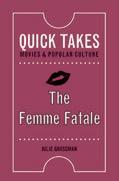



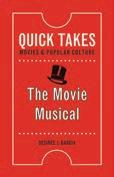

ALTERNATIVE REALITIES
Carl Plantinga paper 978-0-8135-9981-6 $17.95T
APOCALYPSE CINEMA
Stephen Prince paper 978-1-9788-1984-9 $17.95T
BLACK WOMEN DIRECTORS
Christina N. Baker paper 978-1-9788-1333-5 $17.95T
COMIC BOOK MOVIES
Blair Davis paper 978-0-8135-8877-3 $17.95T
DIGITAL CINEMA
Stephen Prince paper 978-0-8135-9626-6 $17.95T
DIGITAL MUSIC VIDEOS
Steven Shaviro paper 978-0-8135-7953-5 $17.95T

DISNEY CULTURE
John Wills paper 978-0-8135-8332-7 $17.95T
THE FEMME FATALE
Julie Grossman paper 978-0-8135-9824-6 $17.95T
FILM REMAKES AND FRANCHISES
Daniel Herbert paper 978-0-8135-7941-2 $17.95T
HAUNTED HOMES
Dahlia Schweitzer paper 978-1-9788-0773-0 $17.95T
L.A. PRIVATE EYES
Dhalia Schweitzer paper 978-0-8135-9636-5 $17.95T
THE MODERN BRITISH HORROR FILM
Steven Gerrard paper 978-0-8135-7944-3 $17.95T
MONSTER CINEMA
Barry Keith Grant paper 978-0-8135-8880-3 $17.95T
THE MOVIE MUSICAL
Desirée J. Garcia paper 978-1-9788-0378-7 $17.95T
Also available in HC editions $65SU
(800) 621-2736
NEW AFRICAN CINEMA
Monster Cinema
The Modern British Horror Film
Valérie K. Orlando paper 978-0-8135-7956-6 $17.95T
ROCK ‘N’ ROLL MOVIES
David Sterritt paper 978-0-8135-8322-8 $17.95T
SPORTS MOVIES
Lester D. Friedman paper 978-0-8135-9986-1 $17.95T
STAR WARS MULTIVERSE
Carmelo Esterrich paper 978-1-9788-1525-4 $17.95T
TRANSGENDER CINEMA

Rebecca Bell-Metereau paper 978-0-8135-9733-1 $17.95T
WAR GAMES
Jonna Eagle paper 978-0-8135-9891-8 $17.95T
ZOMBIE CINEMA
Ian Olney paper 978-0-8135-7947-4 $17.95T
“Dahlia Schweitzer’s book Haunted Homes is a fascinating exploration of our culture’s nearly insatiable desire for lms that explore this genre. It is as hard to put down as it is to avert your eyes from the screen, even as you know you’re going to cower in fear.”
— Michael Grais, cowriter of Poltergeist
Haunted Homes is a book for anyone who has ever awoken in the depths of the night, convinced that they heard someone—or something—lurking beyond their bedroom door. rough engaging analyses of American Horror Story (2011–) and Get Out (2017), amongst many others, Schweitzer proves that home ownership really is ‘a literal nightmare.’”
—Alison Peirse, editor of Women Make Horror
“In showcasing the incredible range of lms made by Black women directors from the silent era to the present day, Christina N. Baker masterfully reveals the rich diversity of their work, their astounding creativity, and their impressive resilience in the face of an oftenhostile industry.”
—Allyson Nadia Field, co-editor of L.A. Rebellion: Creating a New Black Cinema
Looking at everything from classic movies like James Whale’s e Old Dark House to contemporary works like Hereditary, e Conjuring, and the Net ix series e Haunting of Hill House Dahlia Schweitzer explores why haunted homes have become a prime stage for dramatizing anxieties about family, gender, race, and economic collapse.
DAHLIA SCHWEITZER is an associate professor of lm and media at the Fashion Institute of Technology in New York City. Her many books include L.A. Private Eyes and Going Viral: Zombies, Viruses, and the End of the World (both Rutgers University Press).
A volume in the Quick Takes: Movies and Popular Culture series, edited by Gwendolyn Audrey Foster and Wheeler Winston Dixon.
“Christina N. Baker offers an engaging study on the vibrant and, yet, overlooked contributions of Black women directors. With astute and accessible prose, Baker deftly reveals a rich cinema history that highlights forgotten, groundbreaking, independent, and mainstream Black women lmmakers. This compact and resourceful text will inform and inspire.”
—Samantha N. Sheppard, author of Sporting Blackness: Race, Embodiment, and Critical Muscle Memory on Screen
“This eloquently written book is an essential read for those who want to learn about Black women behind the camera. Baker skillfully weaves Black feminist theory with the ideals and goals of Black women directors from the beginnings of cinema to contemporary times. Her careful consideration of how pioneer Kathleen Collins in uenced the women of the LA Rebellion and Ava DuVernay is thoughtful and illuminating.”
www.rutgersuniversitypress.org
—Zeinabu irene Davis, Professor and Independent Filmmaker, University of California, San Diego
Black women have long recognized the power of lm for storytelling. For far too long, however, the cultural and historical narratives about lm have not accounted for the contributions of Black women directors. This book remedies this omission by highlighting the trajectory of the culturally signi cant work of Black women directors in the U.S., from the under-examined pioneers of the silent era, to the documentarians who sought to highlight the voices and struggles of Black women, and the contemporary Black women directors in Hollywood. Applying a Black feminist perspective, this book examines the ways that Black women lmmakers have made a way for themselves and their work by resisting the dominant cultural expectations for Black women and for the medium of lm, as a whole.
CHRISTINA N. BAKER is an associate professor in the Department of History & Critical Race and Ethnic Studies at the University of California, Merced. She is the author of Contemporary Black Women Filmmakers and the Art of Resistance (2018) and the editor of Kasi Lemmons: Interviews (2020).
Quick Takes: Movies and Popular Culture
96 pp 4.5 x 7
978-1-9788-1333-5 paper $17.95T
978-1-9788-1334-2 cloth $65.00SU
March 2022
Film and Media Studies
African American Studies • Women’s Studies
Table of Contents
Introduction
1. Recognizing the Pioneers
2. Women of the L.A. Rebellion
3. Moving into the Mainstream
4. More than Mainstream
Acknowledgments
Further Reading
Selected Filmography
Works Cited
Index
308 pp 12 b/w illustrations 5 x 8
978-1-9788-2803-2 paper $26.95T
978-1-9788-2804-9 cloth $65.00SU
March 2022
LGBTQ+ Studies • Literary History
Table of Contents
Introduction
Judy Grahn: Your First Audience Is Your People
Allen Ginsberg: American Glasnost and Reconstruction
Sarah Schulman: AIDS and the Responsibility of the Writer
Essex Hemphill: Does Your Mama Know About Me?
Susan Grif n: The Effects of Ecological Disaster
Pat Cali a: More Fuel to Run On
John Preston: AIDS Writing
Lesbians and Gays of African Descent Take Issue
Mariana Romo-Carmona: The Color of My Narrative
Dorothy Allison: Survival is the Least of My Desires
Janice Gould: Speaking a World Into Existence
Melvin Dixon: I’ll Be Somewhere Listening for My Name
Allan Gurganus: What Fiction Means
Chrystos: The Gift of Open Sky to Carry You Safely on Your Journey as Writers
John Preston: An Exceptional Child
Samuel R. Delany: An Excerpt from “Aversion/Perversion/ Diversion”
Jewelle Gomez: Less Than a Mile from Here
Kate Rushin: The Bridge Poem and A Paci st Becomes Militant and Declares War
Linda Villarosa: We Have to Fight for Our Political Lives
Tony Kushner: On Pretentiousness
Luis Alfaro: Heroes and Saints from Downtown
Edmund White: Remembrances of a Gay Old Time
Minnie Bruce Pratt: Imagination and the Mockingbird
Cheryl Clarke: A House of Difference: Audre Lorde’s Legacy to Lesbian and Gay Writers
Nancy K. Bereano: Keeping Our Queer Souls
Craig Lucas: Making a Fresh Start
Peggy Shaw: from “A Menopausal Gentleman”
Voices from OutWrite
Acknowledgements
Index
ED I TED BY JUL I E R. ENSZER AND ELENA GROSS
“The incredible importance of queer culture to American culture is usually ignored by heterosexuals and often underestimated by LGBTQ people. OutWrite: The Speeches that Shaped LGBTQ Literary Culture edited by Julie R. Enszer and Elena Gross is a magni cent testimony—and until now undocumented archive—of the expanse and the depth of LGBTQ literary and political culture that was the legacy of decades of struggle. Every piece here brilliantly embodies the insights, intellectual bravery, political acumen and sheer courage that went into building a ercely independent literary and political culture that rede ned American culture and still illuminates how we live today. This is an invaluable contribution to LGBTQ literature, Queer Studies, and the everyday reader of queer literature.”
—Michael Bronski, Professor of the Practice in Activism and Media Studies of Women, Gender and Sexuality, Harvard UniversityRunning from 1990 to 1999, the annual OutWrite conference played a pivotal role in shaping LGBTQ literary culture in the United States and its emerging canon. OutWrite provided a space where literary lions who had made their reputations before the gay liberation movement—like Edward Albee, John Rechy, and Samuel R. Delany—could mingle, network, and irt with a new generation of emerging queer writers like Tony Kushner, Alison Bechdel, and Sarah Schulman.
This collection gives readers a taste of this fabulous moment in LGBTQ literary history with twenty-seven of the most memorable speeches from the OutWrite conference, including both keynote addresses and panel presentations. These talks are drawn from a diverse array of contributors, including Allen Ginsberg, Judy Grahn, Essex Hemphill, Patrick Cali a, Dorothy Allison, Allan Gurganus, Chrystos, John Preston, Linda Villarosa, Edmund White, and many more.
OutWrite offers readers a front-row seat to the passionate debates, nascent identity politics, and provocative ideas that helped animate queer intellectual and literary culture in the 1990s. Covering everything from racial representation to sexual politics, the still-relevant topics in these talks are sure to strike a chord with today’s readers.

JULIE R. ENSZER (she/her) is the author of four poetry collections, including Avowed, and the editor of The Complete Works of Pat Parker and Sister Love: The Letters of Audre Lorde and Pat Parker 1974-1989. Enszer edits and publishes Sinister Wisdom, a multicultural lesbian literary and art journal. She lives in central Florida.
ELENA GROSS (she/they) is an independent writer, curator, and culture critic living in Oakland, California. Her research specializes in conceptual and material abstractions of the body and representations of identity in ne art, photography, and popular media.
“OutWrite: The Speeches that Shaped LGBTQ Literary Culture is an incredible collection that taps into the heart of the queer literary community in the 1990s—the struggles, the successes, the visions, and the revisions. Reading it, I was struck by our loss of an entire parallel culture of LGBTQ businesses, conferences, and infrastructure that existed before the wide spread of the internet—but I was also struck by the continuity of hope, the clarity with which these authors fought for a freer future, against incredible odds. OutWrite is a history that feels searingly present.”
—Hugh Ryan, author of When Brooklyn Was Queer
“The Outwrite conferences of the 1990s marked a critical turning point in the history of LGBTQ literary life and culture. This collection restores to historical memory the anger, the militancy, and the vibrant cultural voices that confronted directly the pain of the AIDS epidemic as well as the racial and gender divisions within the community. The editors have given us a wonderfully moving and inspiring gift by bringing into print these powerfully insightful speeches from the past.”
—John D’Emilio, author of Queer Legacies: Stories from Chicago’s LGBTQ Archives
“What a fabulous and fascinating collection of speeches from leading gures in queer arts and letters in the 1990s! For everyone who wishes that they had attended the OutWrite conferences, for those who will enjoy re-experiencing them, and for all who are interested in cultural activism, this valuable anthology will inspire with words, wit, and wisdom.”
—Marc Stein, author of The Stonewall Riots: A Documentary History and Queer Public History: Essays on Scholarly Activism
“The vital, urgent need to tell our stories, to share, to write within and for a community is an inspiring part of any gathering of writers and publishers, but it’s especially evident in the speeches collected in OutWrite: The Speeches that Shaped LGBTQ Literary Culture. This anthology documents the pivotal role the OutWrite conferences played in shaping and inspiring a generation of LGBTQ writers. The diversity of speakers gathered here, and the explicit links they make between silenced and marginalized sexual communities and other oppressed communities amidst the devastation wrought by the AIDS epidemic and the ‘90s culture wars is especially valuable. This collection honors the memory of our forebearers—many of whom red my own passion for critical queer writing—and is sure to bolster today’s artists and activists working against a global pandemic, climate crises, and the continued ascendency of white supremacy and conservative politics.”
—Dwight A. McBride, President & University Professor at The New School
“Oh please, please powers-that-be, have the smarts and curiosity to bring OutWrite back into our lives. This inspiring collection reveals the dialogic community in negotiation/inspiration from all of its corners: where the most rewarded meet the most marginalized, where the grassroots meets the corporate, the dying met the future, and they all sit on the same panels, eat and drink together, make friends and lovers, business deals and friendships, and share aesthetics, politics, argue and thereby in uence the creation of the literature.”
—Sarah Schulman, author of Let the Record Show: A Political History of ACT UP New York, 1987-1993
April 2022
Table of Contents
Introduction
Chapter 1 “A Bible for the New Age”: Berlin, 1930–1933
Chapter 2 “Man Plans, and Hitler Laughs”: Paris, 1933–1940
Chapter 3 “Spinning the Historical Threads”: New York, 1940–1966
Conclusion

In the early 1930s in Berlin, Germany, a group of leading Eastern European Jewish intellectuals embarked upon a project to transform the lives of millions of Yiddish-speaking Jews around the world. Their goal was to publish a popular and comprehensive Yiddish language encyclopedia of general knowledge that would serve as a bridge to the modern world and as a guide to help its readers navigate their way within it. However, soon after the Algemeyne Entsiklopedye (General Encyclopedia) was announced, Hitler’s rise to power forced its editors to ee to Paris. The scope and mission of the project repeatedly changed before its nal volumes were published in New York City in 1966.
The Holocaust & the Exile of Yiddish untangles the complicated saga of the Algemeyne Entsiklopedye and its editors, who continued to publish volumes and revise the encyclopedia’s mission while their primary audience of Eastern European Jews were facing persecution and genocide under Nazi rule, and then were reestablishing themselves in the rst decades after World War II. Historian Barry Trachtenberg reveals how, over the course of the middle decades of the twentieth century, the project sparked tremendous controversy in Jewish cultural and political circles, which debated what the purpose of a Yiddish encyclopedia should be, as well as what knowledge and perspectives it should contain. Nevertheless, this is not only a story about destruction and trauma, but also one of tenacity and continuity, as the encyclopedia’s compilers strove to preserve the heritage of Yiddish culture, to document its near-total extermination in the Holocaust, and to chart its path into the future.
BARRY TRACHTENBERG is the Michael H. and Deborah K. Rubin Presidential Chair of Jewish History at Wake Forest University in Winston-Salem, North Carolina. His books include The United States and the Nazi Holocaust: Race, Refuge, and Remembrance and The Revolutionary Roots of Modern Yiddish, 1903-1917
Opposite page
Top left: “Erets-yisroel/Palestine,” Algemeyne Entsiklopedye, volume 4
Top right: Advertisement for Algemeyne Entsiklopedye (Sholem Schwartzbard Papers, Courtesy of University of Cape Town) Original volumes of the Algemeyne Entsiklopedye and The Jewish People: Past and Present
Photo by Dan Routh.
This page
Far left: Lesser Ury, Jeremiah (c. 1897, reproduction from Lesser Ury: Seine Stellung in der modernen Malerei, by Adolph Donath, Berlin, 1921).

Near left: Simon and Ida Dubnow, 1930 (courtesy of YIVO).

figure 2.2 L esser Ury, Jeremiah (c. 1897, reproduction from Lesser Ury: Seine Stellung in der modernen Malerei, by Adolph Donath, Berlin, 1921).
e volume begins with a black-a nd-white reproduction of an 1897 painting by the GermanJewish artist Lesser Ury (1861–1931) entitled Jeremiah. e





 EDITED BY KERRI SULLIVAN
EDITED BY KERRI SULLIVAN
New Jersey Fan Club: Artists and Writers Celebrate the Garden State is an eclectic anthology featuring essays, comics, and artwork from a diverse group of established and emerging writers and artists who have something to say about New Jersey. It’s a literary look at New Jersey’s history and signi cance, told through photographs, food writing, interviews, comics, and narrative non ction. It’s an evergreen tribute to the state and an exploration of how the same place can shape people in different ways.
This book is not meant to be a travel guide. You won’t nd any lists of the state’s top breweries or best small towns here. Still, it will inspire you to look at New Jersey in a different way, to look closer at the historical markers in your hometown, to explore things the state has to offer that you may not have noticed before.
New Jersey Fan Club was edited by the founder of Jersey Collective, one of New Jersey’s most popular Instagram accounts that features weekly takeovers by different New Jerseyans. This book functions the same way: it gives dozens of different contributors space to share what New Jersey looks like to them.
KERRI SULLIVAN is the founder of Jersey Collective (@jerseycollective), one of New Jersey’s most popular Instagram accounts. The project has over 30,000 followers and has received press from New Jersey Monthly, the Asbury Park Press, News 12 New Jersey, and CBS Philly. Her writing has appeared in McSweeney’s Internet Tendency, Podcast Review (a channel of the Los Angeles Review of Books), The Billfold, and elsewhere. Kerri is from Monmouth County but currently lives in North Jersey. You can nd her at kerrisullivan.com and on Instagram @ksulphoto.
Table of Contents
List of Figures
1. Introduction by Kerri Sullivan
2. Why Do They Hate Us? by Matthew Taub
3. The Challenge by Frankie Huang
4. I Pledge Allegiance to the Mall by Erinn Salge
5. Suburban South Jersey by Lauren H. Adams

6. Selling Balloons to New Jersey by Brandon Harrison
7. The New Jerseyest Summer of My Life by Mike Dawson
8. The Golden Age of Bicycle Racing by Michael C. Gabriele
9. The Ultimate Bike Tour of Trenton by Wills Kinsley
10. On Immigration and Sandwiches: The Story of One Beloved Restaurant, One Central New Jersey Suburb, and One Child of Immigrants by Pooja Makhijani
11. Keansburg by Kat Schneider
12. Why I Want My Son to Grow Up in Jersey by Chris
13. Garden State Breakfast Pie by Stacey Mei Yan Fong
14. The Only Bar That Matters: An Oral History of the Original Asbury Lanes by Kamelia Ani
15. Why Did the Salamander Cross the Road? by Kate

16. Exit 0 by Brittany Coppla
17. Signs I’ve Been Meaning to Read by Sean Rynkewicz
18. Me and Mary Murray by Scott Neumyer
19. New Jersey Black History Sites by Jacquinn Sinclair

20. State Prerogatives by Carlos Dengler
21. New Jersey Like You’ve Never Seen It: A Collection of Drone Photographs from Around the State
22. A Couple Blocks from the Boardwalk by Miko Beach
23. Heaven In a 600-Square-Foot Apartment by Caren
24. Block by Block by Team 1:1 New Jersey
25. Bagels, Bollywood and Bhajans by Raakhee Mirchandani
26. An Interview with Weird NJ by Brandon Stosuy
27. Near & Dear by Whit Taylor
28. Why I Left by Alicia Cook
29. A History of New Jersey, in Artifacts by Brittney Ingersoll
30. Going Home to New Jersey by Caiti Borruso
31. The LGBTQ Community’s Complicated Relationship with New Jersey Written by Sarah Prager Illustrated by Veronica Casson
32. Fable and Flora: The Home of The Jersey Devil by Elise Sacco
33. Alone on the Turnpike by lucy dean stockton
34. Havana on the Hudson by Alexandra Beguez
35. Finding Religion in New Jersey by Bob Varettoni
36. Finding Home by Jen A. Miller
37. My Favorite Devil by Erica Commisso
38. Somewhere In New Jersey by Dan Misdea
39. “The elds! The orchards! The roads! The lanes!”: Woodbine and the Hirsch Agricultural School by Hallel Yadin
40. Seasons Eatings by Kae Lani Palmisano
41. The Egg-O-Mat by Lisa Rosalie Eisenberg
42. 14 Things You Didn’t Know Were Invented in New Jersey by Linda J. Barth
43. The Sopranos Family Tour by Donnie Martino
44. La miramira by Hassan Ghanny
45. New Jersey Trivia: So you think you know Jersey? by Lorraine Goodman

Further Reading
Acknowledgements
MAX I NE N. LUR IE
“Lurie’s scholarship demonstrates her unmatched grasp of the American Revolution in New Jersey. Taking Sides in Revolutionary New Jersey contributes to a deeper understanding of the revolutionary era.”
—Jonathan Mercantini, author of Who Shall Rule at Home: The Evolution of South Carolina’s Political Culture, 1748-1776
282 pp 34 images 6.125 x 9.25
978-1-9788-0017-5 paper $34.95S
978-1-9788-0018-2 cloth $120.00SU
August 2022
History
Table of Contents
List of Figures
Preface
Acknowledgements
Chapter 1. Overview of the Revolution in New Jersey Chronology
Chapter 2. Patriots Part I: The Adamant and Determined Chapter 3. Patriots Part II: In the Maelstrom
Chapter 4. Straddlers, Trimmers, and Opportunists
Chapter 5. The Society of Friends (Called Quakers): Paci sts and Participants
Chapter 6. Loyalists Part I: The Irreconcilables
Chapter 7. Loyalists Part II: Remained or Returned Chapter 8. Conclusions/Epilogue Notes Index
“With this volume, Lurie solidi es herself as the leading scholar of Revolutionary New Jersey by uncovering the vital role that people played in creating the ‘messy complexity’ of the Revolution in New Jersey. Lurie convincingly shows that Americans did not all agree on a path forward in 1776, joining the Patriots, Crown, or remaining neutral for a myriad of complex reasons. Taking Sides deftly exposes the civil war underway in the young state, including the war’s devastating economic toll on the state and its dramatic effect on individual people’s lives.”
—James Gigantino, author of The Ragged Road to Abolition: Slavery and Freedom in New Jersey
The American Revolution in New Jersey lasted eight long years, during which many were caught in the middle of a vicious civil war. Residents living in an active war zone took stands that varied from “Loyalist” to “Patriot” to neutral and/or “trimmer” (those who changed sides for a variety of reasons). Men and women, Blacks and whites, Native Americans, and those from a wide variety of ethnic backgrounds, with different religious af liations all found themselves in this dif cult middle ground. Lurie analyzes the dif culties faced by prisoners of war, the refugees produced by the con ict, and those Loyalists who remained, left as exiles, or surprisingly later returned. Their stories are interesting, often dramatic, and include examples of those literally caught in the cross re. They illustrate the ways in which this was an extremely dif cult time and place to live. In the end more of the war was fought in New Jersey than elsewhere, resulting in the highest number of casualties, and a great deal of physical damage. The costs were high no matter what side individuals took. Taking Sides in Revolutionary New Jersey uses numerous brief biographies to illustrate the American Revolution’s complexity.

MAXINE N. LURIE is a professor emerita of history at Seton Hall University in South Orange, New Jersey. She is the editor of A New Jersey Anthology and a co-editor of Encyclopedia of New Jersey, Mapping New Jersey: An Evolving Landscape, New Jersey: A History of the Garden State, and Envisioning New Jersey: An Illustrated History of the Garden State, all from Rutgers University Press.
Introducing a new series Ceres: Rutgers Studies in History (see Separate Paths:Lenapes and Colonists in West New Jersey on page 16)
“Raymond Lesniak’s heart and passion for animals and all those without a voice leap off the pages. Aesop said that no act of kindness, no matter how small, is ever wasted. I wonder what he would say about Senator Lesniak’s legacy of kindness, which truly is stretching around the world? Be inspired by these words and by this warrior for the voiceless. I have been.”
—Ashley Prout McAvey, Founder, Vermont For Wildlife“This is the must-read masterpiece of a man who has overcome personal and political challenges to become a national progressive force on the cutting-edge issues of our time. As a senator, a model of compassion, and a ghter without peer, Raymond Lesniak provides riveting lessons to us all on how to conquer the longest odds to change the world. It is an essential guide for everyone in every state who cares about social justice.”
—Steven Goldstein, Founder of Garden State EqualityBorn into a working-class Polish immigrant family in Elizabeth, New Jersey, Raymond Lesniak went on to become a major force in the tough and bruising world of state politics. In this remarkable memoir, he re ects upon his life and career ghting for social justice in the Garden State.
He recounts the many causes he championed in his forty years as a state legislator, from the landmark Environmental Cleanup Responsibility Act to bills concerning animal protections, marriage equality, women’s reproductive rights, and the abolition of the death penalty. He also delves into his experiences on the national stage as a key advisor for Bill Clinton and Al Gore’s presidential campaigns. With refreshing candor, Lesniak describes both his greatest achievements and his moments of failure, including his unsuccessful 2017 gubernatorial run.
Cultivating Justice in the Garden State is both a gripping American success story and a must-read for anyone seeking to understand the inner workings of our political system. It offers an insider’s perspective on the past fty years of New Jersey politics, while presenting a compelling message about what leaders and citizens can do to improve the state’s future.
RAYMOND LESNIAK grew up in Elizabeth, New Jersey. After a stint in the army, he earned his B.A. from Rutgers University and his J.D. from St. John’s University School of Law. He served in New Jersey’s General Assembly from 1978 to 1983 and in its State Senate from 1983 to 2018.

200 pp 5 b/w, 5 color images 6.125 x 9.25 978-1-9788-2497-3 cloth $34.95T
April 2022
Memoir • Politics
Table of Contents
Acknowledgments
Foreword
Prologue
Chapter 1: My Home Town
Chapter 2: Ma Green’s Boy
Chapter 3: Settling Scores
Chapter 4: Elections Matter
Chapter 5: Working Together
Chapter 6: The Natural: The Saga of Jim McGreevey
Chapter 7: Christie, Golan and the Kushner Connection
Chapter 8: Fighting Injustice
Chapter 9: The Fight for LGBTQ Rights
Chapter 10: On the Banks of the Old Raritan: My Love Affair with Rutgers University
Chapter 11: Sports Betting. A Good Bet
Chapter 12: A Wakeup Call and a Near Loss
Chapter 13: Animal Welfare
Chapter 14: Tax Incentives
Chapter 15: Gubernatorial Campaign. Not the Last Hurrah Epilogue
JEAN R. SODERLUND
“Soderlund tells a balanced, multifaceted story that devotes attention to the various peoples that composed a strikingly diverse colony that has been relatively little studied. Separate Paths speaks to some of the most important trends in the eld of early American history. It shows Indigenous sovereignty and how Lenapes’ actions shaped how colonization unfolded.”

—Sean Harvey, author of Native Tongues: Colonialism and Race from Encounter to the Reservation
226 pp 16 b/w images, 2 tables 6 x 9
978-1-9788-1311-3 paper $27.95S
978-1-9788-1312-0 cloth $120.00SU

July 2022
History • Indigenous Studies
Table of Contents
Introduction
1. Defending the Lenape Homeland
2. Seeking Peace in Cohanzick Country
3. Promising Liberty and Property: The West New Jersey Concessions
4. Quaker Colonization without Violence or Remorse
5. Women, Ethnicity, and Freedom in Southern Lenapehoking
6. Forced Separation: Enslaved Blacks in the Quaker Colony




7. A Different Path: De ning Swedish and Finnish Ethnicity
Conclusion
Notes
Acknowledgments
Manuscripts and Suggested Readings



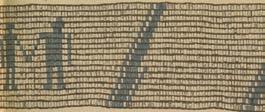


Index
“That the place now popularly called ‘South Jersey’ was once known as ‘West New Jersey’ suggests how little we understand its history. If anyone can make sense of things it is Jean Soderlund, who has spent a lifetime immersed in the sources. By insisting that, well into the eighteenth century the territory remained sovereign Lenape country, by downplaying the heroism of paci st Quaker colonizers, and by keeping Indigenous communities, enslaved people, and elite and ordinary women center stage, her Separate Paths is a major contribution to early American history.”
—Daniel K. Richter, author of Before the Revolution: America’s Ancient Pasts
Separate Paths: Lenapes and Colonists in West New Jersey is the rst cross-cultural study of European colonization in the region south of the Falls of the Delaware River (now Trenton). Lenape men and women welcomed their allies, the Swedes and Finns, to escape more rigid English regimes on the west bank of the Delaware, offering land to establish farms, share resources, and trade. In the 1670s, Quaker men and women challenged this model with strategies to acquire all Lenape territory for their own use and to sell as real estate to new immigrants. Though the Lenapes remained sovereign and “old settlers” retained their Swedish Lutheran religion and ethnic autonomy, the West Jersey proprietors had considerable success in excluding Lenapes from their land. The Friends believed God favored their endeavor with epidemics of smallpox and other European diseases that destroyed Lenape families and communities. Despite mutual commitment to peace by Lenapes, old settlers, and Friends, Quaker colonization had similar results to military conquests of Natives by English in Virginia and New England, and Dutch in the Hudson Valley and northern New Jersey.
JEAN R. SODERLUND is a professor of history emeritus at Lehigh University in Bethlehem, Pennsylvania. Her books include Lenape Country: Delaware Valley Society before William Penn and Quakers and Slavery: A Divided Spirit, which received the New Jersey Historical Commission’s Alfred E. Driscoll Dissertation Prize.
Introducing a new series Ceres: Rutgers Studies in History
(see Taking Sides in Revolutionary New Jersey: Caught in the Crossfire on page 14)

The upheavals of glasnost and perestroika followed by the collapse of the Soviet Union remarkably transformed the art scene in Kyiv, launching Ukrainian contemporary art as a global phenomenon. The previously calm waters of the culturally provincial capital of the Ukrainian Soviet Republic became radically stirred with new and daring art made publicly visible for the rst time since the avant-garde period of the early twentieth century. As artists were freed from the dictates of the fading Communist ideology and the constraints of late socialist realism, an explosion of styles emerged, creating an effect of baroque excess. This exhibition catalogue traces and documents the diverse artistic manifestations of these transitional and exhilarating years in Kyiv while providing some historical artworks for context.
Published in partnership with the Zimmerli Museum
144 pp 85 color illustrations 9.25 x 11 978-1-9788-3075-2 cloth $49.95AT
December 2021
Art
Table of Contents
Foreword Donna Gustafson
Acknowledgments Olena Martynyuk
Introduction Julia Tulovsky
1 Painting Ukrainian Perestroika: A Parade of Excesses Olena Martynyuk

2 The Point of No Return: The Art of Kyiv at a Historical Crossroads Oleksandr Soloviov
3 Back and Down to Empty Landscapes: Notes on Ukraine’s Reverse Modernism Asia Bazdyrieva
4 Prodigal Children of Socialist Realism: New Ukrainian Art and the Soviet Art School Alisa Lozhkina

5 Collecting Eras: A Conversation Igor Abramovych & Olena Martynyuk
Artists’ Statements
Plates
Selected Bibliography
Checklist of the Exhibition
Index
Contributors
Bottom left:
arsen savadov
Untitled (Horse), 1987

Oil on canvas
791⁄4 × 120 × 7⁄8
Top right:
12 Alla Horska (1929–1970)
Untitled (Silence), 1964
Gouache and graphite on paper
203⁄8 × 65⁄8 in.
Top left:
62 Florian Yuriev (b. 1929–2021)
Modus: Cross of Malevich, 1967 Tempera on cardboard

the official art system as in the cases of Yuri Lutskevych outside Soviet art institutions altogether as Valery Lamakh Artists like Lutskevych, Ryzhykh, and Halyna Neledva can term of “permitted” (razreshennoe) art, suggested by Levashov and Ekaterina Degot to describe artists suspended official art institutions and their investment in unofficial short-term shows and deprived of monumental state commissions within institutions, these artists anticipated many features for the generations of the 1980s. Intellectual, expressive, and theatricality, their art was sometimes dreamlike and in mythology and historical styles, including the Ukrainian the boisterous freedom of perestroika art.
Still, the continuity between generations was this time. After Cleopatra’s Sorrow by Savadov and Senchenko scandal, Savadov brought a reproduction of it to Zaretsky, who had endorsed many of his earlier experiments did perhaps for the first time, the rupture between generations happen due to some violent historical event like war or change of scenery and vertigo brought about by the geopolitical Inconceivable yet inevitable,18 the shattering perceived by many as the perfect “end of history” event.
Cleopatra is apocalyptically hedonistic, while the painting cat. 29), made by Savadov shortly afterward, follows suit scattered and forlorn ruins. To diminish the eschatological the artists outlined many objects with a garish red contour, viewers that they are only looking at a picture, an artifice. to present the same cartoonish noir universe, Untitled oversized decorative architectural fragments, there is animated and snorting fumes out of its angry nostrils.

 ED I TED BY V I CK I KARAM I NAS, ADAM GECZY, AND PAMELA CHURCH G I BSON
ED I TED BY V I CK I KARAM I NAS, ADAM GECZY, AND PAMELA CHURCH G I BSON
244 pp 35 color images, 1 table 7 x 10 978-1-9788-2329-7 paper $49.95S 978-1-9788-2330-3 cloth $130.00SU
July 2022
Fashion • Design • Cultural Studies Gender Studies
Fashionable Masculinities explores the expression of masculinities through constructions of fashion, identity, style and appearance as the third decade of the new millennium begins: a contradictory and precarious moment when masculinities are de ned by protests and pandemics while being problematized across class, ethnicity, race, gender and sexuality. While a majority of men might still de ne themselves as “traditional,” post-millennials are now talking about how they envision a future without gender boundaries and borders. Rather than being de ned as a gender, masculinity has now become a style that can be worn and performed as traditional and normative codes of masculinity are modulated and manipulated. This volume includes original essays on musical pop sensation Harry Styles, rapper and producer “Puff Daddy” Sean Combs, lumbersexuals, spornosexuals, sexy daddies, and aging cool black daddies. Bringing together contributions from leading scholars, this book interrogates and challenges the meaning of masculinities and the ways that they are experienced and lived.
VICKI KARAMINAS is a professor of fashion and director of doctoral studies at the College of Creative Arts, Massey University in Wellington, New Zealand. She is the author or editor of many books on style and presentation, the President of the Popular Culture Association of Australia and New Zealand, the series editor for the Fashion, Dress, and Visual Cultures series, and the founding editor of the Australasian Journal of Popular Culture
ADAM GECZY is a senior lecturer in visual arts at Sydney College of the Arts of the University of Sydney in Australia. His exhibitions across Australia and Europe have received considerable critical acclaim and his work appears in numerous national collections. With some twenty books, in 2009 he won the Choice award for best academic title in art.
PAMELA CHURCH GIBSON is a reader in cultural and historical studies at the London College of Fashion of the University of the Arts in the UK. She is the founder and principal editor of the refereed journal Film, Fashion and Consumption and the principal editor of the Films and Fashions series. She founded the European Popular Culture Association in 2012 and was its rst president; she is currently its vice-president. She is the author of Fashion and Celebrity Culture and co-editor, with Stella Bruzzi, of Fashion Cultures Revisited: Theories, Explorations, Analysis
“It is not just queers, pimp daddies, and lumbersexuals who rendezvous on this volume; it is a whole spectrum of masculinities: blak-indigenous men, gym bros, ageing action heroes, retro hipsters, Harry, and gen-Z in uencers. Masculinities are legion: uid, complex, and poised to forever resist essentializing binaries and gender signi ers. This timely volume, written by top experts in the eld, offers a thorough insight into the design, advertising, retail, and consumption of fashionable masculinities.”
—José Blanco F., co-editor of Fashion, Dress and Postpostmodernism
“This text represents the future of men’s fashion studies. It symbolizes a pivotal turn for understanding this discipline. The contributors take us on a journey through men’s fashion from the beginning into contemporary style. This book is crucial for anyone interested in men’s appearances, fashion, and lifestyles.”
—Joseph H. Hancock, II, co-editor of Fashion in Popular Culture: Literature, Media and Contemporary Studies
List of Illustrations
Preface by Christopher Breward
Introduction by Vicki Karaminas, Adam Geczy and Pamela Church Gibson
1. Harry Styles, Fashion’s Gender Changeling by Vicki Karaminas and Justine Taylor

2. Mogul Masculinity. Black Male Adornment and the Politics of Style by Nigel Lezama

3. Daddy Cool. Ageing Black Male Bodies and Embodied Stylin’ by Michael McMillan
4. Unisex and Individuation. Contemporary Russian Fashion and Men’s (Self)-Styling by Vlad Strukov
5. Spectacularising the Male Body: Fashionable Physiques in the Age of Instagram by Jay McCauley Bowstead
6. One Sexy Daddy: Desirable Dad Bods and Popular Romance Novels by Jonathan Allan
7. The Bodyclad Cinematic Hero. Ageing, Masculinity and Technological Mediation by Adam Geczy
8. “No one ever says you look like such a top”: Toxic masculinity and Appearance Among Gay Men by Andrew Reilly
9. Model Black Man: Footballer Adam Goodes and Contemporary Aboriginal Masculinities in Australia by Barry Judd and Nikita Vanderbyl

10. The Rough and The Smooth Revisited: Masculinity, Fashion and James Bond for a New Millennium by Pamela Church Gibson
11. Coming Out and Fitting in: Dress and Style in Fashioning Gay Men’s Millennial identities by Shaun Cole
12. Crip Masculinities and Everyday Dress. Narratives of Vitality, Creativity and Possibility by Ben Barry
13. Dandyism Revisited. From the English Gent to the Sapeur by Olga Vainstein
14. Beards are the New Black. Grooming Brands and Products as Representations of Masculinity by Victor Vey
15. Gentrifying the Stylish Neighbourhood. An Examination of Retail Accommodation for the Asian Urban Male Consumer by Anne Peirson Smith and Jennifer Craik
16. A Vision of a Modern Dandy by Julio Mulpó with Olga

Vainstein
Acknowledgments
Contributors
Notes Bibliography Index
STEPHANIE A. MALIN AND MEGHAN ELIZABETH KALLMAN
“In Building Something Better, Malin and Kallman provide a sophisticated and nuanced explanation of the persistent and inequitable nature of environmental crises, and they introduce us to a compelling array of social movements working to create more just, sustainable communities.”
—Jill Harrison, author of From the Inside Out: The Fight for Environmental Justice within Government Agencies
As the turmoil of interlinked crises unfolds across the world—from climate change to growing inequality to the rise of authoritarian governments—social scientists examine what is happening and why. Can communities devise alternatives to the systems that are doing so much harm to the planet and people?
248 pp 6 x 9





978-1-9788-2368-6 paper $29.95AT



978-1-9788-2369-3 cloth $69.95SU
April 2022
Environment • Current Affairs





Table of Contents
Part 1: Where We’re At and Why
1. Introduction

2. A People’s Sociology
3 Failing People and the Planet: Neoliberal Economics and the Erasure of Difference
Part 2: Building Better Worlds
4. Human Beings, Not Humans Buying
5. Democratizing the Commons by Building Communities

6. More than the Market: Practicing Social and Ecological Regeneration




7. Conclusion Notes Index









































Sociologists Stephanie A. Malin and Meghan Elizbeth Kallman offer a clear, accessible volume that demonstrates the ways that communities adapt in the face of crises and explains that sociology can help us understand how and why they do this challenging work. Tackling neoliberalism head-on, these communities are making big changes by crafting distributive and regenerative systems that depart from capitalist approaches. The vivid case studies presented range from activist water protectors to hemp farmers to renewable energy cooperatives led by Indigenous peoples and nations. Alongside these studies, Malin and Kallman present incisive critiques of colonialism, extractive capitalism, and neoliberalism, while demonstrating how sociology’s own disciplinary traditions have been complicit with those ideologies— and must expand beyond them.
Showing that it is possible to challenge social inequality and environmental degradation by refusing to continue business-asusual, Building Something Better offers both a call to action and a dose of hope in a time of crises.
STEPHANIE A. MALIN is an associate professor in the Department of Sociology at Colorado State University in Fort Collins. She is the author of The Price of Nuclear Power: Uranium Communities and Environmental Justice (Rutgers University Press) and a co-founder and co-director of the Center for Environmental Justice at CSU.
MEGHAN ELIZABETH KALLMAN is an assistant professor at the School for Global Inclusion and Social Development and is af liated faculty in the Department of Sociology at the University of Massachusetts-Boston. She is the author of The Death of Idealism: Development and Anti-Politics in the Peace Corps and is a State Senator in Rhode Island.

GINO CANELLA
“Activist Media is an exemplary piece of activist scholarship. With detail, Gino Canella considers how media co-creation as scholarly political work both uplifts and deconstructs representations, research methods, and human relations between scholars and activists creating ‘grassroots epistemologies’ and ‘radical sociability’ from which we can all learn. The book serves as a great how-to for scholars and activists alike.”
—Alexandra Juhasz, Distinguished Professor of Film, Brooklyn College, CUNYNow more than ever, activists are using media to document injustice and promote social and political change. Yet with so many media platforms available, activists sometimes fail to have a coherent media and communication strategy.
Drawing from his experiences as a documentary lmmaker with Black Lives Matter 5280 and Service Employees International Union (SEIU) Local 105 in Denver, Colorado, Gino Canella argues that activist media create opportunities for activists to navigate con ict and embrace their political and ideological differences. Canella details how activist media practices—interviewing organizers, script writing, video editing, posting on social media, and hosting community screenings—foster solidarity among grassroots organizers.
Informed by media theory, this book explores how activists are using media to mobilize supporters, communicate their values, and reject anti-union rhetoric. Furthermore, it demonstrates how collaborative media projects can help activists build broad-based coalitions and amplify their vision for a more equitable and just society.
GINO CANELLA is a documentary lmmaker and assistant professor of journalism and media studies at Emerson College in Boston, Massachusetts. His research and creative works examine how activists use media to build solidarity and intervene in social, political, and journalistic discourses about race and labor.
174 pp 58 b/w images 6 x 9 978-1-9788-2434-8 paper $29.95AT

978-1-9788-2435-5 cloth $69.95SU
April 2022
Media Studies • Politics
Table of Contents
Introduction
Chapter 1: Activist Filmmaking and Networking Movements
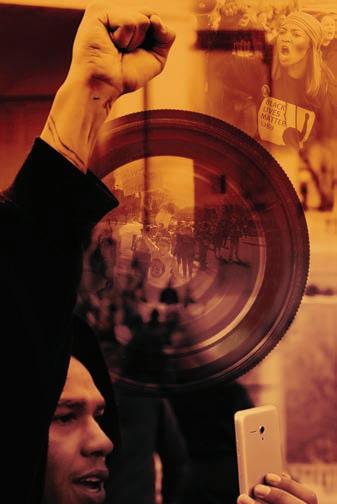
Chapter 2: Documenting Labor and Race—Service Employees International Union and Black Lives Matter
Chapter 3: Navigating Difference and Identities
Chapter 4: Scripting Solidarity: Labor, Community, and Radical Storytelling
Chapter 5: Distributing Activist Media
Conclusion

1871


OWEN HOLLAND
“This superb book on the Commune’s reception in late nineteenthcentury Britain, which scrupulously and perceptively reconstructs the reactions of writers on both the Left and Right of the political spectrum, across a generous range of discursive forms, is a ne testament to Owen Holland’s politically committed scholarship.”
—Matthew Beaumont, author of The Walker: On Finding and Losing Oneself in the Modern City240 pp 14 b/w images 6.125 x 9.25
978-1-9788-2193-4 paper $39.95S
978-1-9788-2985-5 cloth $120.00SU
March 2022
“This timely book explores the Paris Commune’s reverberations in Victorian literature, offering spirited readings of the many popular and canonical British writers who sought to contain (or revivify) it. The result is a fascinating meditation on literature and revolution which stands to make sizeable contributions to both our understanding of the Commune and latenineteenth-century British literature and culture.”
—J. Michelle Coghlan, author of Sensational Internationalism: the Paris Commune and the Remapping of American Memory in the Long Nineteenth Century
Table of Contents
Preface
1 Introduction: A Commune in Literature
2 Refugees, Renegades, and Misrepresentation: Edward Bulwer Lytton and Eliza Lynn Linton
3 Dangerous Sympathies: Mary Elizabeth Braddon, Anne Thackeray Ritchie, and Margaret Oliphant

4 “Dreams of the Coming Revolution”: George Gissing’s Workers in the Dawn

5 Revolution and Ressentiment: Henry James’s The Princess Casamassima




6 The Uses of Tragedy: Alfred Austin’s The Human Tragedy and William Morris’s The Pilgrims of Hope
7 “It Had to Come Back”: H. G. Wells’s When the Sleeper Wakes
8 Conclusion: Looking without Seeing
Acknowledgments

Notes
Bibliography
Between March and May 1871, the Parisian Communards fought for a revolutionary alternative to the status quo grounded in a vision of internationalism, radical democracy and economic justice for the working masses that cut across national borders. The eventual defeat and bloody suppression of the Commune resonated far beyond Paris. In Britain, the Commune provoked widespread and erce condemnation, while its defenders constituted a small, but vocal, minority. The Commune evoked long-standing fears about the continental “spectre” of revolution, not least because the Communards’ seizure of power represented an embryonic alternative to the bourgeois social order.
This book examines how a heterogeneous group of authors in Britain responded to the Commune. In doing so, it provides the rst full-length critical study of the reception and representation of the Commune in Britain during the closing decades of the nineteenth century, showing how discussions of the Commune functioned as a screen to project hope and fear, serving as a warning for some and an example to others. Writers considered in the book include John Ruskin, Edward Bulwer-Lytton, Eliza Lynn Linton, Mary Elizabeth Braddon, Anne Thackeray Ritchie, Margaret Oliphant, George Gissing, Henry James, William Morris, Alfred Austin and H.G. Wells. As the book shows, many, but not all, of these writers responded to the Commune with literary strategies that sought to stabilize bourgeois subjectivity in the wake of the traumatic shock of a revolutionary event. The book extends critical understanding of the Commune’s cultural afterlives and explores the relationship between literature and revolution.
OWEN HOLLAND has taught nineteenth-century literature at Jesus College, Oxford and in the English Department at University College London. His rst monograph, William Morris’s Utopianism: Propaganda, Politics and Pre guration, was published in 2017, and he has also edited a selection of Morris’s political writings for Verso.
Introducing a new series: Reinventions of the Paris Commune (see The Paris Commune: A Brief History on page 1)


KATHRYN MILLARD
“A landmark work! The classic lms that reported human behavior experiments selectively told one story but many more were possible. Why one and not another? Millard explains why the dominant stories won out with an insightful provocative mix of analysis and speculation.”
—Bill Nichols, author of Representing Reality: Issues and Concepts in Documentary
“This is an important contribution to the raging debate on ethics and truth in storytelling, both in lm and scienti c research; it sheds light on the true-crime lm genre; it recovers lost lm history; and it reveals the value of truly interdisciplinary research. An exceptional creative and scholarly achievement!”
—Patricia Aufderheide, author of Documentary: A Very Short Introduction
Double Exposure examines the role of lm in shaping social psychology’s landmark postwar experiments. We are told that most of us will in ict electric shocks on a fellow citizen when ordered to do so. Act as a brutal prison guard when we put on a uniform. Walk on by when we see a stranger in need. But there is more to the story. Documentaries that investigators claimed as evidence were central to capturing the public imagination. Did they provide an alibi for twentieth century humanity? Examining the dramaturgy, staging and lming of these experiments, including Milgram’s Obedience Experiments, the Stanford Prison Experiment and many more, Double Exposure recovers a new set of narratives.
KATHRYN MILLARD is a writer, independent lmmaker and an honorary professor of screen and creative arts at Macquarie University, Sydney, Australia. She is the author of Screenwriting in a Digital Era

HOW SOCIAL PSYCHOLOGY FELL IN LOVE WITH THE MOVIES
978-1-9788-0946-8
March 2022
Media Studies • Cultural Studies
Table of Contents
List of Illustrations
Introduction
1. Setting the Scene
2. “You’re an Actor Now”

3. New Haven Noir
4. Good or Bad Samaritans?
5. Doing Time

6. Crime Scenes


7. Restaging the Psychology Experiment
8. “I was the SYSTEM”

9. Shifting the Story Index

198 pp 12 b/w images 6 x 9 978-1-9788-2678-6 paper $27.95S
978-1-9788-2679-3 cloth $69.95SU
April 2022
Film and Media Studies • Cultural Studies
Table of Contents
Introduction
Chapter 1: What is a Zombie?
Chapter 2: Mutilate the State! Nation Race, Power

Chapter 3: Devouring Capitalism
Chapter 4: Bodies that Splatter. Queering and Cripping Zombies



Chapter 5: Of Matter, Dust, and Earth: Zombies and the Environment
Conclusions
“A brilliant cartography of the zombie lm, elegantly crafted, theoretically informed and ambitious in its transnational sweep and decolonial focus.”
—Cynthia Steele, author of Politics, Gender, and the Mexican Novel, 1968-1988
“A fascinating and rigorous study that invites us to analyze our dreams and fears, the contemporary effects of global power and coloniality, necropolitics, today’s structures of oppression, and certainly the very essence of our own humanity. Patricia Saldarriaga and Emy Manini have written a book on zombies that will stand the test of time; their reading decolonizes and queers identity, the present, the future, horror ction, and most de nitely: our understanding of history.”
—Oswaldo Estrada, author of Troubled Memories: Iconic Mexican Women and the Traps of Representation
Given the current moment--polarized populations, increasing climate fears, and decline of supranational institutions in favor of a rising tide of nationalisms-- it is easy to understand the proliferation of apocalyptic and dystopian elements in popular culture. Infected Empires examines one of the most popular gures in contemporary apocalyptic lm: the zombie. This harbinger of apocalypse reveals bloody truths about the human condition, the wounds of history, and methods of contending with them. Infected Empires considers parallels in the zombie genre to historical and current events on different political, theological and philosophical levels, and proposes that the zombie can be read as a gure of decolonization and an allegory of resistance to oppressive structures that racialize, marginalize, disable, and dispose of bodies. Studying lms from around the world, including Latin America, Asia, Africa, the US, and Europe, Infected Empires presents a vision of a global zombie that points toward a posthuman and feminist future.
PATRICIA SALDARRIAGA is a professor of Luso-Hispanic studies at Middlebury College, Vermont. She is the author of Los espacios del ‘Primero Sueño’ de Sor Juana Inés de la Cruz and co-editor (with M. Júdice, I. Araújo-Branco, and R. Marques) of Sor Juana e Portugal
EMY MANINI is an independent scholar based in Seattle, Washington.

TI MEKA N. TOUNSEL
CaShawn Thompson crafted Black Girls Are Magic as a proclamation of Black women’s resilience in 2013. Less than ve years later, it had been repurposed as a gateway to an attractive niche market. Branding Black Womanhood: Media Citizenship from Black Power to Black Girl Magic examines the commercial infrastructure that absorbed Thompson’s mantra. While the terminology may have changed over the years, mainstream brands and mass media companies have consistently sought to acknowledge Black women’s possession of a distinct magic or power when it suits their pro t agendas.
Beginning with the inception of the Essence brand in the late 1960s, Timeka N. Tounsel examines the individuals and institutions that have recon gured Black women’s empowerment as a business enterprise. Ultimately, these commercial gatekeepers have constructed an image economy that operates as both a sacred space for Black women and an easy hunting ground for their dollars.
TIMEKA N. TOUNSEL is an assistant professor of African American studies and media studies at Pennsylvania State University.

174 pp 12 b/w images 6 x 9
978-1-9788-2990-9 paper $24.95S
978-1-9788-2991-6 cloth $59.95SU
June 2022
Media • Popular Culture
African American Studies
Women’s Studies

RHONDA D. FREDER I CK
Evidence of Things Not Seen: Fantastical Blackness in Genre Fictions is an interdisciplinary study of blackness in genre literature of the Americas. The “fantastical” in fantastical blackness is conceived by an unrestrained imagination because it lives, despite every attempt at annihilation. This blackness amazes because it refuses the limits of anti-blackness. As put to work in this project, fantastical blackness is an ethical praxis that centers black self-knowledge as a point of departure rather than as a reaction to threatening or diminishing dominant narratives. Mystery, romance, fantasy, mixed-genre, and science ctions’ unrestrained imaginings profoundly communicate this quality of blackness, speci cally here through the work of Barbara Neely, Colson Whitehead, Nalo Hopkinson, and Colin Channer. When black writers center this expressive quality, they make fantastical blackness available to a broad audience that then uses its imaginable vocabularies to reshape extra-literary realities. Ultimately, popular genres’ imaginable possibilities offer strategies through which the made up can be made real.
RHONDA FREDERICK is an associate professor of African and African diaspora studies and English at Boston College in Massachusetts. She is the author of “Colón Man a Come”: Mythographies of Panama Canal Migration
222 pp 6.125 x 9.25
978-1-9788-1806-4 paper $34.95S
978-1-9788-1807-1 cloth $120.00SU
July 2022
Literary Studies • Cultural Studies
Black Studies
304 pp 40 b/w, 15 color images
6.125 x 9.25
978-0-8135-6358-9 paper $39.95S
978-1-9788-3137-7 cloth $120.00SU
July 2022
Film Studies • Beauty & Grooming

ADR I ENNE L. MCLEAN

Ever wonder why so many stars and featured players, male or female, in movies of Hollywood’s “Golden Age” look like they just stepped out of a beauty parlor even if the story places them in a jungle, a hospital bed, or the ancient past? All for Beauty, organized as a chronological industrial history, examines how and why makeup and hairdressing evolved as crafts designed partly to maintain the white awlessness of men and women as a value in the studio era. Through what came to be known as beauty makeup in lm after lm, decade after decade, the crafts and their extensive artistry were used to cue spectators to admire certain characters and to ignore or dismiss others largely based on appearance. All for Beauty pays particular attention to the labor force, exploring the power and in uence of cosmetics inventor and manufacturer Max Factor and the Westmore dynasty of makeup artists but also the contributions of others, many of them women, whose names are far less known. At the end of the complex, exciting, and at times dismaying chronicle, it is likely that readers will never again watch Hollywood lms without thinking about the roles of makeup and hairdressing in creating not just ctional characters but stars as emblems of an idealized and undeniably mesmerizing visual perfection.
ADRIENNE L. MCLEAN is a professor of lm studies at the University of Texas at Dallas and the author or editor of multiple books including Dying Swans and Madmen: Ballet, the Body, and Narrative Cinema and Costume, Makeup, and Hair (both Rutgers University Press).
Techniques of the Moving Image
ED I TED BY PATR I CE PETRO
Uncanny Histories in Film and Media brings together a stellar lineup of established and emergent scholars who explore the uncanny twists and turns that are often occluded in larger accounts of lm and media. Prompted by fresh archival research and new conceptual approaches, the works included here probe the uncanny as a mode of historical analysis that reveals surprising connections and unsettling continuities. The uncanny stands for what often eludes us, for what remains unfamiliar or mysterious or strange. Whether writing about lm movements, individual works, or the legacies of major or forgotten critics and theorists, the contributors remind us that at the heart of the uncanny, and indeed the writing of history, is a troubling of de nitions, a challenge to our inherited narratives, and a disturbance of what was once familiar in the uncanny histories of our eld.
UNCANNY HISTORIES in FILM and MEDIA
218 pp 14 b/w images 6.125 x 9.25
978-1-9788-2994-7 paper $32.95S
978-1-9788-2995-4 cloth $120.00SU
June 2022
Media Studies • Cultural Studies
PATRICE PETRO is a professor of lm and media studies, Dick Wolf Director of the Carsey-Wolf Center, and Presidential Chair in Media Studies at the University of California, Santa Barbara. She is the author, editor, and co-editor of thirteen books, including The Routledge Companion to Cinema and Gender Media Matters
“Single Lives, focusing on a wide range of British and American texts from the nineteenth to the present century, makes a timely feminist intervention into ongoing critical conversations about the representation of women’s singleness. This engaging interdisciplinary collection, which foregrounds diverse embodiments of singleness, revisits familiar gures, and promotes expanded methods and sources to better understand single women’s lived experiences, promises to greatly enrich the eld of singleness studies.”
—Anthea Taylor, author of Celebrity and the Feminist Blockbuster“Drawing from wide-ranging disciplines and spanning a century of British and American history, Single Lives offers an original and engrossing analysis of how the gure of the single woman stands as an implicit challenge to the norm of the patriarchal nuclear family.”
—Kathleen Rowe Karlyn, author of The Unruly Woman: Gender and the Genres of LaughterSingle Lives is a collection of singleness studies essays from the interdisciplinary humanities that explores the last two hundred years of literature and popular media by, about, and for single women in the US and the UK. Moving between the family home and domestic independence, between household and public labor, and between celibacy and a range of sexual relations, the single woman remains a literary and cultural focus, as she has been from the 19th to the 21st centuries. This collection offers readers the opportunity to uncover the social, political, economic, and cultural connections between the “singly blessed” women and “bachelor girls” of the 19th and early 20th century and “all the single ladies” of the 21st century. Essays read singleness across genre and eld, offering new approaches to studying modern and contemporary single women in literature, lm, and history. Authors engage scholarship from wide ranging elds of social history, women’s studies, queer theory, and Black feminism. The collection reads familiar texts against the grain, rethinking archival resources, revisiting familiar gures, and exploring new sources: cookbooks, ephemera, personal documents, recovered lm histories, and forms of domestic space and labor.This is a book for scholars of gender and sexuality, social history, feminist lm and media scholars, and literary historians, and re ects the urgent contemporary interest in single women as a political, economic, and cultural force.
KATHERINE FAMA is an assistant professor of American literature in the School of English, Drama and Film at University College Dublin in Ireland.
JORIE LAGERWEY is an associate professor in television studies at University College Dublin in Ireland. She is the author, with Taylor Nygaard, of Horrible White People: Gender, Genre, and Television’s Precarious Whiteness and of Postfeminist Celebrity and Motherhood: Brand Mom
234 pp 12 b/w images, 7 tables 6.125 x 9.25
978-1-9788-2851-3 paper $36.95S
978-1-9788-2852-0 cloth $130.00SU
May 2022
Cultural Studies • Women’s Studies
Table of Contents
Introduction: Situating Single Lives by Katherine Fama and Jorie Lagerwey
Part I: Singles Studies: Archives and Methods
Chapter 1: Searching for Singles: Archival Approaches for Singleness Studies and Black Women’s Collections by Andreá N. Williams
Chapter 2: Reclaiming Single Women’s Work: Gender, Melodrama, and the Processes of Adaptation in The Best of Everything by Jennifer S. Clark
Chapter 3: Recovering Single Biography: Jane Armstrong Tucker, Illness, and the Single Life by Elizabeth DeWolfe
Part II: Familiar Figures: Representing and Reforming the Single Woman

Chapter 4: Becoming Single: Gidget “Betwixt and Between” by Pamela Robertson Wojcik
Chapter 5: F. Scott Fitzgerald and “The Sinking Ship of Future Matrimony:” The Unmarried Flapper in Literature and on Screen by Martina Mastandrea


Chapter 6: Neither Betwixt nor Between: Divorced Mothers in the United States, 1920-1965 by Kristin Celello
Chapter 7: Serves One: Exploring Representations of Female Singleness in American Cookbooks by Ursula Kania
Part III: Singles at Home: Domestic Labors
Chapter 8: Feeling “Like a Queen:” Later-Life Single Women at Home in Modern American Short Fiction by Katherine Fama
Chapter 9: “Spinsters’ Rest?”: The Discomforts of Home in British Women’s Short Stories of the 1920s to the 1940s by Emma Liggins
Chapter 10: All the Single Nannies: Reforming Elite Domesticity and the Cultural Imaginary by Ann Mattis
Afterword by Benjamin Kahan
Acknowledgements
Notes on Contributors



Bibliography Index
208 pp 35 color images 6 x 9
978-1-9788-2163-7 paper $27.95S
978-1-9788-2164-4 cloth $69.95SU
August 2022
Latinx Studies • Popular Culture • Media Studies
Honoring relatives by tending graves, building altars, and cooking festive meals has been an major tradition among Latin Americans for centuries. The tribute, “El Día de los Muertos,” has enjoyed renewed popularity since the 1970s when Latino activists and artists in the United States began expanding “Day of the Dead” north of the border with celebrations of performance art, Aztec danza, art exhibits, and other public expressions.
Focusing on the power of ritual to serve as a communication medium, in this fully revised and updated edition, Regina M. Marchi combines a mix of ethnography, historical research, oral history, and critical cultural analysis to explore the manifold and unexpected transformations that occur when the tradition is embraced by the mainstream. A testament to the complex nature of ethnic identity, Day of the Dead in the USA provides insight into the power of ritual to create community, transmit oppositional messages, and advance educational, political, and economic goals. Today Chicano-style Day of the Dead events take place in all fty states. This new edition provides more in-depth information about:
•The increase in events across the US, incorporating media coverage and nancial aspects
•Coverage of recent political movements involved in contemporary Day of the Dead celebrations, including #BlackLivesMatter and #MeToo
•The greater media coverage and online presence of the celebration including blogs, websites, and streaming videos on how to do Day of the Dead face painting, costume-making, altar making, calavera crafts, and baking Day of the Dead bread (pan de muerto)
•The incorporation of Día de los Muertos aesthetics and iconography in video games and movies
•The proliferation of commercialized merchandise, including items such as home goods, clothing, face paints and costumes at mainstream big box and web retailers, as well as the widespread proliferation of calavera-themed decorations and costumes for Halloween
•Personal testimonials about how these celebrations play an important role in personal and family life and includes 24 new full color illustrations.
REGINA MARCHI is associate professor of media studies and an af liated professor of Latino studies at Rutgers University—New Brunswick in New Jersey. She co-authored, with Lynn Scho eld Clark, Young People and the Future of News, which won the 2018 Nancy Baym top book award from the Association of Internet Researchers.
Latinidad: Transnational Cultures in the United States

“War Without Bodies contributes to an important and ongoing effort to understand—and to challenge— the myriad ways in which a culture of war has been historically normalized as a function of ‘new’ technologies of representation. Martin Danahay illustrates how the illusion of a ‘war without bodies’ complicates our capacity to engage the trauma of war by sanitizing its violence and undermining the very possibility of grieveable bodies, whether soldiers or civilians.
—John Louis Lucaites, co-editor of In/visible War: The Culture of Warin

 Twenty- rst-Century America
Twenty- rst-Century America
Historically the bodies of civilians are the most damaged by the increasing mechanization and derealization of warfare, but this is not re ected in the representation of violence in popular media. In War Without Bodies, author Martin Danahay argues that the media in the United States in particular constructs a “war without bodies” in which neither the corpses of soldiers or civilians are shown. War Without Bodies traces the intertwining of new communications technologies and war from the Crimean War, when Roger Fenton took the rst photographs of the British army and William Howard Russell used the telegraph to transmit his dispatches, to the rst of three “video wars” in the Gulf region in 1990-91, within the context of a war culture that made the costs of organized violence acceptable to a wider public. New modes of communication have paradoxically not made more war “real” but made it more ubiquitous and at the same time unremarkable as bodies are erased from coverage. Media such as photography and instantaneous video initially seemed to promise more realism but were assimilated into existing conventions that implicitly justi ed war. These new representations of war were framed in a way that erased the human cost of violence and replaced it with images that defused opposition to warfare.
Analyzing poetry, photographs, video, and video games the book illustrates the ways in which war was framed in these different historical contexts. It examines the cultural assumptions that in uenced the reception of images of war and discusses how death and damage to bodies was made acceptable to the public. War Without Bodies aims to heighten awareness of how acceptance of war is coded into texts and how active resistance to such hidden messages can help prevent future unnecessary wars.
MARTIN A. DANAHAY is a professor of English at Brock University in Canada. He is the author of Gender at Work in Victorian Culture: Literature, Art and Masculinity and A Community of One: Masculine Autobiography and Autonomy in Nineteenth Century Britain
War Culture
March 2022
Military History • Media Studies

“Danahay offers a paci st’s lament, not only for the victims of war, but for their systematic erasure from its representation. War Without Bodies documents the history of this practice, explores its lethal consequences, and urges its readers toward an alternative visuality.”
—Rebecca Adelman, author of Figuring Violence: Affective Investments in Perpetual War
“You might not think to draw a line from Tennyson to Dungeons and Dragons, but that’s the gift of this book. With great erudition, Danahay carefully folds historical epochs and disparate practices into one another, adding layers of richness to the old question of how war has gured the body.”
—Roger Stahl, author of Through the Crosshairs: War, Visual Culture, and the Weaponized Gaze

226 pp 41 b/w images 6.125 x 9.25
978-1-9788-2917-6 paper $34.95S
978-1-9788-2918-3 cloth $120.00SU
August 2022
Film • History
Table of Contents
Acknowledgements
1. Introduction: The Affective Geographies and Generic Transformations of German War Films, 1910s-2000s
2. Land into Landscape, Landscape into Territory: Transformations of Space in German War Cinema, 1914-1918 (The Diary of Dr. Hart, Sword and Hearth, Inexpiable)
3. “Landscapes of Death” and Memories of the Human: Distance, Scale, and the Double Map in the First “WarSound-Film” (Westfront 1918, Kameradschaft)
4. Combat Films and their Aerial Spaces under the Nazi Regime (Medal of Honor, Squadron Lützow, Above Everything in the World)
5. Out of the War Mode: Demobilizing the War Genre in the Postwar Rubble-Film (Request Concert [1940], The Great Love, Ways into Twilight, The Sons of Mr. Gaspary, Birds of Migration)
6. War in the Reconstructive 1950s: Genre, Espionage, and Cold-War Subjectivities in the 1950s War Film (Canaris, Fox of Paris, Rommel Calls Cairo)
7. Conclusion: Affective Geographies of the Fading Genre (Das Boot, Downfall)
Notes
Bibliography Index

JA I MEY F I SHER
“
German Ways of War is an engaging text that charts out a captivating genre history that extends far beyond its immediate scope of German war lms. The book is written as a fascinating account to how warfare changed in the twentieth century. . . The project is meticulously researched and provides invaluable political, historical, and legal documentation regarding war and peace policies in Germany.”
—Nora M. Alter, author of Projecting History: German Non ction Cinema 1967-2000
German Ways of War deploys theories of space, mobility, and affect to investigate how war lms realize their political projects. Analyzing lms across the decades, from the 1910s to 2000s, German Ways of War addresses an important lacuna in media studies: while scholars have tended to focus on the similarities between cinematic looking and weaponized targeting—between shooting a camera and discharging a gun—this book argues that war lms negotiate spaces throughout that frame their violence in ways more revealing than their battle scenes. Beyond that wellknown intersection of visuality and violence, German Ways of War explores how the genre frames violence within spatio-affective operations. The production of novel spaces and evocation of new affects transform war lms, including the genre’s manipulation of mobility, landscape, territory, scales, and topological networks. Such effects amount to what author Jaimey Fisher terms the lms’ “affective geographies” that interweave narrative-generated affects, spatial depictions, and political processes.
JAIMEY FISHER is a professor of German and cinema and digital media at the University of California, Davis. He is the author of Treme, Christian Petzold and Disciplining Germany: Youth, Reeducation, and Reconstruction after the Second World War War Culture
Bucknell University Press has been publishing books in the arts, humanities, and humanistic social sciences since 1968, and today curates internationally distinguished lists in Iberian studies, Latin American studies, and interdisciplinary eighteenth-century studies. Our subject areas extend to philosophy, French theater, Africana studies, and cultural and intellectual history. With authors from around the globe, Bucknell University Press extends the reach and in uence of its home institution nationally and internationally, and is a member of the Association of University Presses.
Bucknell University Press titles published since July 2018 are distributed worldwide by Rutgers University Press. The new ISBN pre x for Bucknell University Press is 978-1-68448. All books bearing this pre x are available from Rutgers. Orders may be combined with any Rutgers titles. See the full list at: www.bucknelluniversitypress.org.
(Please note that titles published by Bucknell University Press before July 2018 are still available from Rowman & Little eld. In the U.S., order by phone at 1-800-462-6420 or on the web at www.rowman.com. This applies to 13-digit ISBNs bearing the pre xes 978-0-83875 and 978-1-61148.)

https://twitter.com/bucknellupress

https://www.facebook.com/BucknellUP www.bucknelluniversitypress.org
https://upress.blogs.bucknell.edu
See our 2021 catalog at: https://www.rutgersuniversitypress.org/bucknell/seasonal-catalogs

January 2022
Art • New Media • Photography
Published on the occasion of the art exhibition Screen Time: Photography and Video Art in the Internet Age, this catalog features a selection of leading international artists who engage with and critique the role of media in contemporary society. Their work demonstrates what has become known as post-internet artistic practices—art that may or may not be made for the internet but nevertheless acknowledges online culture as an omnipresent in uence, inseparable from contemporary social conditions. They ask what it means to be a photographer when everyone is an Instagram in uencer; what it means to make video art when everyone is a TikTok video star; and how to deliver meaningful social commentary in the age of the meme. The exhibition and accompanying catalog showcase artwork by N. Dash, Nathalie Djurberg, Marcel Dzama, Peter Funch, Cyrus Kabiru, William Kentridge, Christian Marclay, Marilyn Minter, Vik Muniz, Otobong Nkanga, Erwin Olaf, Robin Rhode, Vee Speers, Mary Sue, Puck Verkade, and Huang Yan.

Published by Bucknell University Press for the Samek Art Museum.
RICHARD RINEHART is the director of the Samek Art Museum at Bucknell University in Lewisburg, Pennsylvania.
PHILLIP PRODGER is the executive director of Curatorial Exhibitions in Pasadena, California.







JOANNA E. TAYLOR AND IAN N. GREGORY
England’s famed Lake District—best known as the place of inspiration for the Wordsworths, Samuel Taylor Coleridge, and other Romantic-era writers—is the locus of this pioneering study, which implements and critiques a new approach to literary analysis in the digital age. Deploying innovative methods from literary studies, corpus linguistics, historical geography, and geographical information science, Deep Mapping the Literary Lake District combines close readings of a body of writing about the region from 1622-1900 with distant approaches to textual analysis. This path-breaking volume exempli es interdisciplinarity, demonstrating how digital humanities methodologies and geospatial tools can enhance our appreciation of a region whose topography has long been recognized as fundamental to the shape of the poetry and prose produced within it.
JOANNA E. TAYLOR is a presidential fellow in digital humanities at the University of Manchester in the UK.
IAN N. GREGORY is a professor in digital humanities at Lancaster University in the UK.
Aperçus: Histories Texts Cultures
June 2022
Literary Studies • Geography
LI NDSEY ECKERT
What did Wordsworth wear, and where did he walk? Who was Byron’s new mistress, and how did his marriage fare? Answers—sometimes accurate, sometimes not—were tantalizingly at the ready in the Romantic era, when confessional poetry, romans à clef, personal essays, and gossip columns offered readers exceptional access to well-known authors. But at what point did familiarity become overfamiliarity? Widely recognized as a social virtue, familiarity—a feeling of emotional closeness or comforting predictability—could also be dangerous, vulgar, or boring. In The Limits of Familiarity, Eckert persuasively argues that such concerns shaped literary production in the Romantic period. Bringing together reception studies, celebrity studies, and literary history to reveal how anxieties about familiarity shaped both Romanticism and conceptions of authorship, this book encourages us to re ect in our own fraught historical moment on the distinction between telling all and telling all too much.
LINDSEY ECKERT is an assistant professor of English at Florida State University in Tallahassee, where her research and teaching focus on Romanticism and the history of text technologies.
Transits: Literature, Thought & Culture, 1650-1850
228 pp 3 color and 6 b/w images, 6.125 x 9.25
978-1-68448-390-7 paper $34.95S
978-1-68448-391-4 cloth $120.00SU
June 2022
Literary Studies • Cultural Studies
Eighteenth-Century Studies

LI NDA VAN NETTEN BL I MKE
Richly researched and engagingly written, Political Affairs of the Heart traces the emergence of female sentimental travel writing in late eighteenth-century Britain, and posits its centrality to women’s engagement with national and gender politics. This study examines four travel narratives written by women between 1774 and 1795, convincingly arguing that they effectively deploy the discourse of sensibility to engage with debates around Britain’s national identity during the French and American Revolutions. Van Netten Blimke contends that Laurence Sterne’s A Sentimental Journey (1768)—which rst introduced sentimental discourse to the travelogue—facilitated women’s gradual inclusion into this previously male-dominated genre, effectively paving the way for women to in uence the country’s sociopolitical transformation. These four previously understudied works successfully combine eyewitness authority with the language of sensibility to mount impassioned interventions in their nation’s perception and practice of revolutionary politics, at a time when its national identity was most in ux.

LINDA VAN NETTEN BLIMKE is an associate professor of English at Concordia University of Edmonton in Alberta, Canada, where she teaches eighteenth- and nineteenth-century literature. She is the coeditor of Crossing Canada, 1907: Hope Hook’s Diary
Transits: Literature, Thought & Culture, 1650-1850
238 pp 6.125 x 9.25
978-1-68448-405-8 paper $34.95S
978-1-68448-406-5 cloth $130.00SU
July 2022
Literary Studies • Women’s Studies
Eighteenth-Century Studies



JAVIER IRIGOYEN-GARCÍA

240 pp 12 b/w images 6 x 9
978-1-68448-400-3 paper $29.95S
978-1-68448-401-0 cloth $120.00SU
July 2022
Cultural Studies • Literary Studies
Insults, scorn, and verbal abuse—frequently deployed to af rm the social identity of the insulter—are destined to fail when that language is appropriated and embraced by the maligned group. In such circumstances, slander may instead empower and reinforce the collective identity of those perceived to be a threat to an idealized society. In this innovative study, Irigoyen-García examines how the discourse and practices of insult and infamy shaped the cultural imagination, anxieties, and fantasies of early modern Spain. Drawing on sixteenthand seventeenth-century literary works, archival research, religious and political literature, and iconographic documents, Dystopias of Infamy traces how the production of insults haunts the imaginary of power, provoking latent anxieties about individual and collective resistance to subjecti cation. Of particular note is Cervantes’s tendency to parody regulatory fantasies about infamy throughout his work, lampooning repressive law for its paradoxical potential to instigate the very de ance it fears.
JAVIER IRIGOYEN-GARCÍA is a professor of Spanish at the University of Illinois at Urbana-Champaign. He is the author of The Spanish Arcadia: Sheep Herding, Pastoral Discourse, and Ethnicity in Early Modern Spain and “Moors Dressed as Moors”: Clothing, Social Distinction, and Ethnicity in Early Modern Iberia

Campos Ibéricos: Bucknell Studies in Iberian Literatures and Cultures
ÓSCAR IVÁN USECHE
In this ambitious new interdisciplinary study, Useche proposes the metaphor of the social foundry to parse how industrialization informed and shaped cultural and national discourses in late nineteenth- and early twentieth-century Spain. Across a variety of texts, Spanish writers, scientists, educators, and politicians appropriated the new economies of industrial production— particularly its emphasis on the human capacity to transform reality through energy and work—to produce new conceptual frameworks that changed their vision of the future. These in uences soon appeared in plans to enhance the nation’s productivity, justify systems of class strati cation and labor exploitation, or suggest state organizational improvements. This fresh look at canonical writers such as Emilia Pardo Bazán, Concha Espina, Benito Pérez Galdós, Vicente Blasco Ibáñez, and José Echegaray, as well as lesser known authors, offers close readings of their work as it re ected the complexity of Spain’s process of modernization.

300 pp 6 x 9
978-1-68448-385-3 paper $34.95S
978-1-68448-386-0 cloth $130.00SU
March 2022
History of Science and Technology
Cultural Studies • Labor Studies
ÓSCAR IVÁN USECHE is an associate professor of Spanish at Ursinus College in Collegeville, Pennsylvania. As a specialist in modern peninsular studies, his research focuses on exploring the interaction between science, technology, and cultural production in n-de-siglo Spain.
Campos Ibéricos: Bucknell Studies in Iberian Literatures and Cultures

BRANTLEY NICHOLSON
This groundbreaking study examines how modern Colombian literature— from Gabriel García Márquez to Juan Gabriel Vásquez—re ects one of the world’s most tumultuous entrances into globalization. While these literary icons, one canonical, the other emergent, bookend Colombia’s fall and rise on the world stage, the period between the two was inordinately violent, spanning the Colombian urban novel’s evolution into narcoliterature.
Marking Colombia’s cultural and literary manifestations as threefold, this book explores García Márquez’s retreat to a rural romanticism that paradoxically made him a global literary icon; the country’s violent end to the twentieth century when its largest economic export was narcotics; and the contemporary period in which a new major author has emerged to create a “literature of national reconstitution.” Harkening back to the Regeneration movement and extending through the early twentyrst century, this book analyzes the cultural implications of Colombia’s relationship to the wider world.
BRANTLEY NICHOLSON is an associate professor of Spanish and Latin American studies at Georgia College in Milledgeville. His recent research has focused on post-national imaginaries in Chile and Colombia and the emergence of new global cities in the Andean region, such as Santiago, Bogotá, and Medellín.
Bucknell Studies in Latin American Literature and Theory

DANIEL DIMASSA
Around the turn of the nineteenth century, no task seemed more urgent to German Romantics than the creation of a new mythology. It would unite modern poets and grant them common ground, and bring philosophers and the Volk closer together. But what would a new mythology look like? Only one model suf ced, according to Friedrich Schlegel: Dante’s Divine Comedy. Through reading and juxtaposing canonical and obscure texts, Dante in Deutschland shows how Dante’s work shaped the development of German Romanticism; it argues, all the while, that the weight of Dante’s in uence induced a Romantic preoccupation with authority: Who was authorized to create a mythology? This question—traced across texts by Schelling, Novalis, and Goethe— begets a Neo-Romantic xation with Dantean authority in the mythic ventures of Gerhart Hauptmann, Rudolf Borchardt, and Stefan George. Only in Thomas Mann’s novels, DiMassa asserts, is the Romantics’ Dantean project ultimately demythologized.
DANIEL DiMASSA is an assistant professor of German at Worcester Polytechnic Institute in Worcester, Massachusetts.
New Studies in the Age of Goethe
184 pp 6 x 9
978-1-68448-365-5 paper $28.95S
978-1-68448-366-2 cloth $120.00SU
May 2022
Latin American Studies • Literary Studies
228 pp 6 b/w images 6 x 9 978-1-68448-418-8 paper $32.95S 978-1-68448-419-5 cloth $120.00SU August 2022
Cultural Studies • Literary Studies
292 pp 28 b/w images 6 x 9 978-1-68448-410-2 cloth $160.00S
April 2022
Eighteenth-Century Studies • Literary Studies

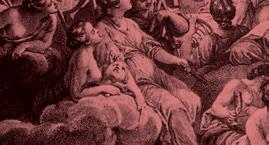



Published Annually: ISSN 1065-3112
BOOK REVIEW EDITOR: SAMARA ANNE CAHILL
Rigorously inventive and revelatory in its adventurousness, 1650–1850 opens a forum for the discussion, investigation, and analysis of the full range of long-eighteenth-century writing, thinking, and artistry. Combining fresh considerations of prominent authors and artists with searches for overlooked or offbeat elements of the Enlightenment legacy, 1650–1850 delivers a comprehensive but richly detailed rendering of the rst days, the rst principles, and the rst efforts of modern culture. Its pages open to the works of all nations and language traditions, providing a truly global picture of a period that routinely shattered boundaries. Volume 27 of this long-running journal is no exception to this tradition of focused inclusivity. Readers will travel through a blockbuster special feature on the topic of worldmaking and other worlds—on the Enlightenment zest for the discovery, charting, imagining, and evaluating of new worlds, envisioned worlds, utopian worlds, and worlds of the future. Essays in this enthusiastically extraterritorial offering escort readers through the science- ctional worlds of Lady Cavendish, around European gardens, over the high seas, across the American frontiers, into forests and exotic ecosystems, and, in sum, into the unlimited expanses of the Enlightenment mind. Further enlivening the volume is a cavalcade of full-length book reviews evaluating the latest in eighteenth-century scholarship.
KEVIN L. COPE is the Adams Professor of English Literature at Louisiana State University in Baton Rouge. The author of Criteria of Certainty, John Locke Revisited, and In and After the Beginning, Cope has edited a panoply of volumes on topics such as the imaginative representations of the sciences, the iconic status of George Washington, miracle lore in the Enlightenment, the profusion of information during the Enlightenment, and, most recently, the idea and the representation of distance during the Enlightenment.
SAMARA ANNE CAHILL served for ten years as a member of the faculty at Nanyang Technological University of Singapore before joining the faculty at Blinn College in Bryan, Texas. The author of Intelligent Souls? Feminist Orientalism in Eighteenth-Century English Literature (Bucknell, 2019), Cahill also co-edited Citizens of the World: Adapting in the Eighteenth Century (Bucknell, 2015). One of the founders of the Southeast Asian Society for Eighteenth-Century Studies, she edits the online journal Studies in Religion and the Enlightenment
Founded in 1922, the University of Delaware Press supports the mission of the University of Delaware through the worldwide dissemination of outstanding, peerreviewed scholarship in a wide range of disciplines in the humanities, including literary studies, art history, French studies, and material culture, with a particular focus on the early modern period. The Press also publishes works on the history, culture, and environment of Delaware and the Eastern Shore of interest to the general public, enhancing the university’s community outreach. Our prestigious series invite works that are interdisciplinary, transnational, and/or temporal in nature, supporting the Press’s commitment to publishing innovative and inclusive scholarship.
As of March 2021, all University of Delaware Press titles published in 2019 and thereafter, including a select number of backlist titles, are distributed worldwide by Rutgers University Press. These books bear an ISBN pre x of 978-1-64453 and can be ordered in combination with any Rutgers titles. University of Delaware Press titles published before 2019 are distributed by Rowman & Little eld. In the U.S., these titles can be ordered direct by phone at 1-800-462-6420, or via email at orders@rowman.com. International customers may nd out more about ordering information at https://rowman.com/Page/International. See the full list of available University of Delaware Press titles at udpress.udel.edu.

Material Culture Perspectives
For information on all titles, visit udpress.udel.edu
https://twitter.com/UDelPress

For information on Press series, visit udpress.udel.edu/book-series/ 200A Morris Library 181 S. College Ave. Newark, DE 19717

250 pp 6 b/w illustrations 6 x 9
978-1-64453-260-7 paper $34.95S
978-1-64453-261-4 cloth $120.00SU
June 2022
Literary Studies
Theater and Performance
Eighteenth-Century Studies
 ED I TED BY HEATHER LADD AND LESL I E R I TCH IE
ED I TED BY HEATHER LADD AND LESL I E R I TCH IE
The essays in English Theatrical Anecdotes, 1660-1800 explore the theatrical anecdote’s role in the construction of stage fame in England’s emergent celebrity culture during the long eighteenth century, as well as the challenges of employing such anecdotes in theatre scholarship today. This collection showcases scholarship that complicates the theatrical anecdote and shows its many sides and applications beyond the expected comic punch. Discussing anecdotal narratives about theatre people as producing, maintaining, and sometimes toppling individual fame, this book crucially investigates a key mechanism of celebrity in the long-eighteenth-century that reached into the nineteenth century and beyond. The anecdote erases boundaries between public and private, ctionalizing the individual in ways deeply familiar to twenty- rst-century celebrity culture.
HEATHER LADD is a former associate professor in the Department of English at the University of Lethbridge in Alberta, Canada. She has published on many eighteenth-century writers, including Charlotte Smith, Ann Radcliffe, John Gay, Thomas D’Urfey, and Elizabeth Craven and is now located in Vancouver, British Columbia.
LESLIE RITCHIE is a professor of English at Queen’s University in Kingston, Ontario. She is the author of David Garrick and the Mediation of Celebrity and Women Writing Music in Late Eighteenth-Century England: Social Harmony in Literature and Performance
Performing Celebrity
ED I TED BY NORA NACHUM I AND KR I ST I NA STRAUB
In bringing biography and celebrity together, the essays in Making Stars interrogate contemporary understandings of each. Although biography was not invented in the eighteenth century, the period saw the emergence of works that focus on individuals who are interesting as much, if not more, for their everyday, lived experience as for their status or actions. At the same time, celebrity emerged as public fascination for the private lives of publicly visible individuals. Biography and celebrity are mutually constitutive, but in complex and varied ways that this volume unpacks. Contributors to this volume present a picture of eighteenthcentury celebrity that was mediated across multiple sites, demonstrating that eighteenth-century celebrity culture in Britain was more pervasive, diverse and, in many ways, more egalitarian, than previously supposed.

NORA NACHUMI is an associate professor in the Department of English and coordinator of the minor in women’s studies at Stern College for Women, Yeshiva University in New York, NY. She is the author of Acting Like a Lady: British Women Novelists and the Eighteenth-Century Stage
6.125
978-1-64453-264-5
978-1-64453-265-2
July 2022
Literary Studies
Eighteenth-Century Studies Cultural Studies
KRISTINA STRAUB is a professor of literary and cultural studies at Carnegie Mellon University in Pittsburgh, Pennsylvania. She is the author of Sexual Suspects: Eighteenth-Century Players and Sexual Ideology and Domestic Affairs: Intimacy, Eroticism, and Violence Between Servants and Masters in Eighteenth Century Britain
Performing Celebrity




ED I TED BY DAN I EL J. ENN I S AND E. JOE JOHNSON
This collection centers on the remarkable life and career of the writer and actor Elizabeth Inchbald (1753–1821), active in Great Britain in the late eighteenth century. Inspired by the example of Inchbald’s biographer, Annibel Jenkins (1918–2013), the contributors explore the broad historical and cultural context around Inchbald’s life and work, with essays ranging from the Restoration to the nineteenth century. Spanning from visual culture, theater history, and literary analyses to historical investigations, the essays not only present a fuller picture of cultural life in Great Britain in the long eighteenth century, but also re ect a range of disciplinary perspectives. The collection concludes with the nal scholarly presentation of the late Professor Jenkins, a study of the eighteenthcentury English newspaper The World (1753-1756).
DANIEL J. ENNIS is provost and vice president for academic affairs at Coastal Carolina University in Conway, South Carolina, where he has been a member of the English department since 1999. He has published on Richard Brinsley Sheridan, John Dryden, Aphra Behn, and Christopher Smart.
E. JOE JOHNSON is a professor of foreign languages at Clayton State University in Morrow, Georgia. The author of one monograph and editor of four volumes, he has also published numerous translations of French comic books and graphic novels along with a co-translation of Camille Lebrun’s 1845 novel Amitié et dévouement, ou Trois mois à la Louisiane
AMANDA LAH I KA I NEN
This book examines the entwined and simultaneous rise of graphic satire and cultures of paper money in late eighteenth- and early nineteenthcentury Britain. Asking how Britons learned to value both graphic art and money, the book makes surprising connections between these two types of engraved images that grew in popularity and in uence during this time. Graphic satire grew in visual risk-taking, while paper money became a more standard carrier of nancial value, courting controversy as a medium, moral problem, and factor in in ation. Through analysis of satirical prints, as well as case studies of monetary satires beyond London, this book demonstrates several key ways that cultures attach value to printed paper, accepting it as social reality and institutional fact. Thus, satirical banknotes were objects that broke down the distinction between paper money and graphic satire altogether.
AMANDA LAHIKAINEN is the executive director of the Ogunquit Museum of American Art in Ogunquit, Maine. Prior to joining OMAA, she served as an associate professor of art history and chairperson of the art department at Aquinas College in Sparkill, New York. Studies in Seventeenth- and Eighteenth-Century Art and Culture
300 pp 23 b/w illustrations 6 x 9
978-1-64453-256-0 paper $42.95S

978-1-64453-257-7 cloth $120.00SU
June 2022
Literary Studies
Eighteenth-Century Studies
234 pp 17 color and 37 b/w images, 2 tables 6 x 9
978-1-64453-268-3 paper $34.95S
978-1-64453-269-0 cloth $120.00SU
August 2022
Art • History
Eighteenth-Century Studies
May 2022
History • Media
Table of Contents
List of Figures
List of Tables
Introduction
1. An American Tradition of Documentary
2 . Brave New World: Reframing and Reclaiming the Americas
3. Americans All, Immigrants All: Towards Cultural Democracy
4. Wings for the Martins: Cit-com
5. Democracy in Action: Dramatizing the Democratic Process
6. Pleasantdale Folks: Social Security Soap Conclusion
Acknowledgments Bibliogra
“In their insightful and lively account of the long-neglected history of the Educational Radio Project, David Goodman and Joy Elizabeth Hayes have illuminated one of the major ‘missing links’ of American radio history, radio’s unique role in the nexus of education, and civic culture during a crucial period of upheaval, as well as the innovative cast of characters behind its development.”
—Michele Hilmes, Professor Emerita, University of WisconsinMadison
“The rise and demise of the Educational Radio Project has much to teach us today about the challenges facing public media in the United States and how the determined efforts of activists a century ago demanded a public-interest broadcast culture.”
—Derek Vaillant, author of Across the Waves: How the United States and France Shaped the International Age of Radio
“Hayes and Goodman’s timely examination of educational broadcasting—and the government interventions that made it possible—holds key lessons for confronting media-related challenges facing us today.”
—Victor Pickard, University of Pennsylvania
New Deal Radio examines the federal government’s involvement in broadcasting during the New Deal period, looking at the U.S. Of ce of Education’s Educational Radio Project. The fact that the United States never developed a national public broadcaster, has remained a central problem of US broadcasting history. Rather than ponder what might have been, authors Joy Hayes and David Goodman look at what did happen. There was in fact a great deal of government involvement in broadcasting in the US before 1945 at local, state, and federal levels. Among the federal agencies on the air were the Department of Agriculture, the National Park Service, the Works Progress Administration (WPA) and the Federal Theatre Project.

Contextualizing the different series aired by the Educational Radio Project as part of a uni ed project about radio and citizenship is crucial to understanding them. New Deal Radio argues that this distinctive government commercial partnership amounted to a critical intervention in US broadcasting and an important chapter in the evolution of public radio in America.
DAVID GOODMAN is professor of history at the University of Melbourne in Australia. He is the author of Gold Seeking: Victoria and California in the 1850s and Radio’s Civic Ambition: American Broadcasting and Democracy in the 1930s
JOY ELIZABETH HAYES is associate professor of communication studies at the University of Iowa, Iowa City. She is the author of Radio Nation: Communication, Popular Culture and Nationalism in Mexico and co-editor of War of the Worlds to Social Media: Mediated Communication in Times of Crisis


YANG SAO XIONG

Through a sociological analysis of Hmong former refugees’ grassroots movements in the United States between the 1990s and 2000s, Immigrant Agency shows how Hmong, despite being one of America’s most economically impoverished ethnic groups, were able to make sustained claims on and have their interests represented in public policies. The author, Yang Sao Xiong argues that the key to understanding how immigrants incorporate themselves politically is to understand how they mobilize collective action and make choices in circumstances far from racially neutral. Immigrant groups, in response to political threats or opportunities or both, mobilize collective action and make strategic choices about how to position themselves vis-à-vis other minority groups, how to construct group identities, and how to deploy various tactics in order to engage with the U.S. political system and in uence policy. In response to immigrants’ collective claims, the racial state engages in racialization which undermines immigrants’ political standing and perpetuates their marginalization.
YANG SAO XIONG is an assistant professor in the School of Social Work and the Program in Asian American Studies at the University of Wisconsin-Madison. He teaches courses on social movements, race and ethnicity, Hmong American experiences, and immigrants and refugees.








EDITED BY KATERINA CAPKOVÁ AND KAMIL KIJEK
This volume provides new, groundbreaking views of Jewish life in various countries of the pro-Soviet bloc from the end of the Second World War until the collapse of Communism in late 1989. Twelve leading historians and anthropologists from Europe, Israel and the United States look at the experience of Jews under Communism by digging beyond formal state policy and instead examining the ways in which Jews creatively seized opportunities to develop and express their identities, religious and secular, even under great duress. The volume shifts the focus from Jews being objects of Communist state policy (and from anti-Jewish prejudices in Communist societies) to the agency of Jews and their creativity in Communist Europe after the Holocaust. The examination of Jewish history from a transnational vantage point challenges a dominant strand in history writing today, by showing instead the wide variety of Jewish experiences in law traditions and institutional frameworks as conceived from one Communist country to another and even within a single country, such as Poland, Czechoslovakia, Hungary, East Germany, and the Soviet Union.
KATERINA CAPKOVÁ is a senior researcher at the Institute of Contemporary History, Prague, and a teacher at Charles University and NYU in Prague.
KAMIL KIJEK is an Assistant Professor at the Jewish Studies Department, University of Wrocław, Poland.
210 pp 9 b/w illustrations, 11 tables
6 x 9
978-1-9788-2404-1 paper $29.95S
978-1-9788-2405-8 cloth $120.00SU
March 2022
Political Science • Civil Rights
Immigration • Asian American Studies



260 pp 6.125 x 9.25
978-1-9788-3079-0 paper $44.95S
978-1-9788-3080-6 cloth $120.00SU
July 2022
Jewish Studies • History
184 pp 5 b/w images 6.125 x 9.25
978-1-9788-2842-1 paper $34.95S
978-1-9788-2843-8 cloth $120.00SU
June 2022
Human Rights • International Studiess
 ED I TED BY SALVADOR SANT I NO F. REG I LME JR. AND I RENE HAD I PRAY I TNO
ED I TED BY SALVADOR SANT I NO F. REG I LME JR. AND I RENE HAD I PRAY I TNO
Human Rights at Risk brings together social scientists, legal scholars, and humanities scholars to analyze the policy challenges of human rights protection in the twenty- rst century. The volume is organized based on three overarching themes that highlight the challenges and risks in international human rights: international institutions and global governance of human rights; thematic blind spots in human rights protection; and the human rights challenges of the United States as a global and domestic actor amidst the contemporary global shifts to authoritarianism and illiberal populism. One of the very few books that offer new perspectives that envision the future of transnational human rights norms and human dignity from a multidisciplinary perspective, Human Rights at Risk comprehensively examines the causes and consequences of the challenges faced by international human rights.
SALVADOR SANTINO F. REGILME JR. is a tenured university lecturer in international relations at Leiden University in the Netherlands. He is the author of Aid Imperium: United States Foreign Policy and Human Rights in Post-Cold War Southeast Asia (2021) and the co-editor of American Hegemony and the Rise of Emerging Powers (2018).
IRENE HADIPRAYITNO teaches at the Leiden Institute of Area Studies at Leiden University in the Netherlands. She has a PhD in political economy of human rights from Utrecht University in the Netherlands.
GREGORY J. GOALW IN
Religion and nationalism are two of the most powerful forces in the world. And as powerful as they are separately, humans throughout history have fused religious beliefs and nationalist politics to develop religious nationalism, which uses religious identity to de ne membership in the national community. But why and how have modern nationalists built religious identity as the foundational signi er of national identity in what sociologists have predicted would be a more secular world? This book takes two cases—nationalism in both Ireland and Turkey in the 20th century—as a foundation to advance a new theory of religious nationalism. By comparing cases, Goalwin emphasizes how modern political actors deploy religious identity as a boundary that differentiates national groups. This theory argues that religious nationalism is not a knee-jerk reaction to secular modernization, but a powerful movement developed as a tool that forges new and independent national identities.
242 pp 6 x 9
978-1-9788-2648-9 paper $34.95S
978-1-9788-2649-6 cloth $120.00SU
July 2022
Religion • Politics • Sociology
GREGORY J. GOALWIN is an assistant professor of sociology at Aurora University in Illinois. His research has been published in journals including Social Science History, Patterns of Prejudice,Studies in Ethnicity and Nationalism, Nationalities Papers, and the Journal of Historical Sociology
STUART Z. CHARMÉ
This book analyzes the different conceptions of authenticity that are behind con icts over who and what should be recognized as authentically Jewish. Although the concept of authenticity has been around for several centuries, it became a central focus for Jews since existentialist Jean-Paul Sartre raised the question in the 1940s. Building on the work of Sartre, later Jewish thinkers, philosophers, anthropologists, and cultural theorists, the book offers a model of Jewish authenticity that seeks to balance history and tradition, creative freedom and innovation, and the importance of recognition among different groups within an increasingly multicultural Jewish community.
Author Stuart Z. Charmé explores how debates over authenticity and struggles for recognition are a key to understanding a wide range of controversies between Orthodox and liberal Jews, Zionist and diaspora Jews, white Jews and Jews of color, as well as the status of intermarried and messianic Jews, and the impact of Jewish genetics. In addition, it discusses how and when various cultural practices and traditions such as klezmer music, Israeli folk dance, Jewish yoga and meditation, and others are recognized as authentically Jewish, or not.
STUART Z. CHARMÉ is a professor of religion at Rutgers University–Camden in New Jersey. He is the author of two books on Sartrean existentialism, Meaning and Myth in the Study of Lives and Vulgarity and Authenticity: A Sartrean Approach as well as numerous articles on questions of Jewish identity and authenticity.

KRISTIN M. PETERSON
Amid growing digital activism to address gender-based violence, institutional racism, and homophobia in U.S. society, Unruly Souls explores the intersectional feminist activism among young people within Islam and Evangelical Christianity. These religious mis ts—marginalized from traditional religious spaces due to their sexuality, gender, or race— employ the creative tactics of digital media in their work to seek justice and to display their fundamental equality in the eyes of God. Through an analysis of various digital projects from hip-hop music videos and Instagram accounts to Twitter hashtags and podcasts, Kristin Peterson argues that the hybrid, exible, playful, and sensory nature of digital media facilitate intersectional feminist activism within and beyond religious communities. Drawing on work from queer theory, decolonial theory, and Black feminist theory, this study explores how those who have been marginalized are able to effectively deploy their disregarded status along with digital media tactics to cultivate empathetic communities for those recovering from religious trauma.
KRISTIN M. PETERSON is an assistant professor in the department of communication at Boston College in Massachusetts.
290 pp 6.125 x 9.25
978-1-9788-2759-2 paper $49.95S
978-1-9788-2760-8 cloth $120.00SU
August 2022
Jewish Studies • Philosophy • History
The Digital Activism of Muslim and Christian Feminists
KRISTIN M. PETERSON
194 pp 9 b/w images 6 x 9
978-1-9788-2266-5 paper $29.95S
978-1-9788-2267-2 cloth $120.00SU
July 2022
Religion • Politics • Media Studies

NORMA FUENTES-MAYORGA
From
NORMA FUENTES-MAYORGA
290 pp 2 b/w images, 11 tables 6 x 9
978-1-9788-2212-2 paper $34.95S
978-1-9788-2213-9 cloth $120.00SU
June 2022
Latinx Studies • Women’s Studies • Sociology
Table of Contents
Prologue
Acknowledgements
1. Introduction: Immigration, Gender, Race and Boundary Crossing
2. The Migration of Women and Race: A Typology
3. Old and New Destinations: Dominicans and Mexicans in New York City
4. “Unos dormian de noche y otros de dia!”! —The Living Arrangements and Networks of Undocumented Families
5. Middle Class Maids: Paradoxes of Migration, Mobility and Racialization
6. Service Jobs: Latina Women and Sexual Minorities in “Front- or Back-Stage” Functions
7. Y Ellos Pensaban Que Yo Era Blanca! — Managing Emotions and the Crossing of Racial and Sexual Boundaries in the Workplace
8. Appendix: Mixed Methods for the Study of Ethno-Racial Minorities
Conclusions
Notes
“Like the best ethnographies, this is a wonderful read, but also deeply informative. The scholarship is outstanding.”
—Miguel Centeno, Musgrave Professor of Sociology, Princeton University“This book is a powerful analysis of immigrant women’s experience of oppression and resistance. The author interrogates how color, class, and gender matter when investigating the contours and margins of Latinidad against the backdrop of structural changes in the labor market.”
—Nancy López, co-editor of Mapping Race (Rutgers University Press)In From Homemakers to Breadwinners to Community Leaders, Norma Fuentes-Mayorga compares the immigration and integration experiences of Dominican and Mexican women in New York City, a traditional destination for Dominicans but a relatively new one for Mexicans. Her book documents the signi cance of women-led migration within an increasingly racialized context and underscores the contributions women make to their communities of origin and of settlement. Fuentes-Mayorga’s research is timely, especially against the backdrop of policy debates about the future of family reuni cation laws and the unprecedented immigration of women and minors from Latin America, many of whom seek human rights protection or to reunite with families in the US. From Homemakers to Breadwinners to Community Leaders provides a compelling look at the suffering of migrant mothers and the mourning of family separation, but also at the agency and contributions that women make with their imported human capital and remittances to the receiving and sending community. Ultimately the book contributes further understanding to the heterogeneity of Latin American immigration and highlights the social mobility of Afro-Caribbean and indigenous migrant women in New York.
NORMA FUENTES-MAYORGA is an assistant professor in the department of sociology and the Latin American and Latina/o Studies Program at the City College of New York. Before joining City College, Fuentes was a visiting fellow at Princeton University’s Center for Migration and Development (CMD) and an assistant professor of sociology at Fordham University.
“
Teenage Dreams is a vital contribution to our historic understanding of the US culture wars from the 1980s to the present moment. This rich analysis uncovers a wealth of youth activism around sexuality, revealing how we might bene t if we heard the voices of youth who are typically left out of public conversations on their own sexuality.”
 —Julie Bettie, author of Women without Class: Girls, Race, and Identity
—Julie Bettie, author of Women without Class: Girls, Race, and Identity
“Teenage sexuality has long been a site of contention in US politics and popular culture. Examining policies and popular ideologies starting in the 1980s, Charlie Jeffries brings to light political and social histories that have long restricted teenage girl sexuality. Jeffries’ research into how multiple in uencers of US policy have denied teen girls access to sex-positive education and information is as timely as it is informative.”
—Rebekah J. Buchanan, author of Writing a Riot: Riot Grrrl Zines and Feminist Rhetorics
Utilizing a breadth of archival sources from activists, artists, and policymakers, Teenage Dreams examines the race- and classin ected battles over adolescent women’s sexual and reproductive lives in the late twentieth and early twenty- rst century United States. Charlie Jeffries nds that most adults in this period hesitated to advocate for adolescent sexual and reproductive rights, revealing a new culture war altogether--one between adults of various political stripes in the cultural mainstream who prioritized the desire to delay girlhood sexual experience at all costs, and adults who remained culturally underground in their support for teenagers’ access to frank sexual information, and who would dare to advocate for this in public. The book tells the story of how the latter group of adults fought alongside teenagers themselves, who constituted a large and increasingly visible part of this activism. The history of the debates over teenage sexual behavior reveals unexpected alliances in American political battles, and sheds new light on the resurgence of the right in the US in recent years.
228 pp 6.125 x 9.25
978-1-9788-0679-5 paper $29.95S
978-1-9788-0680-1 cloth $120.00SU
June 2022
Women’s Studies • History

“Embodied Economies is a thought-provoking Caribbean diasporic voyage that challenges us to rethink our expectations about Latinx culture under neoliberalism. In his accessible yet profoundly learned prose, Israel Reyes offers inspired queer, feminist, and social-science in ected readings of relevant literary and theatrical works in English and Spanish by prize-winning playwrights, novelists, and performers. This book is an eagerly awaited contribution to transnational, hemispheric studies of the Americas.”
—Lawrence La Fountain-Stokes, author of Translocas: The Politics of Puerto Rican Drag and Trans Performance
“
234 pp 6.125 x 9.25
978-1-9788-2785-1 paper $32.95S
978-1-9788-2786-8 cloth $120.00SU

May 2022
Latinx Studies • Theater and Performance Literary Studies

Table of Contents
Note on Translations and Terminology
Introduction
1. A Future for Cuban Nostalgia in Plays by Nilo Cruz and Eduardo Machado
2. Decolonizing Queer Camp in Novels by Edwin Sánchez and Ángel Lozada
3. Zero-Sum Games in Fiction by Junot Díaz and Rita Indiana Hernández
4. The Gentri cation of Our Dreams in Lin-Manuel Miranda’s Musical Theater
5. Race, Sex, and Enterprising Spirits in Works by Dolores Prida and Mayra Santos Febres
Conclusion
Acknowledgments
Bibliography Index
Embodied Economies offers a welcome expansion and deepening of current critical conversations about the work of contemporary US Latinx literature and literary studies. Reyes effectively balances the ambition of his theoretical and methodological interventions with a nely tuned, elegant praxis of granularly close textual readings. He engages established scholars and new students in the eld with a generative critical inquiry and exchange whose value and necessity will be proven in the very kind of work they will make newly possible.”
—Ricardo L. Ortiz, Georgetown UniversityIn the neoliberal economy of the United States, the discourse of white nationalism compels upwardly mobile immigrants to trade in their ties to ethnic and linguistic communities to assimilate to the dominant culture. For Latinx Caribbean immigrants, exiles, and refugees this means abandoning Spanish, rejecting forms of communal inter-dependence, and adopting white, middle-class forms of embodiment to mitigate any ethnic and racial identity markers that might hinder their upwardly mobile trajectories. This transactional process of acquiring and trading in various kinds of material and embodied practices across traditions is a phenomenon author Israel Reyes terms “transcultural capital,” and it is this process he explores in the contemporary ction and theater of the Latinx Caribbean diaspora.



In chapters that compare works by Lin-Manuel Miranda, Nilo Cruz, Edwin Sánchez, Ángel Lozada, Rita Indiana Hernández, Dolores Prida, and Mayra Santos Febres, Reyes examines the contradictions of transcultural capital, its potential to establish networks of support in Latinx enclaves, and the risks it poses for reproducing the inequities of power and privilege that have always been at the heart of the American Dream. Embodied Economies shares new perspectives through its comparison of works written in both English and Spanish, and the literary voices that emerge from the US and the Hispanic Caribbean.
ISRAEL REYES is an associate professor of Spanish and Portuguese at Dartmouth College in Hanover, New Hampshire. He is the author of Humor and the Eccentric Text in Puerto Rican Literature
Latinidad: Transnational Cultures in the United States

JUL I A MARGARET ZULVER
“High Risk Feminism in Colombia updates all our frameworks to explain why women mobilize for gender justice in the face of explicit threats making them targets for violence. In Colombia—but with relevance to Afghanistan, Myanmar, Sudan and many other contexts—Zulver shows how feminist identities and frames have evolved well beyond the strategic essentialism of motherhood, empowering current generations to protest.”
—Jacqui True, author of The Political Economy of Violence Against Women“High Risk Feminism in Colombia is a much-needed contribution to our understanding of why, how, and when women engage in gender justice struggles (feminisms), even in contexts where such visible participation puts them at high risk. This is truly an engaged project and a rigorous academic effort to bring to life the agency of women struggling for gender justice in violent contexts where their lives are threatened.”
—María Emma Wills Obregón, Adjoint Professor at the School of Social Sciences, Universidad de Los AndesHigh-Risk Feminism in Colombia documents the experiences of grassroots women’s organizations that united to demand gender justice during and in the aftermath of Colombia’s armed con ict. In doing so, it illustrates a little-studied phenomenon: women whose experiences with violence catalyze them to mobilize and resist as feminists, even in the face of grave danger. Despite a well-established tradition of studying women in war, we tend to focus on their roles as mothers or carers, as peacemakers, or sometimes as revolutionaries. This book explains the gendered underpinnings of why women engage in feminist mobilization, even when this takes place in a “domain of losses” that exposes them to high levels of risk. It follows four women’s organizations who break with traditional gender norms and defy armed groups’ social and territorial control, exposing them to retributive punishment. It provides rich evidence to document how women are able to surmount the barriers to mobilization when they frame their actions in terms of resistance, rather than fear.
JULIA MARGARET ZULVER is a Marie Skłodowska-Curie Fellow at the University of Oxford in the UK and the Universidad Nacional Autónoma de México.
Women’s Mobilization in Violent Contexts
212 pp 12 b/w images, 3 tables 6 x 9
978-1-9788-2709-7 paper $29.95S
978-1-9788-2710-3 cloth $120.00SU
May 2022
Politics • Women’s Studies
Latin American Studies
Table of Contents
List of Photos & Maps
List of Tables
List of Abbreviations
1. Introduction: High-Risk Feminism in Colombia
2. Why Women Mobilize in High-Risk Contexts
3. The High-Risk Feminism Framework
4. The Liga de Mujeres Desplazadas: Creating a Site of Feminist Resistance in a Con ict Zone
5. Afromupaz: Intersectional High-Risk Feminism in Cuerpo y Cara de Mujer

6. La Soledad: When Women Do Not Mobilise
7. Conclusion: Why Understanding Women’s Grassroots Mobilization Matters
Acknowledgments
Notes
Bibliography
Index
978-1-9788-2763-9 paper $34.95S
978-1-9788-2764-6 cloth $120.00SU
June 2022
Latin American Studies • Criminal Justice
Table of Contents
Chapter 1: Introduction: The Comparative Ethnography of Societal Responses to Crime and Violence in Mexico

Chapter 2: Local Citizen Security Councils: Sustainable Responses to a Crisis of Trust in State Security Provision
Chapter 3: Cultural Activism: Mobilizing Art and Culture to Build Transformative Socio-Political Fields
Chapter 4: Socio-legal Activism in Contexts of Criminal and Institutional Violence: Challenging Forced Disappearances, Gender Violence, and Assaults on LGBT and Sex Workers
Chapter 5: Churches as Institutions in Regions of Violent Organized Crime
Chapter 6: A Room of Their Own: Barriers to Women’s Activism Against the Continuum of Violence in Michoacán, Mexico
Chapter 7: Key Objectives, Strategic Choices and Impact of Societal Responses to Violence: Lessons for Policy and Practice
Chapter 8: Society to the Rescue? Rethinking Responses to Crime-Related Violence and Corruption
Acknowledgments
Notes on Contributors Index
“In the face of government failure to provide justice and security, how have Mexican citizens—cultural and political activists, women’s collectives, church groups—responded to violence and crime that upend their daily lives? This unique comparative ethnography by a multidisciplinary team of scholars foregrounds the creative, courageous, and arduous work through which people are stitching the torn social fabric of their communities. Empirically and conceptually rich, it is an essential, timely read.”
—Ieva Jusionyte, author of Threshold: Emergency Responders on the US-Mexico Border
“This book takes an original lens to the crisis of violence, crime and insecurity in Mexico. Through an ethnographic approach, it critically and insightfully accompanies the efforts of social and civic actors in varied locations of Michoacán, from urban to more rural, to nd a space to act creatively in and on the many violences they have to live with.”
—Jenny Pearce, author of Politics without Violence? Towards a PostWeberian Enlightenment
Mexico has become notorious for crime-related violence, and the efforts of governments and national and international NGOs to counter this violence have proven largely futile. Citizens against Crime and Violence studies societal responses to crime and violence within one of Mexico’s most affected regions, the state of Michoacán. Based on comparative ethnography conducted over twelve months by a team of anthropologists and sociologists across six localities of Michoacán, ranging from the most rural to the most urban, the contributors consider ve varieties of societal responses: local citizen security councils that de ne security and attempt to in uence its policing, including by self-defense groups; cultural activists looking to create safe “cultural” elds from which to transform their social environment; organizations in the state capital that combine legal and political strategies against less visible violence (forced disappearance, gender violence, anti-LGBT); church-linked initiatives bringing to bear the church’s institutionality, including to denounce “state capture”; and women’s organizations creating “safe” networks allowing to in uence violence prevention.
TREVOR STACK is a senior lecturer at the University of Aberdeen in the United Kingdom, where he serves as the director of the interdisciplinary Centre for Citizenship, Civil Society, and Rule of Law. He is the author of Knowing History in Mexico: An Ethnography of Citizenship, the co-editor of Religion as a Category of Governance and Sovereignty, and co-editor of Breaching the Civil Order: Radicalism and the Civil Sphere
“This much needed, timely, and long-overdue book provides a masterful, nuanced, and above all sensitive, analysis of a very complex topic critical to understanding Brazilian race relations and mixed-race peoples’ identities more broadly.”
—G. Reginald Daniel, author of Race and Multiraciality in Brazil and the United States: Converging Paths?
“Bringing scholarship on Brazil’s tangled politics of race and racism into the twenty- rst century, Silva examines recent shifts in discourse and consciousness among Afro-Brazilians in the era of af rmative action. Anti-racist consciousness building, the practices associated with racial quotas, and the reception of racial messaging in electoral campaigns all come under Silva’s lens. Leaning on Bakhtin’s still trenchant insights, this book provides an accessible and engaging update on a changing nation.”
—Robin Sheriff, author of Dreaming Equality: Color, Race and Racism in Urban Brazil
With new momentum, the Brazilian black movement is working to bring attention to and change the situation of structural racism in Brazil. Black consciousness advocates are challenging AfroBrazilians to de ne themselves and politically organize around being black, and more Afro-Brazilians are increasingly doing so. Other segments of the Brazilian black movement are working to in uence legislation and implement formal mechanisms that aim to promote racial equality, including Af rmative Action Racial Veri cation Committees. For advocates of these committees, one needs to be phenotypically black enough to be a more likely target of racism to qualify for Af rmative Action programs. Paradoxically, individuals are told to identify as black but only some people are considered black enough to bene t from these policies. AfroBrazilians are presented with a whole range of identity choices, from how to classify oneself, to whether one votes for political candidates based on shared racial experiences. Between Black and Brown argues that Afro-Brazilian activists’ continued exploration of blackness confronts anti-blackness while complicating understandings of what it means to be black. Blending linguistic and ethnographic accounts, this book raises complex questions about current black struggles in Brazil and beyond, including the black movements’ political initiatives and antiracist agenda.
ANTONIO JOSÉ BACELAR DA SILVA is an assistant professor in the Center for Latin American Studies at the University of Arizona in Tucson.
200 pp 1 b/w image 6 x 9 978-1-9788-0852-2 paper $28.95S 978-1-9788-0853-9 cloth $120.00SU
May 2022
Race & Ethnic Studies
Latin American Studies • Anthropology
Table of Contents
List of Illustrations
1. Black into Brown, Brown into Black: Afro-Brazilians Grapple with Racial Categorization
2. The Language of Afro-Brazilian Antiracist Socialization
3. Performing Ancestors, Claiming Blackness
4. Becoming an Antiracist or “As Black as We Can Be”
5. Who Can Be Black for Af rmative Action Programs in Brazil?

6. The Complex Calculus of Race and Electoral Politics in Salvador
Conclusion: Afro-Brazilians’ Black and Brown Antiracism
Acknowledgements
Notes
References
Index
“
Equaliberty in the Dutch Caribbean is a compelling collection of debates, case studies, and ethnographies of belonging. It is a philosophical and cultural search for a political space of comfort between colonial dependence and autonomy. Focusing on the nonsovereign status of the Caribbean it opens up the possibility for articulating notions of freedom and liberty in the region.”
—Linden Lewis, editor of Caribbean Sovereignty, Development, and Democracy in an Age of Globalization
210 pp 6.125 x 9.25
978-1-9788-1866-8 paper $34.95S
978-1-9788-1867-5 cloth $120.00SU


April 2022
Political Science • Caribbean Studies
Table of Contents
Foreword by Linden Lewis
Introduction by Francio Guadeloupe and Yvon van der Pijl
Chapter 1: Stories of autonomy on non-sovereign Saba: Flipping the script of postcolonial resistance by Nikki Mulder
Chapter 2: “Education must be more!” Imagining and (re) producing St. Martin/Sint Maarten belonging by Jordi Halfman
Chapter 3: People from outside: Transnationalism and nationness on 21st century Curaçao by Guiselle StarinkMartha
Chapter 4: The Trinta di Mei labor revolt and its aftermath: Anticipating a just and equitable Curaçaoan nation by Rose Mary Allen
Chapter 5: Some are more equal than others: Human rights education at the University of Curaçao’s School of Law by Lisenne Delgado
Chapter 6: Thinking, seeing, and doing like a kingdom: The making of Caribbean Netherlands statistics and the “native Bonairian” by Francisca Grommé
Chapter 7: After free markets and foundations: Challenges to self-determination on St. Martin by Antonio Carmona Báez
Chapter 8: Sweet breakaway: Where equality and liberty meet on Aruba by Gregory Richardson

Chapter 9: “We come out to free up”: Movement, dance, and liberation in West Indian calypso by Charissa Granger
Chapter 10: “It’s gonna be incredible”: Lessons on being, becoming, and belonging from Statian youth by icole Sanches and Yvon van der Pijl
Epilogue by Anton Allahar
Acknowledgments
Notes on Contributors
“With editors persuasively arguing for a revolutionary non-Western vision of non/sovereignty, this outstanding anthology offers an enlightening alternative look at questions of belonging, and equality and freedom (equaliberty). In case after case in the Dutch-Caribbean, contributors challenge Western-imposed notions of sovereignty and envision new political and socio-cultural futures, making signi cant contributions to Caribbean Studies and beyond.”
—Antonio Sotomayor, author of The Sovereign Colony: Olympic Sport, National Identity, and International Politics in Puerto Rico
Equaliberty in the Dutch Caribbean is a collection of essays that explores fundamental questions of equality and freedom on the non-sovereign islands of the Dutch Caribbean. Drawing on indepth ethnographic research, historical and media analysis, the study of popular culture, and autoethnographic accounts, the various contributions challenge conventional assumptions about political non/sovereignty. While the book recognizes the existence of nationalist independence movements, it opens a critical space to look at other forms of political articulation, autonomy, liberty, and a good life. Focusing on all six different islands and through a multitude of voices and stories, the volume engages with the everyday projects, ordinary imaginaries, and dreams of equaliberty alongside the work of independistas and traditional social movements aiming for more or full self-determination. As such, it offers a rich and powerful telling of the various ways of being in and belonging to our contemporary postcolonial world.
YVON VAN DER PIJL is an associate professor of cultural anthropology at Utrecht University in the Netherlands. She coedited the volume Antropologische vergezichten: mondialisering, migratie en multiculturaliteit
FRANCIO GUADELOUPE is an associate professor of anthropology of the University of Amsterdam and senior research fellow at the Royal Netherlands Institute for Southeast Asian and Caribbean Studies (KITLV-KNAW), the Netherlands. He is the author of Chanting Down the New Jerusalem: Calypso,Christianity, and Capitalism in the Caribbean
Critical Caribbean Studies
PATRICIA JOAN SAUNDERS
“In a profound rethinking of free markets and practices of consumption, Patricia Saunders offers one of the most astute cultural interpretations yet of how the most economically dispossessed not only participate in consumer culture but reshape it for their own ends. Buyers Beware stunningly shows how ‘insurgent cultural representations’ can shake the roots of oppression, challenge critical theory, and unsettle the circuits of global capital—while getting the goods.”
—Mimi Sheller, author of Consuming the Caribbean
“This astutely robust comparative analysis of modes of consumption in the contemporary Caribbean and its diaspora situates black popular cultural expressions as a central animating force in our global society. Traversing genres as diverse as dancehall, literature, cinema and visual art, Patricia Saunders masterfully attends to questions of race, gender and sexuality as she traces the myriad ways that Caribbean communities use and consume popular culture to assert their presence, negotiate spaces to perform visibility and articulate their sense of freedom.”
—Yanique Hume, co-editor of Caribbean Popular Culture: Power, Politics and Performance
Buyers Beware offers a new perspective for critical inquiries about the practices of consumption in (and of) Caribbean popular culture. The book revisits commonly accepted representations of the Caribbean from “less respectable” segments of popular culture such as dancehall culture and ‘sistah lit’ that proudly jettison any aspirations toward middle-class respectability. Treating these pop cultural texts and phenomena with the same critical attention as dominant mass cultural representations of the region allows Patricia Joan Saunders to read them against the grain and consider whether and how their “pulp” preoccupation with contemporary fashion, music, sex, fast food, and television, is instructive for how race, class, gender, sexuality and national politics are constructed, performed, interpreted, disseminated and consumed from within the Caribbean.
PATRICIA JOAN SAUNDERS is an associate professor of English at the University of Miami and a senior editor of Anthurium: A Caribbean Studies Journal. She is the author of Alienation and Repatriation: Translating Identity in Anglophone Caribbean Literature
218 pp 25 b/w images 6.125 x 9.25
978-0-8135-7122-5 paper $38.95S
978-0-8135-7123-2 cloth $120.00SU
May 2022
Caribbean Studies • Popular Culture • Music
Table of Contents
Introduction: Between the Devil and the Deep Blue Sea: Situating Caribbean Pop Culture Globally

Chapter One: Is not Everything Good to Eat, Good to Talk: Sexual Economy and Dancehall Music in the Global Marketplace
Chapter Two: Buyers Beware, Hoodwinking on the Rise: Epistemologies of Consumption in “Sistah Lit”
Chapter Three: “Who’s On Top?”: Power, Pleasure and the Politics of Taste
Chapter Four: “Fashion Ova Style” The Art of Self-Fashioning in Jamaican Pop Culture

Chapter Five: “‘Outta Order’or Outta Door?: Caribbean Women Performing Power, Politics & Sexuality”
Chapter Six: Gardening in the Garrisons, (Un)Visibility in Contemporary Caribbean Art

Conclusion: ‘Puuulll Uuuuuuup:’ Dissident Dreams of Cultural Insurgency
Acknowledgements
Notes
Bibliography
Index
256 pp 6 x 9
978-1-9788-2910-7 paper $34.95S
978-1-9788-2911-4 cloth $120.00SU
July 2022
Caribbean Studies • Literary Studies Asian Studies
ATREYEE PHUKAN
As Contradictory Indianness shows, a postcolonial Caribbean aesthetics that has from its inception privileged inclusivity, interraciality, and resistance against Old World colonial orders requires taking into account Indo-Caribbean writers and their reimagining of Indianness in the region. Whereas, for instance, forms of Indo-Caribbean cultural expression in music, cuisine, or religion are more readily accepted as creolizing (thus, Caribbeanizing) processes, an Indo-Caribbean literary imaginary has rarely been studied as such. Discussing the work of Ismith Khan, Harold Sonny Ladoo, Totaram Sanadhya, LalBihari Sharma, and Shani Mootoo, Contradictory Indianness maintains that the writers’ engagement with the regional and transnational poetics of the Caribbean underscores symbolic bridges between cultural worlds conventionally set apart—the Africanized and Indianized—and distinguishes between cultural worlds assumed to be the same—indenture and South Asian Indianness. This book privileges Indo-Caribbean ction as a creolizing literary imaginary to broaden its study beyond a narrow canon that has, inadvertently or not, enabled monolithic and unidimensional perceptions of Indian cultural identity and evolution in the Caribbean, and continued to impose a fragmentary and disconnected study of (post)indenture aesthetics within indenture’s own transnational cartography.

ATREYEE PHUKAN is an associate professor of English at the University of San Diego in California. She is the co-editor of South Asia and Its Others: Reading the Exotic, and co-editor of Home and the World: South Asia in Transition
Critical Caribbean Studies

MADHAV I MURTY
Stories that Bind: Political Economy and Culture in New India examines the assertion of authoritarian nationalism and neoliberalism, both backed by the authority of the state, and argues that contemporary India should be understood as the intersection of the two. More importantly, the book reveals, through its focus on India and its complex media landscape that this intersection has a narrative form, which author, Madhavi Murty labels spectacular realism. The book shows that the intersection of neoliberalism with authoritarian nationalism is strengthened by the circulation of stories about “emergence,” “renewal,” “development,” and “mobility” of the nation and its people. It studies stories told through lm, journalism, and popular non- ction along with the stories narrated by political and corporate leaders to argue that Hindu nationalism and neoliberalism are conjoined in popular culture and that consent for this political economic project is crucially won in the domain of popular culture.
Moving between mediascapes to create an archive of popular culture, Murty advances our understanding of political economy through material that is often seen as inconsequential, namely the popular cultural story. These stories stoke our desires (e.g. for wealth), scaffold our instincts (e.g. for a strong leadership) and shape our values.
234 pp 6.125 x 9.25
978-1-9788-2875-9 paper $34.95S
978-1-9788-2876-6 cloth $120.00SU
May 2022
Political Science • Media Studies
South Asian Studies
MADHAVI MURTY is an assistant professor in the feminist studies department at the University of California, Santa Cruz.
“Offering a timely rejoinder to pronatalism, Childfree Across the Disciplines features numerous authors who see ‘reproductive consciousness’ as a key component of reproductive justice. This volume’s perspective is especially vital in a world that too often assumes childlessness to be a sacri ce, default, or de cit, rather than accurately representing what childfreedom is: a reasoned and purposeful attempt to forge identities and life pathways that are not circumscribed by reproductive imperatives.”
—Suzanne Leonard, co-editor of Imagining “We” in the Age of “I”: Romance and Social Bonding in Contemporary Culture“Childfree Across the Disciplines is a rst of its kind, bringing academic and activist voices together as it challenges readers to rethink what they think they know to be true about the childfree choice, who makes it, and why.”
—Amy Blackstone, author of Childfree by Choice: The Movement Rede ning Family and Creating a New Age of IndependenceRecently, childfree people have been foregrounded in mainstream media. More than seven percent of Western women choose to remain childfree and this gure is increasing. Being childfree challenges the “procreation imperative” residing at the center of our hetero-normative understandings, occupying an uneasy position in relation to—simultaneously—traditional academic ideologies and prevalent social norms. After all, as Adi Avivi recognizes, “if a woman is not a mother, the patriarchal social order is in danger.” This collection engages with these (mis) perceptions about childfree people: in media representations, demographics, historical documents, and both psychological and philosophical models. Foundational pieces from established experts on the childfree choice—Rhonny Dam, Laura Lisle, Christopher Clausen, and Berenice Fisher—appear alongside both activist manifestos and original scholarly work, comprehensively brought together. Academics and activists in various disciplines and movements also riff on the childfree life: its implications, its challenges, its conversations, and its agency—all in relation to its inevitability in the 21st century. Childfree across the Disciplines unequivocally takes a stance supporting the subversive potential of the childfree choice, allowing readers to understand childfreedom as a sense of continuing potential in who—or what—a person can become.
DAVINIA THORNLEY is a senior lecturer in lm, media, and communication studies at the University of Otago in Aotearoa New Zealand. She is the editor of True Event Adaptation: Scripting Real Lives and the author of Cinema, Cross-Cultural Collaboration, and Criticism: Filming on an Uneven Field
Academic & Activist Perspectives on Not Choosing Children
Edited By Davinia Thornley236 pp 1 b/w image, 3 tables 6 x 9 978-1-9788-2308-2 paper $34.95S
978-1-9788-2309-9 cloth $120.00SU
April 2022
Family and Relationships • Cultural Studies
Table of Contents
List of Figures and Tables
Introduction: Childfree across the Disciplines by Davinia Thornley

Part I: Childfree Subjectivities
Chapter 1. Af rming Social Value: Women without Children [republished] by Berenice Fisher
Chapter 2. Childfree Minority Stress by Melanie Brewster and Olivia Snow
Chapter 3. “You will Change Your Mind”: The Controlling Function of Microaggressions on the Minds of Parents and Non-Parents by Adi Avivi
Chapter 4. Sel sh is Not a Four-Letter Word: Self-Care and Other-Care among Childfree Women by Amanda Michiko Shigihara
Part II: Childfree Representation
Chapter 5. Childfree in Toyland [republished] by Christopher Clausen
Chapter 6. The Annual Global Childfree Event: International Childfree Day by Laura Carroll
Chapter 7. Reproductive Villains: The Representation of Childfree Women in Mainstream Cinema and Television by Natalia Cherjovsky
Part III: Childfree Economic and Environmental Perspectives
Chapter 8. Excerpts from An Atypical Chick: A Gay Man in a Woman’s Body [republished] by Rhonny Dam
Chapter 9. The Breadwinner Dilemma: The Real and Opportunity Cost of Children by Laura S. Scott
Chapter 10. Voluntary Childlessness: An Upstream Choice in the Anthropocene by Erika M. Arias
Part IV: Childfree Rede nitions
Chapter 11: Recognizing Our Womanhood, Rede ning Femininity [republished] by Laurie Lisle
Chapter 12. Refusing to be Othered: Re-de ning the “Silent Bodies” of Childfree Women by Anna Gotlib
Concluding Thoughts by Davinia Thornley
Notes on Contributors Index
 EDITED BY ROBIN ZAPE-TAH-HOL-AH MINTHORN, CHRISTINE A. NELSON, AND HEATHER J. SHOTTON
EDITED BY ROBIN ZAPE-TAH-HOL-AH MINTHORN, CHRISTINE A. NELSON, AND HEATHER J. SHOTTON
“This book on Indigenous motherhood eloquently weaves together the beauty, strength, and resilience of those who transform academic spaces for the bene t of Indigenous students, families, and communities. This is the book I yearned for as a graduate student and Indigenous mother-scholar.”
—Jennifer Brant, University of Toronto, co-editor of Forever Loved: Exposing the Hidden Crisis of Missing and Murdered Indigenous Women and Girls in Canada
276 pp 8 b/w images 6.125 x 9.25
978-1-9788-1637-4 paper $39.95S
978-1-9788-1638-1 cloth $130.00SU

August 2022
Table of Contents
Introduction
Section I: East-Thinking
An Indigenous boy occupying the academy and the intergenerational (motherly) teachings that led him there
“She had no use for fools”: Stories of Dibé Łizhiní mothers
Nine Months of Indigenous Motherhood in the Academy: A Rainbow Journey From the Islands to Na’Neelzhíín
M(othering) and the Academy
My Children Are My Teachers: Lessons Learned as a Kanaka
Maoli Mother-Scholar
Dreams of Hózhó Within the Womb: A Navajo Mother’s Letter to Her Newest Love


Section II: South-Planning
Hollo Micha Oh Chash: Drawing from our Choctaw ancestors’ wisdom to decolonize motherhood within the academy
Mvskoke Eckvlke (Muscogee Motherhood) in Academic Spaces
The (Time) Line in the Sand
Protection and the Power of Reproduction
A Glint of Decolonial Love: An Academic Mother’s Meditation on Navigating and Leveraging the University
Honoring our Relations (Collective Stories)
Section III: West-Living

Widening the Path: Re ection of Two Generations in Academia
Mothers and Daughters are Forever
A Journey of Indigenous Motherhood Through the Love, Loss and the P&T Process
Indigenous Motherhood in STEM
Kuhkwany Kuchemayo ‘Aaknach, An Iipay Mother’s/Teacher’s Story
Impact of a Pandemic on Indigenous Motherhood
Section IV: North-Assuring
Our Journey Through Healing
Motherhood, Re-Imagined
Weaving Fine Baskets of Resilience:Resilient Mothering in the Academy as Kanaka Nation Building
H ‘ena-i-ku‘u-poli: A Letter to My Daughter
A Hidden Cartography: Matrilinealizing the Terrain of Academe
Berries and Her Many Lectures: The Work of Storywork
Tying The Bundle
Notes on Contributors
Indigenous Motherhood in the Academy highlights the experiences and narratives emerging from Indigenous mothers in the academy who are negotiating their roles in multiple contexts. The essays in this volume contribute to the broader higher education literature and the literature on Indigenous representation in the academy, lling a longtime gap that has excluded Indigenous women scholar voices. This book covers diverse topics such as the journey to motherhood, lessons through motherhood, acknowledging ancestors and grandparents in one’s mothering, how historical trauma and violence plague the past, and balancing mothering through the healing process. More speci c to Indigenous motherhood in the academy is how culture and place impacts mothering (speci cally, if Indigenous mothers are not in their traditional homelands as they raise their children), how academia impacts mothering, how mothering impacts scholarship, and how to negotiate loss and other complexities between motherhood and one’s role in the academy.
ROBIN ZAPE-TAH-HOL-AH MINTHORN is an associate professor of educational leadership, director of the EdD program, and Director of Indigenous education initiatives at the University of Washington, Tacoma. She is a citizen of the Kiowa tribe and descendent of Apache, Umatilla, Nez Perce and Assiniboine tribes. She is the coeditor of Indigenous Leadership in Higher Education and Reclaiming Indigenous Research in Higher Education (Rutgers University Press).
HEATHER J. SHOTTON is an associate professor and the department chair of Educational Leadership and Policy Studies at the University of Oklahoma in Norman. She is also the director of Indigenous Education Initiatives. She is an enrolled citizen of the Wichita & Af liated Tribes. Shotton is coeditor of Beyond the Asterisk: Understanding Native Students in Higher Education, Beyond College Access: Indigenizing Programs for Student Success, and Reclaiming Indigenous Research in Higher Education (Rutgers University Press).
CHRISTINE A. NELSON is an assistant professor of higher education at the University of Denver in Colorado. She is of the Diné and Laguna Pueblo tribes of the southwest.
 BARRETT J. TAYLOR
BARRETT J. TAYLOR
“Taylor’s Wrecked is a bold, unapologetic, and thought-provoking analysis and manifesto that addresses how the long-ignored elephants of race and partisan politics continue to shape higher education policy. A must-read for anyone interested in understanding and improving higher education equity in policymaking.”
—Sosanya Jones, co-author of Outcomes Based Funding and Race in Higher Education: Can Equity be Bought?“Wrecked offers a compelling and instructive indictment about the rise of political and policy hostility of states toward higher education. Armed with a decade of data re ecting the political Right’s retreat from supporting public higher education, Barrett Taylor explains clearly and honestly its devastating effects. Implications for the future of college access and equity are sobering, yet hopeful in how we understand the complexities of social divisions and their political consequences. Wrecked demands our attention in addressing the collateral policy damage and the diminishing possibilities of higher education.”
—James Earl Davis, Bernard C. Watson Chair in Urban Education and Professor of Higher Education, Temple UniversityHigher education is a central institution in U.S. democracy. In the 2010s, however, many states that spent previous decades building up their higher education systems began to tear them down. Growing hostility toward higher education re ected changing social forces that remade the politics of U.S. higher education. The political Right became increasingly reliant on angry white voters as higher education became more racially diverse. The Republican party became more closely connected to extremely wealthy donors as higher education became more costly. In Wrecked, Barrett J. Taylor shows how these social changes set a collision course for the Right and higher education. These attacks fed a policy agenda of deinstitutionalization, which encompassed stark divestment from higher education but was primarily characterized by an attack on the institution’s social foundation of public trust. In response to these attacks, higher education of cials have offered a series of partial defenses that helped higher education to cope in the short-term but did nothing to defend the institution itself against the long-term threat of declining public trust. The failure to address underlying issues of mistrust allowed con ict to escalate to the point at which many states are now wrecking their public higher education systems. Wrecked offers a unique and compelling perspective linking higher education policymaking to broader social and political forces acting in the twenty- rst century.
BARRETT J. TAYLOR is an associate professor of higher education at the University of North Texas in Denton. He is co-author with Brendan Cantwell of Unequal Higher Education: Wealth, Status, and Student Opportunity (Rutgers University Press).
August 2022
Higher Education • Public Policy
August 2022
Education • LGBTQ+ Studies • Law
Table of Contents
List of Tables and Illustrations
Preface
Chapter 1: Staking a Claim in Mad River: Advancing Civil Rights for Queer America
Chapter 2: “I Had to be the Fighter”: Marjorie Rowland and Mad River
Chapter 3: The Meaning of Mad River: Implications of the Case
Chapter 4: “Coming Out of the Classroom Closet”: LGBTQ Teachers’ Lives After Mad River
Chapter 5: Conclusion: Movements Forward and Back
Acknowledgements
Bibliography Index
MARGARET A. NASH AND KAREN L. GRAVES
“Margaret Nash and Karen Graves have produced the rst full history of a true American heroine. Thanks to brave educators like Marjorie Rowland, LGBTQ teachers now enjoy vastly more freedoms than they did in earlier eras. But the ght is hardly over, as this brilliant little book reminds us. We have indeed come a long way, in the struggle for real human equality in our schools. And we also have much farther to go.”
—Jonathan Zimmerman, Professor of History of Education, University of PennsylvaniaMad River, Marjorie Rowland, and the Quest for LGBTQ Teachers’ Rights addresses an important legal case that set the stage for today’s LGBTQ civil rights–a case that almost no one has heard of. Marjorie Rowland v. Mad River School District involves an Ohio guidance counselor red in 1974 for being bisexual. Rowland’s case made it to the U.S. Supreme Court, but the justices declined to consider it. In a spectacular published dissent, Justice Brennan laid out arguments for why the First and Fourteenth Amendments apply to bisexuals, gays, and lesbians. That dissent has been the foundation for LGBTQ civil rights advances since.
In the rst in-depth treatment of this foundational legal case, authors Margaret A. Nash and Karen L. Graves tell the story of that case and of Marjorie Rowland, the pioneer who fought for employment rights for LGBTQ educators and who paid a heavy price for that ght. It brings the story of LGBTQ educators’ rights to the present, including commentary on Bostock v Clayton County, the 2020 Supreme Court case that struck down employment discrimination against LGBT workers.
MARGARET A. NASH is a professor in the Graduate School of Education at University of California, Riverside. She is the editor of Women’s Higher Education in the United States: New Historical Perspectives and the author of Women’s Education in the United States, 1780-1840
KAREN L. GRAVES is a professor in the department of education at Denison University in Granville, Ohio. She is the author of And They Were Wonderful Teachers: Florida’s Purge of Gay and Lesbian Teachers and a co-editor of Inexcusable Omissions: Clarence Karier and the Critical Tradition in History of Education Scholarship New Directions in the History of Education

MAD RIVER, MARJORIE ROWLAND, AND THE QUEST FOR LGBTQ TEACHERS’ RIGHTS
ALBERT S. FU
“I see Risky Cities becoming the landmark work on how ‘everyday’ urban risks are produced and then commodi ed—and what we might do to arrest this process.”
—Tim Haney, Board of Governors Research Chair in Resilience & Sustainability, Mount Royal University, Calgary“
Risky Cities is a critical examination of global urban development, capitalism, and its relationship with environmental hazards. It is about how cities live and pro t from the threat of sinkholes, garbage, and re. Risky Cities is not simply about post-catastrophe pro teering. This book focuses on the way in which disaster capitalism has gured out ways to commodify environmental bads and manage risks. Notably, capitalist city-building results in the physical transformation of nature.”

Over half the world’s population lives in urban regions, and increasingly disasters are of great concern to city dwellers, policymakers, and builders. However, disaster risk is also of great interest to corporations, nanciers, and investors. Risky Cities is a critical examination of global urban development, capitalism, and its relationship with environmental hazards. It is about how cities live and pro t from the threat of sinkholes, garbage, and re. Risky Cities is not simply about post-catastrophe pro teering. This book focuses on the way in which disaster capitalism has gured out ways to commodify environmental bads and manage risks. Notably, capitalist city-building results in the physical transformation of nature. This necessitates risk management strategies—such as insurance, environmental assessments, and technocratic mitigation plans. As such capitalists redistribute risk relying on short-term xes to disaster risk rather than addressing long-term vulnerabilities.
ALBERT S. FU is professor of sociology at Kutztown University of Pennsylvania. He has previously published articles in Cities, City & Community, Critical Sociology, International Journal of Urban & Regional Research, and Urban Studies
Nature, Society, and Culture
190 pp 7 b/w images 6 x 9 978-1-9788-2030-2 paper $29.95S
978-1-9788-2031-9 cloth $120.00SU
March 2022
Environment • Urban Studies • Economics
Table of Contents
List of Figures
Acknowledgements
List of Abbreviations
Introduction
Chapter 1: Living with Disaster & Capitalism
Chapter 2: Sinkholes and the Risky Foundations of Cities
Chapter 3: The Logistical Nightmare of Trash & Urban Nature
Chapter 4: Fire, the Wildland-Urban Interface, and Feedback Loops
Chapter 5: Assessing and Managing Risk
Conclusion: Regenerative Urbanism
References
Index
232 pp 11 b/w images, 1 table 6 x 9
978-1-9788-2612-0 paper $29.95S
978-1-9788-2613-7 cloth $120.00SU

July 2022
Environmental Studies • Public Policy Latin American Studies


“
Flooded addresses the overarching question of how developing states can build critical infrastructure in a way that respects local rights and grants signi cant participation to those affected by the project.”
—Kathryn Hochstetler, co-author of Greening Brazil: Environmental Activism in State and Society

“
Flooded compellingly shows the dilemmas of ‘democratic development’ and the challenges posed by the increasing demand for energy at a time of climate crisis. Klein offers a thought-provoking and engaging narrative that highlights the ambivalences and contradictions of progressive governments.”
—Pablo Lapenga, author of Soybeans and Power: Genetically Modi ed Crops, Environmental Politics, and Social Movements in Argentina
In Flooded, environmental sociologist Peter T. Klein provides insights into the little-known effects of democratic developmentalism through a close examination of Brazil’s Belo Monte hydroelectric facility and the con icts over its construction. After a remarkable three decades of controversy over damming the Xingu River, a large tributary of the Amazon River, construction of Belo Monte began in 2011. The dam, rst proposed under Brazil’s military dictatorship, came to fruition under the left-ofcenter Workers’ Party and became the fourth largest hydroelectric facility in the world when it was completed in 2019. Billions of dollars accompanied construction of the dam, supposedly in order to mitigate its negative socio-environmental impacts, bring about local development, and integrate more people into decision-making processes with government of cials. Klein draws on ethnographic research carried out during construction in and around Altamira, the city most affected by Belo Monte, to show how democracy can be at once strengthened and weakened in such a context. By democracy, Klein identi es a set of meaningful, inclusionary, and consequential processes that include but go beyond electoral politics and which encourage the state to respond to citizen demands. Flooded, then, provides a historical backdrop of the region and details the social, environmental, and political upheaval that accompanied this new dam. The population of Altamira nearly doubled within two years of Belo Monte’s groundbreaking, which led to a skyrocketing cost of living, a rise in violence, increased pollution, and a strain on already overextended resources.
PETER TAYLOR KLEIN is an assistant professor of sociology and environmental and urban studies at Bard College in Annandale-onHudson, New York. He is the co-author of The Civic Imagination: Making a Difference in American Political Life
Nature, Society, and Culture

 HE IDI REYNOLDS-STENSON
HE IDI REYNOLDS-STENSON
“Cultures of Resistance makes a major contribution to a black box in the study of social movements, namely the effects of state repression, by emphasizing the subjective experience of repression and how certain dynamics of groups and individuals affect whether repression stimulates further activism or stops it. To my knowledge, this book is indeed the rst signi cant work to have this emphasis, and it should shape this area of social movement research for years to come.”
—Steven E. Barkan, author of Race, Crime, and Criminal Justice: The Continuing American Dilemma“Clear and accessible, her scholarship sound and comprehensible, Cultures of Resistance re ects the lived experiences of dealing with state repression with depth and nuance. Reynolds-Stenson does an excellent job of discussing the costs of repression.”
—Mike King, author of When Riot Cops Are Not Enough: The Policing and Repression of Occupy
OaklandCultures of Resistance provides new insight on a long-standing question: whether government efforts to repress social movements produce a chilling effect on dissent, or back re and spur greater mobilization. In recent decades, the U.S. government’s repressive capacity has expanded dramatically, as the legal, technological, and bureaucratic tools wielded by agents of the state have become increasingly powerful. Today, more than ever, it is critical to understand how repression impacts the freedom to dissent and collectively express political grievances. Through analysis of activists’ rich and often deeply moving experiences of repression and resistance, the book uncovers key group processes that shape how individuals understand, experience, and weigh these risks of participating in collective action. Qualitative and quantitative analyses demonstrate that, following experiences of state repression, the achievement or breakdown of these group processes, not the type or severity of repression experienced, best explain why some individuals persist while others disengage. In doing so, the book bridges prevailing theoretical divides in social movement research by illuminating how individual rationality is collectively constructed, mediated, and obscured by protest group culture.
HEIDI REYNOLDS-STENSON is an assistant professor of sociology and criminology at Colorado State University-Pueblo. Her research focuses on social movements, repression, and policing.
Critical Issues in Crime and Society
June 2022
Current Affairs • Social Movements • Politics
Table of Contents
Acknowledgements
List of Tables
1: Repression, Mobilization, and the Cultural Construction of Rationality
2: A Brief History of the Policing of Dissent in the United St ates
3: Repression in the Eye of the Beholder
4: Shaping Experiences of Repression through Prevention, Preparation, and Support
5: “The Attempt Is Meaningful:” Rede ning Protest’s Ends
6: Activist Identity Salience and Repression Resilience
7: Conclusion
Appendix
References
Notes
Index



KIMBERLY J. COOK
“With this book, Cook gives voice to the original crime victims of wrongful convictions and their family members whose experiences of surviving trauma and re-traumatization are very seldom heard. Cook uses her skills as a qualitative researcher, and her positioning in the eld as a feminist criminologist and restorative justice expert, to excellent use. Shattered Justice will be a transformative work with sustaining impact.”
—Elizabeth Webster, Loyola University-Chicago
August 2022
Criminal Justice
Shattered Justice presents original crime victims’ experiences with violent crime, investigations and trials, and later exonerations in their cases. Using in-depth interviews with 21 crime victims across the United States, Cook reveals how homicide victims’ family members and rape survivors describe the painful impact of the primary trauma, the secondary trauma of the investigations and trials, and then the tertiary trauma associated with wrongful convictions and exonerations. Important lessons and analyses are shared related to grief and loss, and healing and repair. Using restorative justice practices to develop and deliver healing retreats for survivors also expands the practice of restorative justice.
KIMBERLY J. COOK is a professor of sociology and criminology at the University of North Carolina Wilmington. She is the director of the Restorative Justice Collaborative at UNCW. She is co-author with Saundra Westervelt of Life After Death Row: Exonerees’ Search for Community and Identity (Rutgers University Press).
Critical Issues in Crime and Society


HYEYOUNG
WOO“Rede ning Multicultural Families in South Korea is requisite reading not only for students and scholars intrigued by South Korea, but also for those interested in contemporary struggles over multiculturalism and migration, family forms and gender relations, and identity and conviviality. Minjeong Kim and Hyeyoung Woo have assembled a collection of path-breaking and illuminating essays.”
—John Lie, author of Japan, the Sustainable Society: The Artisanal Ethos, Ordinary Virtues, and Everyday Life in the Age of Limits
“In a country that views itself as ethnically homogeneous, South Korea has witnessed a growth in multicultural or multiethnic families. In this excellent edited volume, Minjeong Kim, Hyeyoung Woo, and their colleagues explore the growth and variety of these families, whose presence challenges the notion of ‘pure’ Koreans as the only Koreans.”
—Grace Kao, co-author of The Company We Keep: Interracial Friendships and Romantic Relationships from Adolescence to Adulthood
Rede ning Multicultural Families in South Korea provides an indepth look at the lives of families in Korea that include immigrants. Ten original chapters in this volume, written by scholars in multiple social science disciplines and covering different methodological approaches, aim to reinvigorate contemporary discussions about these multicultural families. Specially, the volume expands the scope of “multicultural families” by examining the diverse con gurations of families with immigrants who crossed the Korean border during and after the 1990s, such as the families of undocumented migrant workers, divorced marriage immigrants, and the families of Korean women with Muslim immigrant husbands. Second, instead of looking at immigrants as newcomers, the volume takes a discursive turn, viewing them as settlers or rst-generation immigrants in Korea whose postmigration lives have evolved and whose membership in Korean society has matured, by examining immigrants’ identities, need for political representation, their ghts through the court system, and the aspirations of second-generation immigrants.

MINJEONG KIM is an associate professor of sociology at San Diego State University in California. She is the author of Elusive Belonging: Marriage Immigrants and “Multiculturalism” in Rural South Korea
HYEYOUNG WOO is a professor of sociology and a faculty af liate at the Institute for Asian Studies at Portland State University in Oregon. She is the co-editor (with Hyunjoon Park) of Korean Families Yesterday and Today
Politics of Marriage and Gender: Global Issues in Local Contexts
240 pp 17 tables 6.125 x 9.25
June 2022
Family and Relationships • Asian Studies
Table of Contents
List of Figures and Tables
Series Foreword by Péter Berta
Introduction to Rede ning Multicultural Families in South Korea by Minjeong Kim and Hyeyoung Woo
Part I: Negotiating Identities
Chapter 1: To Be Accepted as We Are: Multiple Identity Formation of Filipina Marriage Immigrants through Jasmine Lee by Ilju Kim
Chapter 2: Money Matters in Immigrant Motherhood by Julie S. Kim
Chapter 3: Developing and Negotiating Social Identity among Korean Women with Pakistani Husbands by YoonKyung Kwak
Part II: Making Lives under Immigration Control
Chapter 4: Precarious Family Making among Undocumented Migrant Women by Hyun Mee Kim and Yu Seon Yu
Chapter 5: Open Sesame: Korean Chinese Kinship Relations and Codes to Reclaim Time in South Korea by Sohoon Yi
Part III: Claiming Rights and Building Lives
Chapter 6: Unbearable Weightiness of Marriage: Citizenship and Marriage in Multicultural South Korea by Nora HuiJung Kim
Chapter 7: Integration, Mobility, and Wellbeing after Divorce: Patterns and Strategies of Social Relationships among Intra-Asia Marriage Immigrants in South Korea by HsinChieh Chang
Part IV: Meanings of Multicultural Family and Intergenerational Relationships
Chapter 8: Being Labeled as a “Multicultural Family” in South Korea: The Stories of Korean Wives, Filipino Husbands, and Their Children by Minjung Kim
Chapter 9: Happy Mothers, Successful Children: Marital Satisfaction and Educational Aspirations among SecondGeneration Immigrant Children in South Korea by Harris Hyun-soo Kim
Chapter 10: Second Generation Disadvantage: Health of Adolescents from Multicultural Families in South Korea by Hyeyoung Woo, Lindsey Wilkinson, Wonjeong Jeong and Sojung Lim
Concluding Remarks: Going Forward by Minjeong Kim
Acknowledgements
Notes on Contributors
About the Editors Index
Edited by Jean-Paul Gaudillière, Andrew McDowell, Claudia Lang, and Claire Beaudevin
248 pp 6.125 x 9.25
978-1-9788-2740-0 paper $36.95S
978-1-9788-2741-7 cloth $130.00SU
April 2022
Public Health • Anthropology
Table of Contents
Prologue: A Story with Sixteen Tellers by Andrew McDowell, Claire Beaudevin, Claudia Lang, Jean-Paul Gaudillière
Introduction: Health Universalism and the Health of Others by Jean-Paul Gaudillière, Andrew McDowell, Claire Beaudevin, Claudia Lang
Chapter 1: Localization in the Global by Andrew McDowell, Lucile Ruault, Olivia Fiorilli, Laurent Pordié
Chapter 2: Metrics for Development by Anne M. Lovell, Jean-Paul Gaudillière, Claudia Lang, Claire Beaudevin
Chapter 3: Triage Beyond the Clinic by Jean-Paul Gaudillière, Andrew McDowell, Claudia Lang, Claire Beaudevin
Chapter 4: Markets, Medicines, and Health Globalization by Caroline Meier zu Biesen, Laurent Pordié, Jessica Pourraz, Jean-Paul Gaudillière
Chapter 5: Tech for All by Andrew McDowell, Claudia Lang, Mandy Geise, Sameea Ahmed Hassim, Vegard Sture
Chapter 6: Persistent Hospitals by Claire Beaudevin, Fanny Chabrol, Claudia Lang
Chapter 7: Provincializing the WHO by Christoph Gradmann, Olivia Fiorilli, Jean-Paul Gaudillière, Caroline Meier zu Biesen, Lucile Ruault, Simeng Wang
Conclusion
Epilogue: The Health of Others, Covid-19 and BeyondClaudia Lang, Andrew McDowell, Claire Beaudevin, Jean-Paul Gaudillière
Acknowledgments
Notes on Contributors
Bibliography
Index

“This fantastic book paints an ambitious and sophisticated historical and ethnographic tableau of the global health eld and the globalization of health during the last forty years or so. Articulated around a series of innovative themes, from political/economic triage to persistent hospitals to provincializing the WHO, the book is a mustread for anyone curious about the transformation of international health and biomedicine at the turn of the twentieth century.”
—David Reubi, co-editor of Global Health and Geographical ImaginariesGlobal Health for All is a collection of ethnographic chapters that focus on global health practices around the world. The overview and exploration of global health as it is actually happening is truly global in scope, but holds fast to in-depth, situated ethnographic and historiographic analyses of the spaces in which global health works. The book traces four subjects—tuberculosis, global mental health, genetics, and traditional medicines—and the people who interact with and enliven them, drawing on data collected through archival research and ethnographic interviewing in policymaking arenas like the WHO and the World Bank, as well as national health bureaucracies and research institutions in New Delhi, Mexico City, Havana, Stockholm, and beyond. The authors argue that seven themes are central for global health: localization, markets, metrics, triage, technology, hospitals, and the WHO. These themes form the book’s chapters. Each chapter was collectively written by a small group of scholars in conversation with each other and the rest of the book’s authors over a ve year span. As such, they create a cohesive narrative that builds an ethnographic narrative rather than a conventional edited volume. Instead, the chapters in Global Health for All simultaneously examines global health as a coherent system and as a dynamic, unpredictable collection of modular parts.
JEAN-PAUL GAUDILLIÈRE is a distinguished historian of science and senior researcher at the National Institute of Health and Medical Research (INSERM) in France.
ANDREW MCDOWELL is an assistant professor of anthropology at Tulane University.
CLAUDIA LANG is the Heisenberg Associate Professor of anthropology at the University of Leipzig. She is the author of Depression in Karala: Ayurveda and Mental Health care in 21st Century India and a co-editor with William Sax of The Movement for Global Mental Health: Critical Views from South and Southeast Asia
CLAIRE BEAUDEVIN is a researcher at the National Center for Scienti c Research (CNRS) in France. She is the co-editor of Global Health and the New World Order: Historical and Anthropological Approaches of a Transition.

 MONICA J. CASPER
MONICA J. CASPER
“This is a moving, beautiful book. The composite effect is stunning, both an indictment of systemic racism and sexism, and a tender offering to those touched by baby loss... The text seamlessly weaves between the personal and the sociological, and is very accessible while also being nuanced and not sacri cing complexity.”
—Annie Menzel, University of Wisconsin-Madison“This book contains entries that are robust in their exploration of intersecting concerns around infant mortality. It is important, timely, and innovative.”
—Dána-Ain Davis, author of Reproductive Injustice: Racism, Pregnancy, and Premature BirthThe U.S. infant mortality rate is among the highest in the industrialized world, and Black babies are far more likely than white babies to die in their rst year of life. Maternal mortality rates are also very high. Though the infant mortality rate overall has improved over the past century with public health interventions, racial disparities have not. Racism, poverty, lack of access to health care, and other causes of death have been identi ed, but not yet adequately addressed. The tragedy is twofold: it is undoubtedly tragic that babies die in their rst year of life, and it is both tragic and unacceptable that most of these deaths are preventable. Despite the urgency of the problem, there has been little public discussion of infant loss. The question this book takes up is not why babies die; we already have many answers to this question. It is, rather, who cares that babies, mostly but not only Black and Native American babies, are dying before their rst birthdays? More importantly, what are we willing to do about it? This book tracks social and cultural dimensions of infant death through 58 alphabetical entries, from Absence to ZIP Code. It centers women’s loss and grief, while also drawing attention to dimensions of infant death not often examined. It is simultaneously a sociological study of infant death, an archive of loss and grief, and a clarion call for social change.
MONICA J. CASPER is the dean of the College of Arts and Letters at San Diego State University in California. She is the author of The Making of the Unborn Patient (Rutgers University Press).


March 2022
Table of Contents
Introduction
Absence
Abuse
Angel Babies
Awareness
Babyland
Black Infant Mortality
Blame
Breastfeeding
Children’s Rights
CIA World Factbook



Congressional Black Caucus
Cuba
Dads
Deprivation
Disability
Doulas
Emptiness
Envy
Epigenetics
Folic acid
Fracking
Frankenstein
Grief
Guilt
Hope
Infant Mortality Rate
Infanticide
Japan
Kangaroo Care
Life
Maternal Mortality
Medicaid
Memphis
Mother’s Day
Neonatology Nurses
Obstetric Violence
Ohio
Placenta
Prematurity
Prenatal Care

Quiet
Racism
Rainbow Baby
Reproductive Justice

Stillbirth
Survival
Tahlequah Trauma
Urgency
Vulnerability
Washington, D.C.
Weathering Women’s Health
Xenophobia
Y earning ZIP Code
REBECCA J. HESTER
“Embodied Politics: Indigenous Migrant Activism, Cultural Competency, and Health Promotion in California is timely, wellresearched, and well-written. It was a pleasure to read and I look forward to using and recommending it in the future.”
—Seth Holmes, author of Training for Unequal Care: Medical Studies, Social Inequalities, and the Clinical Gaze in America
212 pp 6 x 9
978-0-8135-8949-7 paper $29.95S
978-0-8135-8950-3 cloth $120.00SU
May 2022
Health and Medicine • Latinx Studies
Indigenous Studies



Embodied Politics illuminates the in uential force of public health promotion in indigenous migrant communities by examining the Indigenous Health Project (IHP), a culturally and linguistically competent initiative that uses health workshops, health messages, and social programs to mitigate the structural vulnerability of Oaxacan migrants in California. Embodied Politics reconstructs how this initiative came to exist and describes how it operates. At the same time, it points out the con icts, resistances, and counteracts that emerge through the IHP’s attempts to guide the health behaviors and practices of Triqui and Mixteco migrants. Arguing for a structurally competent approach to migrant health, Embodied Politics shows how efforts to promote indigenous health may actually reinforce the same social and political economic forces, namely structural racism and neoliberalism, that are undermining the health of indigenous Oaxacans in Mexico and the United States.
REBECCA J. HESTER is an assistant professor in the Department of Science, Technology and Society at Virginia Tech in Blacksburg. She is a co-editor of Translocalities/Translocalidades: Feminist Politics of Translation in the Latin/a Américas
Critical Issues in Health and Medicine
“This book is important for its examination of the role of Catholicism within the context of nursing in a U.S. government hospital. It will capture the attention of many audiences as we think about what it means to be Catholic and Asian American in the United States today, how Filipino and Indian American nurses have in uenced nursing in America, and how they, in turn, have been challenged by American culture are vital issues of study.”
—Barbra Mann Wall, author of American Catholic Hospitals: A Century of Changing Markets and Missions“Cherry does an excellent job bringing us inside the experiences of nurses working at the Houston VA and putting their work there—and the VA itself—in broader historical contexts. The material gathered and shared is richly descriptive and informative. Every chapter made me think about something I had not before, and to consider the experiences of healthcare providers in new ways.”
—Wendy Cadge, author of Religion on the Edge: De-centering and Re-centering the Sociology of Religion
Every year thousands of foreign-born Filipino and Indian nurses immigrate to the United States. Despite being well trained and desperately needed, they enter the country at a time, not unlike the past, when the American social and political climate is once again increasingly unwelcoming to them as immigrants. Drawing on rich ethnographic and survey data, collected over a four-year period, this study explores the role Catholicism plays in shaping the professional and community lives of foreign-born Filipino and Indian American nurses in the face of these challenges, while working at a Veterans hospital. Their stories provide unique insights into the often-unseen roles race, religion and gender play in the daily lives of new immigrants employed in American healthcare. In many ways, these nurses nd themselves foreign in more ways than just their nativity. Seeing nursing as a religious calling, they care for their patients, both at the hospital and in the wider community, with a sense of divine purpose but must also confront the cultural tensions and disconnects between how they were raised and trained in another country and the legal separation of church and state. How they cope with and engage these tensions and disconnects plays an important role in not only shaping how they see themselves as Catholic nurses but their place in the new American story.

STEPHEN M. CHERRY is an associate professor of sociology at the University of Houston–Clear Lake in Texas. He is the author of Faith, Family, and Filipino American Community Life (Rutgers University Press).
Critical Issues in Health and Medicine
Filipino and Indian American Nurses at a Veteran’s Hospital
STEPHEN M. CHERRYJune 2022
Health and Medicine • Nursing
Asian American Studies
Table of Contents
Chapter One: Veterans and a Crisis of Care
Chapter Two: Colonialism, Christian Culture and Nursing Care
Chapter Three: New American Battle elds
Chapter Four: Understanding and Coping with the Trauma of War
Chapter Five: Faith and the Practice of Care
Chapter Six: Extending Health and Care to Community
Chapter Seven: Who Will Care for America?
176 pp 4 color photographs 6 x 9 978-0-8135-9726-3 paper $24.95S
978-0-8135-9727-0 cloth $59.95SU
June 2022











Health and Medicine • Public Health Women’s Studies


 EDITED BY JOHANNA SCHOEN
EDITED BY JOHANNA SCHOEN
“This collection contains some truly moving personal testimony that deserves a wide readership. The voices of providers are what make the collection so powerful.”
—Janet Golden, author of Babies Made Us Modern: How Infants Brought Americans into the Twentieth Century
Abortion Care as Moral Work brings together the voices of abortion providers, abortion counselors, clinic owners, neonatologists, bioethicists, and historians to discuss how and why providing abortion care is moral work. The collection offers voices not usually heard as clinicians talk about their work and their thoughts about life and death. In four subsections—Providers, Clinics, Conscience, and The Fetus—the contributions in this anthology explore the historical context and present-day challenges to the delivery of abortion care. Contributing authors address the motivations that lead abortion providers to offer abortion care, discuss the ways in which anti-abortion regulations have made it increasingly dif cult to offer feminist-inspired services, and ponder the status of the fetus and the ethical frameworks supporting abortion care and fetal research. Together these essays provide a feminist moral foundation to reassert that abortion care is moral work.
JOHANNA SCHOEN is a professor of history at Rutgers UniversityNew Brunswick in New Jersey. She is the author of Choice and Coercion: Birth Control, Sterilization, and Abortion in Public Health and Welfare in the Twentieth Century, and Abortion After Roe Critical Issues in Health and Medicine
“Through engaging storytelling and careful analysis, Viral Frictions examines the persistence of stigma surrounding AIDS in Kenya. Tracing the intersection of multiple axes of inequality and illuminating the complicity of global actors, Elizabeth Pfeiffer provides a new and insightful perspective on an enduring problem. Further, her rich ethnography takes a Rift Valley ‘truck stop’—stereotypically reduced to a risk site—and reveals a vibrant community.”
—Daniel Jordan Smith, author of AIDS Doesn’t Show Its Face: Inequality, Morality, and Social Change in Nigeria“An exquisite ethnography of the complex social frictions arising from decades of HIV interventions, and more recent efforts to ‘end AIDS,’ in Kenya. Deftly interweaving history, theory, and ethnographic stories, Viral Frictions offers a humane and carefully wrought reminder that HIV stigma persists in social relations even as the virus becomes increasingly ‘undetectable’ in bodies due to biomedical treatment.”
—Nora Kenworthy, author of Mistreated: The Political Consequences of the Fight Against AIDS in Lesotho
Viral Frictions takes the reader along a trail of intersecting narratives to uncover how and why it is that HIV-related stigma persists in the age of treatment. Pfeiffer convincingly argues that stigma is a socially constructed process co-produced at the nexus of local, national, and global relationships and storytelling about and practices associated with HIV. Based on a decade of eldwork in one highway trading center in Kenya, Viral Frictions offers compelling stories of stigma and discrimination as a lens for understanding broader social processes, the complexities of globalization and health, and their profound impact on the everyday social lives and relationships of people living through the ongoing HIV epidemic in sub-Saharan Africa. This highly engaging book is ideal reading for those interested in teaching and learning about intersectionality, as Pfeiffer meticulously demonstrates how HIV stigma interacts with issues of treatment, race, ethnicity, class, gender, sexuality, social change, and international aid systems.
ELIZABETH J. PFEIFFER is an assistant professor of anthropology at Rhode Island College in Providence.
Medical Anthropology
Global Health and the Persistence of HIV Stigma in Kenya

Elizabeth J. Pfei er
Table of Contents
Acronyms and Abbreviations
List of Figures
Series Foreword by Lenore Manderson
Preface
Introduction
Chapter 1 Uneven Anthropological and Epidemiological Stories in Historical HIV Context
Chapter 2 HIV and Legacies of Racism, Political Violence, and Ethnic Con ict
Chapter 3 Stigma and the Cultural Politics of Uncertainty
Chapter 4 Economic Inequalities, Social Change, and the Politics of Gender and Sexuality
Chapter 5 (Re)Imagining Stigma at the Intersection of HIV and Mental Health Statuses
Chapter 6 HIV and the (Re)Making of Moral Personhood
Conclusion
Acknowledgments
References Index
May 2022
Health and Medicine • Anthropology

CRISTINA A. POP
“The Cancer Within is a compelling analysis of Romanian women’s resistance to cervical cancer screening and the HPV vaccine by a cultural ‘insider.’ In this wide-ranging and readable account, Pop reveals how Romanians’ reproductive lives and choices are profoundly shaped by the country’s violent history of reproductive governance under Ceausescu, as well as by inequities of health care delivery in the post-communist era.”
—-Elise Andaya, author of Conceiving Cuba: Reproduction, Women, and the State in the Post-Soviet Era
The Cancer Within examines cervical cancer in Romania as a point of entry into an anthropological re ection on contemporary health care. Fashioned by patriarchal relations, lived religion, and the historical trauma of pronatalism, Romanian women’s responses to reproductive medicine and cervical cancer prevention are complicated by neoliberal reforms to medical care.
CRISTINA A. POP is an assistant professor of medical anthropology at Creighton University in Omaha, Nebraska.
Medical Anthropology
HAYM BENAROYA, MARK L. NAGURKA, AND SEON MI HAN
Mechanical Vibration: Analysis, Uncertainty, and Control presents comprehensive coverage of the fundamental principles of mechanical vibration, including the theory of vibration, as well as discussions and examples of the applications of these principles to practical engineering problems. In dealing with the subject of vibration, the engineer must also consider the effects of uncertainties in the analysis and methods for the control of vibration. As such, this book includes treatment of both subjects: modeling of uncertainties and vibration control. Many example problems with solutions are included and have been carefully chosen and are presented at strategic points enabling the reader to have a thorough understanding of the subject and to help cement core ideas. The book also includes compelling case studies and stories of real-world applications of mechanical vibration.
February 2022
Mechanical Engineering
HAYM BENAROYA is a professor of mechanical and aerospace engineering at Rutgers University—New Brunswick in New Jersey. He is the author of numerous publications, including the rst four editions of this textbook.

MARK NAGURKA is an associate professor of mechanical engineering at Marquette University in Milwaukee, Wisconsin.
SEON HAN is an assistant professor and instructor at Texas Tech University in Lubbock.
“This is a lot more than a rst-rate memoir. It is a brilliantly organized account of a decades-long struggle towards reconciliation, not just on the part of two governments but on the part of two nations bearing the physical and emotional scars of a protracted war. As U.S. ambassador to Vietnam, Ted was far more than merely diligent. He was intensely creative in nding ways, both moral and material, to soften bitter memories with new hope. In the process, he served the strategic interests of the United States by stressing common interests and building mutual respect. His work in Vietnam is a reminder of something often overlooked in our country: the extraordinary value of its professional Foreign Service—which I personally saw every day as Vice President, and which is clear as day on the pages of this book.”





—Al Gore, Former United States Vice President














“America’s reconciliation with Vietnam is one of the most remarkable diplomatic stories of the past three decades, and Ambassador Ted Osius was at the center of it all. In his new book, Ambassador Osius takes readers behind the scenes of this initiative, helping them understand how two old enemies came together to forge a better future for their people. Nothing Is Impossible is an absorbing memoir from one of America’s nest diplomats.”
—Madeleine K. Albright, Former U.S. Secretary of State

Baker, Christina N. ..................................................7
Beaudevin, Claire .................................................62
Benaroya, Haym ...................................................68
Calonne, David Stephen .........................................3
Canella, Gino ........................................................21
Capková, Katerina ................................................41
Casper, Monica J. ..................................................63
Charmé, Stuart Z. .................................................43
Cherry, Stephen M. ..............................................65
Cook, Kimberly J. .................................................60
Cope, Kevin L. .......................................................36
da Silva, Antonio José Bacelar ............................49
Danahay, Martin ...................................................29
DiMassa, Daniel ....................................................35
Dixon, Wheeler Winston ........................................6
Eckert, Lindsey .....................................................33
Eichner, Carolyn J. ...................................................1
Ennis, Daniel J. ......................................................39
Enszer, Julie R. .........................................................8
Fama, Katherine ....................................................27
Fisher, Jaimey ........................................................30
Foster, Gwendolyn Audrey .....................................6
Frederick, Rhonda D. ...........................................25
Fu, Albert S. ...........................................................57
Fuentes-Mayorga, Norma ....................................44
Gaudillier, Jean-Paul ............................................62
Geczy, Adam .........................................................18
Gibson, Pamela Church .......................................18
Goalwin, Gregory J. ..............................................42
Goodman, David ..................................................40
Graves, Karen L. ....................................................56
Gregory, Ian N. .....................................................32
Gross, Elena ..............................................................8
Guadeloupe, Francio ............................................50
Hadiprayitno, Irene ..............................................42
Han, Seon Mi ........................................................68
Hassler-Forest, Dan .................................................5
Hayes, Joy Elizabeth .............................................40
Hester, Rebecca J. ..................................................64
Holland, Owen ......................................................22
Irigoyen-García, Javier .........................................34
Je ries, Charlie ......................................................45
Johnson, E. Joe ......................................................39
Kallman, Meghan Elizabeth ................................20
Karaminas, Vicki ..................................................18
Kijek, Kamil ...........................................................41
Kim, Minjeong ......................................................61
Klein, Peter Taylor ................................................58
Ladd, Heather .......................................................38
Lagerwey, Jorie ......................................................27
Lahikainen, Amanda ............................................39
Lang, Claudia ........................................................62
Lesniak, Raymond ................................................15
Lurie, Maxine N. ...................................................14
Malin, Stephanie A. ..............................................20
Manini, Emy ..........................................................24
Marchi, Regina M. ................................................28
Peterson, Kristin M. .............................................43
Petro, Patrice .........................................................26
Pfei er, Elizabeth J. ...............................................67
Phukan, Atreyee ....................................................52
Pop, Cristina A. .....................................................68
Regilme, Salvador Santino F., Jr. .........................42
Reyes, Israel ...........................................................46
Reynolds-Stenson, Heidi .....................................59
Rinehart, Richard .................................................32
Ritchie, Leslie ........................................................38
Rudra , Geetika ........................................................2
Saldarriaga, Patricia .............................................24
Saunders, Patricia Joan ........................................51
Schall , Patricia L. ....................................................4
Schoen, Johanna ...................................................66
Shotton, Heather J. ...............................................54
Soderlund, Jean R. ................................................16
Stack, Trevor ..........................................................48
Straub, Kristina .....................................................38
Sullivan, Kerri .......................................................12
Taylor, Barrett J. ....................................................55
Taylor, Joanna E. ...................................................32
ornley, Davinia .................................................53
Tounsel, Timeka N. ..............................................25
Trachtenberg, Barry .............................................10
Useche, Óscar Iván ...............................................34
van der Pijl, Yvon ..................................................50
Van Netten Blimke, Linda ...................................33
Woo, Hyeyoung ....................................................61
Wosh, Peter J. ...........................................................4
Xiong, Yang Sao ....................................................41
Zulver, Julia Margaret ..........................................47
1650-1850...............................................................36
Abortion Care as Moral Work.............................66
Activist Media ........................................................21
Aesthetic Border, e............................................35
All for Beauty .........................................................26
Authentically Jewish .............................................43
Babylost ..................................................................63
Beats in Mexico, e ...............................................3
Between Brown and Black ...................................49
Black Women Directors ..........................................7
Borders of Belief ...................................................42
Branding Black Womanhood ..............................25
Building Something Better ..................................20
Buyers Beware .......................................................51
Cancer Within, e ..............................................68
Childfree across the Disciplines .........................53
Citizens against Crime and Violence .................48
Contradictory Indianness ....................................52
Cultivating Justice in the Garden State ..............15
Cultures of Resistance ..........................................59
Dante in Deutschland ..........................................35
Day of the Dead in the USA ................................28
Deep Mapping the Literary Lake District .........32
Double Exposure ..................................................23
Dystopias of Infamy .............................................34
Embodied Economies ..........................................46
Embodied Politics .................................................64
English eatrical Anecdotes, 1660-1800 .........38
Equaliberty in the Dutch Caribbean ..................50
Evidence of ings Not Seen ..............................25
Fashionable Masculinities ...................................18
Flooded ..................................................................58
Founders of the Future ........................................34
From Homemakers to Breadwinners to Community Leaders ......................................44
German Ways of War ...........................................30
Global Health for All ............................................62
Here to Stay ..............................................................2
High-Risk Feminism in Colombia .....................47
Holocaust & the Exile of Yiddish, e ...............10
Human Rights at Risk ..........................................42
Immigrant Agency ...............................................41
Importing Care, Faithful Service ........................65
Indigenous Motherhood in the Academy .........54
Infected Empires ...................................................24
Janelle Monáe’s Queer Afrofuturism .....................5
Jewish Lives Under Communism .......................41
Limits of Familiarity, e ....................................33
Literature and Revolution ...................................22
Mad River, Marjorie Rowland, and the Quest for LGBTQ Teachers’ Rights ...............................56
Making Stars ..........................................................38
Mechanical Vibration ...........................................68
Money and Materiality in the Golden Age of Graphic Satire .................................................39
Murder on the Mountain ........................................4
New Deal Radio ....................................................40
New Jersey Fan Club ............................................12
OutWrite ...................................................................8
Painting in Excess .................................................17
Paris Commune, e ...............................................1
Political A airs of the Heart ................................33
Rede ning Multicultural Families in South Korea 61
Risky Cities ............................................................57
Screen Time ...........................................................32
Separate Paths .......................................................16
Shattered Justice ....................................................60
Single Lives ............................................................27
Stories at Bind ..................................................52
Taking Sides in Revolutionary New Jersey ........14
Teenage Dreams ....................................................45
Uncanny Histories in Film and Media ..............26
Unruly Souls ..........................................................43
Viral Frictions .......................................................67
War without Bodies ..............................................29
World of Elizabeth Inchbald, e .......................39
Wrecked .................................................................55
African American Studies......................5, 7, 25, 63
African Studies.......................................................67
Anthropology.......................................49, 62, 67, 68
Art ...............................................................17, 32, 39
Asian American Studies.............................2, 41, 65
Asian Studies....................................................52, 61
Beauty & Grooming..............................................26
Black Studies..........................................................25
Caribbean Studies......................................50, 51, 52
Civil Rights.............................................................41
Criminal Justice...............................................48, 60
Cultural Studies..................... 18, 22, 23, 24, 25, 26, 27, 33, 34, 35, 38, 53
Current A airs.................................................20, 59
Design.....................................................................18
Discrimination.......................................................63
Economics..............................................................57
Education..........................................................54, 56
Eighteenth-Century Studies...............33, 36, 38, 39
Environment..............................................20, 57, 58
Family and Relationships...............................53, 61
Fashion....................................................................18
December 2021
Martynyuk • Painting in Excess...........................17
January
Rinehart • Screen Time.........................................32
February
Benaroya, Nagurka, and Han • Mechanical Vibration...........................................................68
March
Baker • Black Women Directors.............................7
Casper • Babylost...................................................63
Danahay • War without Bodies...........................29
Eichner • e Paris Commune...............................1
Enszer and Gross • OutWrite..................................8
Fu • Risky Cities.....................................................57
Millard • Double Exposure..................................23
Rudra • Here to Stay.................................................2
Useche • Founders of the Future.........................34
Xiong • Immigrant Agency..................................41
April
Calonne • e Beats in Mexico...............................3
Canella • Activist Media.......................................21
Cope • 1650-1850..................................................36
Fuentes-Mayorga • From Homemakers to Breadwinners to Community Leaders..........44
Gaudilliere, McDowell, Lang, and Beaudevin • Global Health for All................62
Holland • Literature and Revolution..................22
Lesniak • Cultivating Justice in the Garden State.....................................................15
Malin and Kallman • Building Something Better.................................................................20
Saldarriaga and Manini • Infected Empires.......24 ornley • Childfree across the Disciplines.......53
Trachtenberg • e Holocaust & the Exile of Yiddish..............................................................10
van der Pijl and Guadeloupe • Equaliberty in the Dutch Caribbean..................................50
Wosh and Schall • Murder on the Mountain........4
Film and Media Studies........................7, 24, 26, 30 Gender Studies.......................................................18
Geography..............................................................32
Between Brown and Black..................49
Fama and Lagerwey • Single Lives......................27
Goodman and Hayes • New Deal Radio............40
Hassler-Forest • Janelle Monáe’s Queer Afrofuturism .......................................................5
Hester • Embodied Politics..................................64
Murty • Stories at Bind.....................................52
Nicholson • e Aesthetic Border.......................35
Pfei er • Viral Frictions........................................67
Pop • e Cancer Within.....................................68
Reyes • Embodied Economies.............................46
Saunders • Buyers Beware....................................51
Zulver • High-Risk Feminism in Colombia.......47
June
Cherry • Importing Care, Faithful Service.........65
Eckert • e Limits of Familiarity.......................33
Ennis and Johnson • e World of Elizabeth Inchbald ............................................................39
Je ries • Teenage Dreams.....................................45
Kim and Woo • Rede ning Multicultural Families in South Korea..................................61
Ladd and Ritchie • English eatrical Anecdotes, 1660-1800.....................................38
Petro • Uncanny Histories in Film and Media..26
Regilme and Hadiprayitno • Human Rights at Risk................................................................42
Reynolds-Stenson • Cultures of Resistance........59
Schoen • Abortion Care as Moral Work.............66
Stack • Citizens against Crime and Violence.....48
Sullivan • New Jersey Fan Club...........................12
Taylor and Gregory • Deep Mapping the Literary Lake District......................................32
Tounsel • Branding Black Womanhood.............25
July
Capková and Kijek • Jewish Lives Under Communism....................................................41
Frederick • Evidence of ings Not Seen...........25
Goalwin • Borders of Belief..................................42
Irigoyen-García • Dystopias of Infamy...............34
Karaminas, Geczy, and Gibson • Fashionable Masculinities....................................................18
Klein • Flooded......................................................58
McLean • All for Beauty.......................................26
Nachumi and Straub • Making Stars...................38
Peterson • Unruly Souls........................................43
Phukan • Contradictory Indianness...................52
Soderlund • Separate Paths..................................16
Van Netten Blimke • Political A airs of the Heart .................................................................33
August
Cook • Shattered Justice.......................................60
Charmé • Authentically Jewish............................43
DiMassa • Dante in Deutschland........................35
Fisher • German Ways of War.............................30
Lahikainen • Money and Materiality in the Golden Age of Graphic Satire........................39
Lurie • Taking Sides in Revolutionary New Jersey ........................................................14
Marchi • Day of the Dead in the USA................28
Minthorn, Nelson, and Shotton • Indigenous Motherhood in the Academy.........................54
Nash and Graves • Mad River, Marjorie Rowland, and the Quest for LGBTQ Teachers’ Rights...............................................56
Taylor • Wrecked...................................................55
To request a review copy contact: publicity@rutgersuniversitypress.org. Advance readers copies are available for select titles on Edelweiss.
Orders
Rutgers University Press encourages you to support your local bookseller. To locate an independent bookstore in the US visit: www.indiebound.org
Orders from individuals may be placed directly online or by calling our distributors.
Distribution
Rutgers University Press
c/o Chicago Distribution Center
11030 South Langley Ave. Chicago, IL 60628
US orders Toll Free Phone:
800 621 2736
Toll Free Fax: 800 621 8476 (24 hours)
Phone: +1 773 702 7000
Fax: +1 773 702 7212
Hours: M-F 8-5 PM US Central Time (GMT -6)
E-mail: orders@press.uchicago.edu
Web: http://press.uchicago.edu/cdc/policies
SAN: 2025280
PUBNET: 2025280
FOB: Chicago, IL
Returns
Returns—Rutgers University Press
c/o Chicago Distribution Center
11030 South Langley Ave. Chicago, IL 60628
Claims for damaged books or short shipments must be made within 30 days of invoice date.
Resellers: Overstock returns are accepted up to 18 months a er purchase.
Credit Allowed: 100% with invoice information. Returns without invoice information will be checked against most recent purchases and credited at those discounts. Books must be in clean, saleable condition. Shelf-worn and stickered books will be returned to customer, along with a charge for return postage.
Out of Print titles: May be returned for six months a er the OP date.
See website for full policies. https://www.press.uchicago.edu/cdc.html
We issue seasonal catalogs twice a year, a regular catalog of regional titles, and catalogs or brochures for the subject areas in which we publish. For printed copies, see your sales representative or email: sales@rutgersuniversitypress.org
Catalogs may also be downloaded in PDF format from our website or from Edelweiss.
http://tiny.cc/rup-edelweiss
Publication Information
13 digit ISBN pre xes: Rutgers: 978-0-8135 and 978-1-9788
Bucknell: 978-1-68448
Prices, discounts, and publication dates are subject to change without notice. Books are shipped approximately four weeks ahead of the publication month listed in the catalog. Many of our books are published simultaneously in paperback and clothbound library editions; many such hardcovers do not have a dust jacket or cover image.
Discount Codes
T: Trade
AT: Academic Trade
S: Short
SU: Supershort
Discount schedules are available from your sales representative or the publisher.
Permissions
Copyright Clearance Center (U.S.) http://www.copyright.com
Publishers Licensing Society (U.K.) http://www.pls.org.uk
Elisabeth Maselli, esm102@rutgers.edu
Foreign Rights
Elisabeth Maselli, esm102@rutgers.edu
Examination & Desk Copies are available for instructors in print and electronic editions. Visit our website.
https://www.rutgersuniversitypress.org/ exam-copies
https://www.rutgersuniversitypress.org/ desk-copies
Sales & Marketing sales@rutgersuniversitypress.org
+1 848 445 7755 Full contacts on our website.
Gift & Bulk Sales
For premium, gi , corporate, institutional, and special sales, contact Jeremy Grainger, Sales & Marketing Director, jeremy.grainger@rutgers.edu
E-books
E-books are now available from us directly at www.rutgersuniversitypress.org and on major consumer and library platforms
National Accounts / Special Markets
Jeremy Grainger, Sales & Marketing Director
jeremy.grainger@rutgers.edu
New York / New Jersey
Mid-Atlantic / New England
Parson Weems Publisher Services parsonweems.com
Eileen Bertelli (Key National Accounts, Albany Metro and upstate NY, NJ, MD, DE, Pittsburgh Metro and PA)
P: (845) 987-7233
M: (845) 492-7309
F: (866) 761-7112
eileenbertelli@parsonweems.com
Christopher R. Kerr ( Key National Accounts, MA, CT, RI, MN, VT, NH)
P: 914-329-4961
F: (866) 861-0337
chriskerr@parsonweems.com
Jason Kincade (Key National Accounts, NY Metro, Hudson Valley, Philadelphia Metro, Washington DC Metro)
P: (347) 244-2165
F: (866) 861-0337
jasonkincade@parsonweems.com
Causten Stehle (Manager)
P: (914) 948-4259
F: (866) 861-0337 o ce@parsonweems.com
Ryan O’Connor Special Projects Manager
P: (914) 948-4259
F: (866) 861-0337
ryan.oconnor@parsonweems.com
West
Faherty & Associates, Inc.
P 503 639 3113 / 800 824 2888
F 503 598 9850 / 800 257 8646 fahertybooks.com
faherty@fahertybooks.com
Shea Petty, sales coordinator shea@fahertybooks.com
Richard McNeace richard@fahertybooks.com (CA, NM)
Trevin Matlock trevin@fahertybooks.com
(CO, AZ, NV, Southern CA)
Joseph Tremblay
joe@fahertybooks.com
(WA, OR, ID, UT, WY, MT, AK, HI)
Midwest University of Chicago Press
Bailey Walsh
P 608 588 0199 M 608 345 4306
bgw@uchicago.edu
(IA, IL, IN, KS, KY, MI, MN, MO, ND, NE, OH, SD, WI)
South, TX, OK, AR
Southern Territory Associates
www.southernterritory.com
Geo Rizzo, partner
P: 772 708 5788
rizzosta@gmail.com
(FL [except Panhandle], southern GA)
Angie Smits, partner
P: 336 574 1879 F 336 275 3290 hasmits@aol.com
(eastern TN, NC, VA, SC)
Rayner Krause
P: 972 618 1149
F: 855 815 2012 knrkrause@aol.com
(AR, OK, TX)
Teresa Rolfe Kravtin
P: 706 882 9014
F: 706 882 4105 trkravtin@charter.net
(FL panhandle, GA, Chattanooga)
Tom Caldwell
P: 773 450 2695 tomcadwell79@gmail.com
(AL, LA, MS, western TN)
Canada
University of British Columbia Press
c/o UTP Distribution
5201 Du erin St. Toronto, Ontario
M3H 5T8, Canada
utpbooks@utpress.utoronto.ca
P: +1 800 565 9523
F: +1 800 2219985
www.ubcpress.ca/rutgers
Latin America
Order from either CDC or Eurospan
Rest of the World EUROSPAN
Gray’s Inn House 127 Clerkenwell Road
London EC1R 5DB
United Kingdom
Trade Orders & Enquiries: UK, Europe, Middle East, Africa, Asia & Latin America: eurospan@turpin-distribution.com
T: +44 (0)1767 604951
F: +44 (0)1767 601640
Rutgers University Press is dedicated to the advancement and dissemination of knowledge to scholars, students, and the general reading public. e Press re ects and extends the University’s core mission of research, instruction, and service.

Go green and save paper. Seasonal and subject catalogs may be downloaded from our website, or from Edelweiss. Advance readers’ copies (or e-Galleys) of many of our books are available on Edelweiss for booksellers, librarians, reviewers, faculty, et. al. If you don’t see an e-Galley, request one from the appropriate contact listed on the inside back page.
https://www.edelweiss.plus/#publisher=RUTG


bucknelluniversitypress.org

Oceania orders@tldistribution.com.au
T: + 61 (0)2 8778 9999
F: +61 (0)2 8778 9944
Sales representation by region: eurospan.co.uk/for-booksellers
Eurospan Bookstore
Individual Orders & Enquiries: eurospanbookstore.com/rutgers or email: info@eurospan.co.uk
Tel: +44 (0)20 7240 0856
Professional Associations
Association of University Presses
American Booksellers Association
New England Independent Booksellers Association
New Atlantic Independent Booksellers Association
Sponsor: Bookselling Without Borders www.booksellingwithoutborders.com
We periodically send out email noti cations about new books and special discount o ers. You can sign up to receive email featuring books of general and regional interest, and books in our key subject areas at: rutgersuniversitypress.org.
All new books and most of our backlist are available as ebooks, o en in a variety of formats from most major resellers and library suppliers. See our website for a complete list of vendors.
Ask
udpress.udel.edu
https://rb.gy/lqwgp8
rutgersuniversitypress.org
Americans and the Holocaust by Daniel Greene and Edward Phillips:



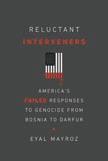
• The October 15 issue of Kirkus Reviews featured a review: “An anthology for those who relish primary source material about the era.”
Neo-Burlesque by Lynn Sally:
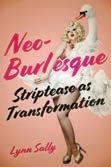
• The Gay and Lesbian Review featured Lynn Sally’s piece, “A Different Kind of Coming Out: AFAB Dreams of Becoming a Drag Queen” on October 5.
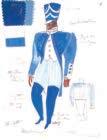
• Macbeth in Harlem by Clifford Mason:
• The Drama Review (TDR) reviewed Macbeth in Harlem in its Fall 2021 issue: “Sharply written in a conversational tone that balances friendly sarcasm with burning poignancy, Macbeth in Harlem inspects the absence of Black heroes that re ect ‘realistic portrayals of Black life’ in mainstream US theatre and drama....[M] ost noteworthy and useful to readers is the project’s painstaking archival use of newspaper reviews to analyze the cultural reception of the artistic works by Black artists....[An] excellent use of newspaper archives.”
American Hotel by David Freeland:
• The New Criterion reviewed American Hotel, September 23:
“American Hotel explores the ways in which the Waldorf-Astoria shaped popular notions about hotels in the twentieth century. The concept of a hotel containing a village-like arcade of shops on site was among the many innovations that the Waldorf-Astoria pioneered. Guests were now able to shop, dine, and entertain themselves without venturing beyond the hotel’s walls. This new model, which persists to the current day (for instance, in all-inclusive resorts), was quickly copied by other hotels around the world.”
Special Admission by Kristen Hextrum:

• Kristen Hextrum was interviewed by CNN.com on June 23 about the NCAA court ruling about student athletes.
Whither College Sports by Andrew Zimbalist: Andrew Zimbalist penned pieces for Sportico and Forbes on October 27.


Reluctant Interveners by Eyal Mayroz:
• Named as one of “Five International Relations titles selected from the Choice Reviews 2020 Outstanding Academic Titles list.”
Performing Math by Andrew Fiss:


• Listed as a bestseller by Library Journal on July 28.
You’re Doing it Wrong by Bethany L. Johnson and Margaret M. Quinlan:
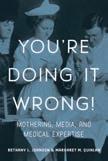
• Mentioned in Instyle Magazine
Crisis Leadership in Higher Education by Ralph A. Gigliotti:

• Ralph A. Gigliotti was interviewed by Science Magazine on September 17 and his book Crisis Leadership in Higher Education was mentioned.
San Francisco Year Zero by Lincoln A. Mitchell:


• The Los Angeles Daily News included San Francisco Year Zero in a round-up of California baseball books on September 16.
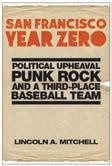
This collection gives readers a front-row seat to a pivotal moment in LGBTQ literary history with twenty-seven of the most memorable speeches from the 1990-1999 OutWrite conferences, including talks from such luminaries as Allen Ginsberg, Essex Hemphill, Patrick Cali a, Dorothy Allison, and Edmund White that cover everything from racial representation to sexual politics.

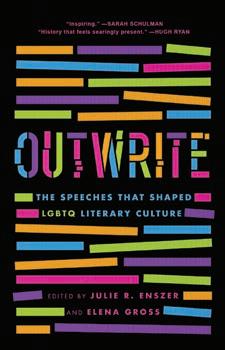
For far too long, the cultural and historical narratives about lm have overlooked the contributions of Black women directors. This book remedies this omission by highlighting the trajectory of the culturally signi cant work of Black women directors in the U.S., from the under-examined pioneers of the silent era to the contemporary Black women directors in Hollywood.

See Quick Takes series on page 6.
“This compelling account of the Paris Commune makes a complicated event understandable and vivid. Eichner’s rich portraits bring to life the freedom and empowerment the Communards experienced, juxtaposed with the bloody repression of its nal days.”
—Sarah Fishman, author of From Vichy to the Sexual Revolution: Gender and Family Life in Postwar France